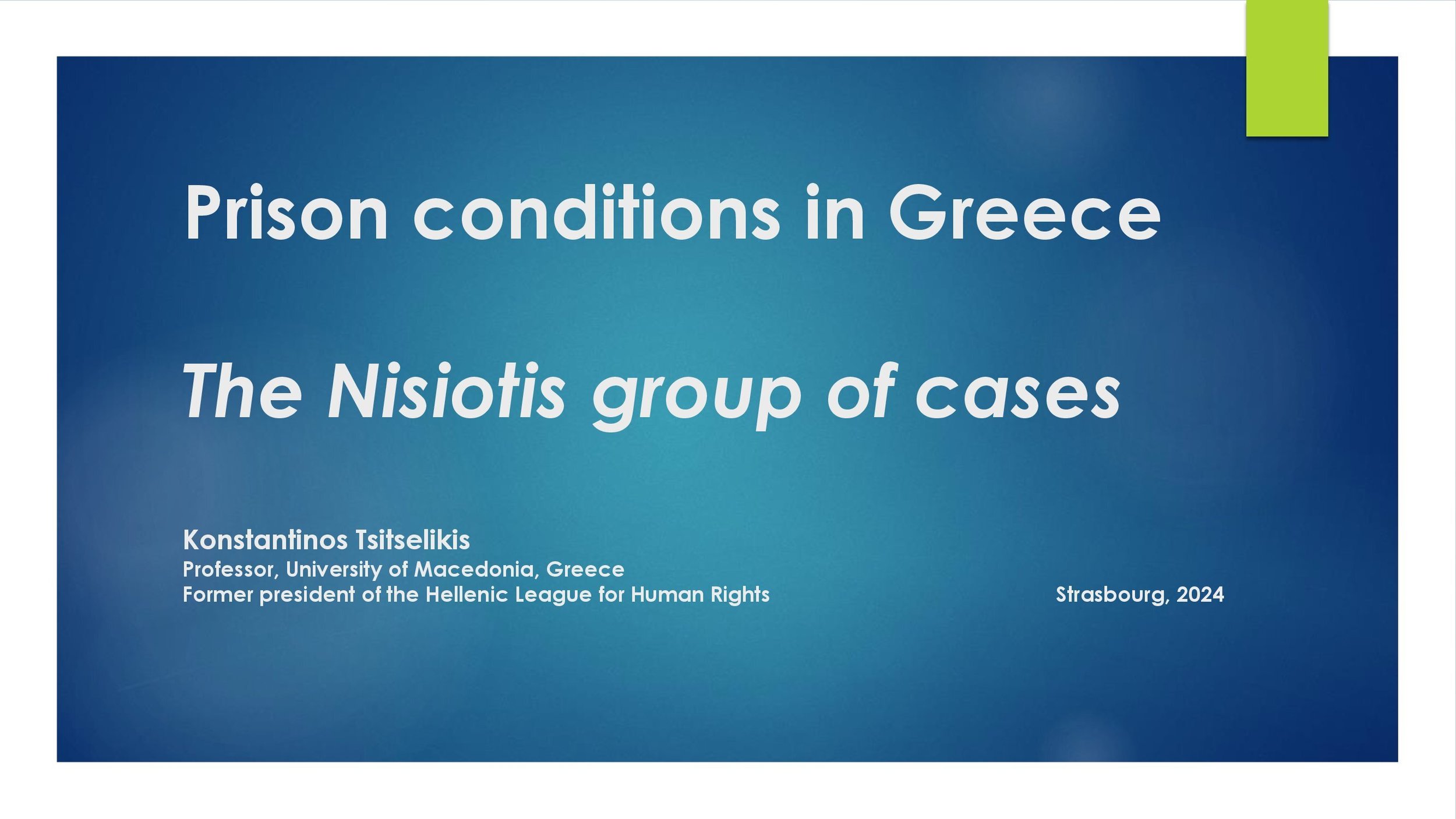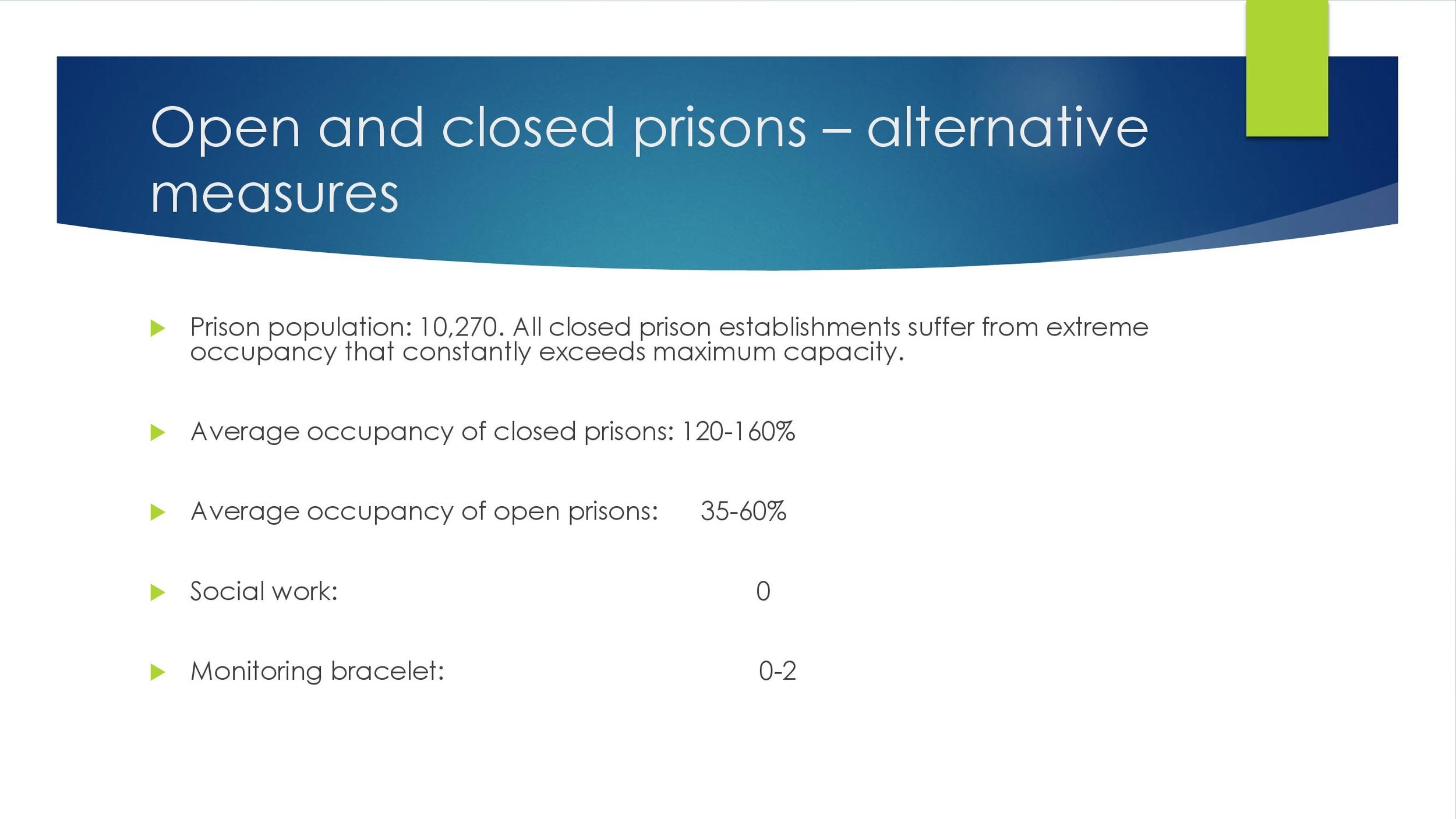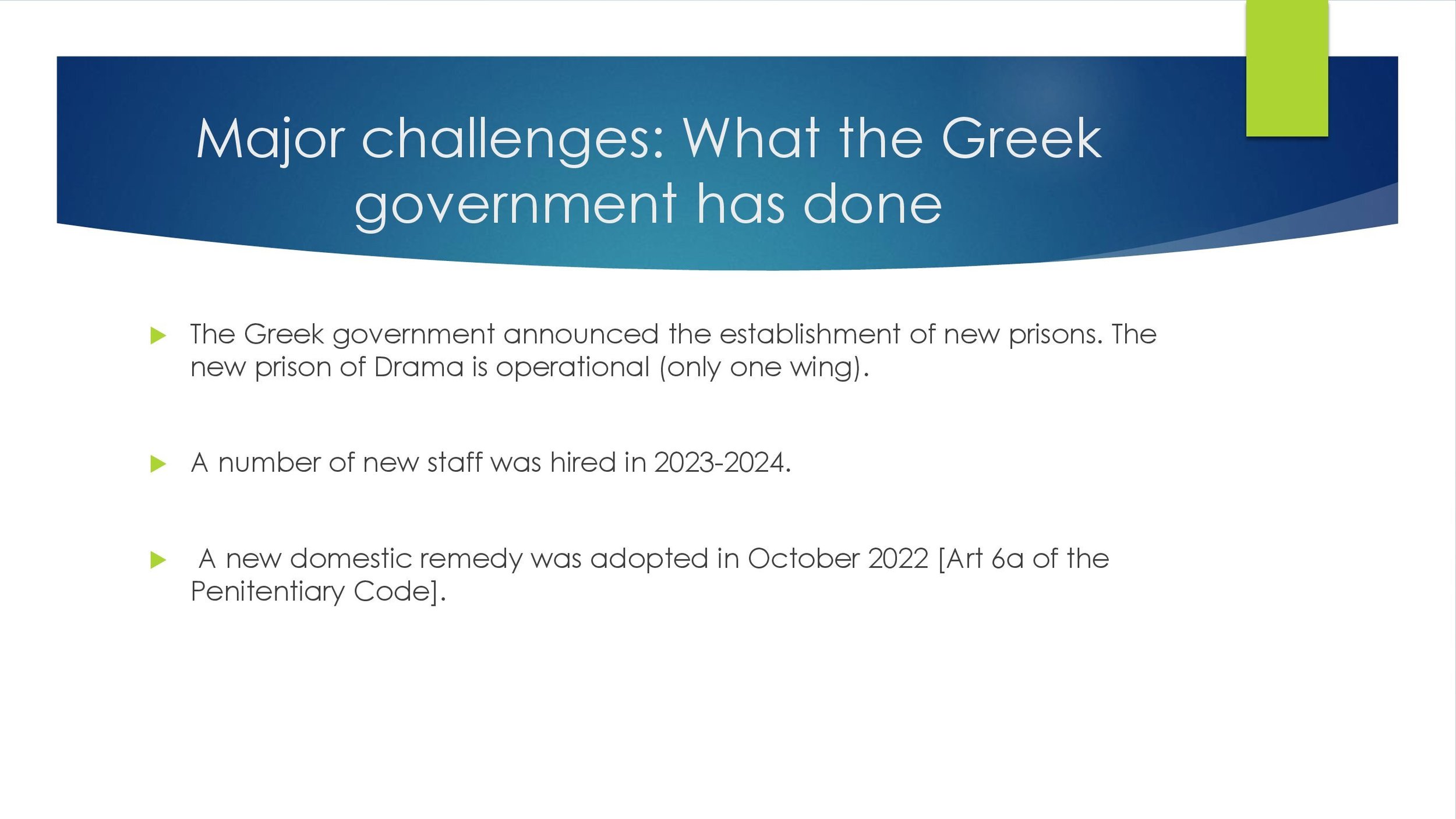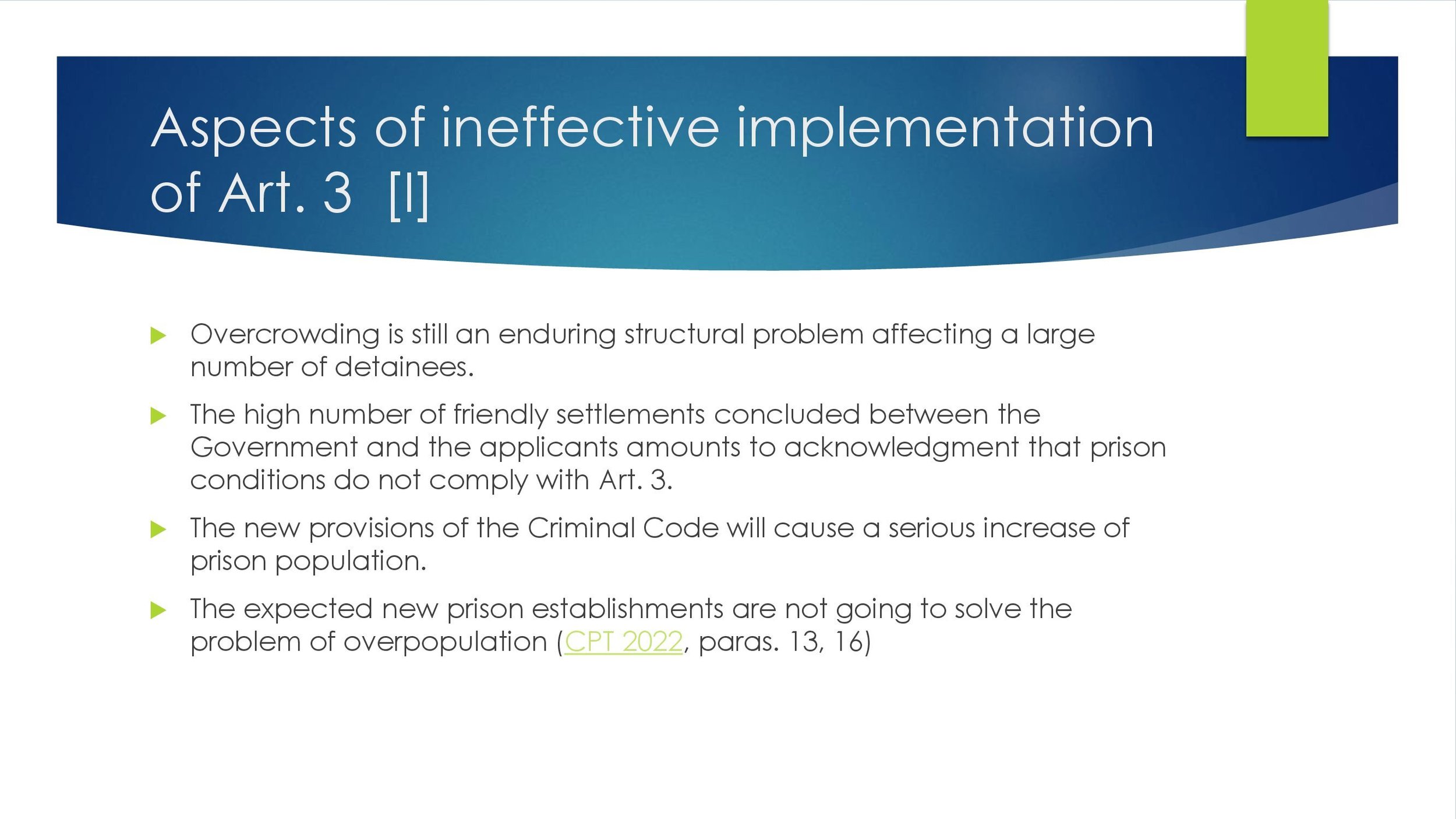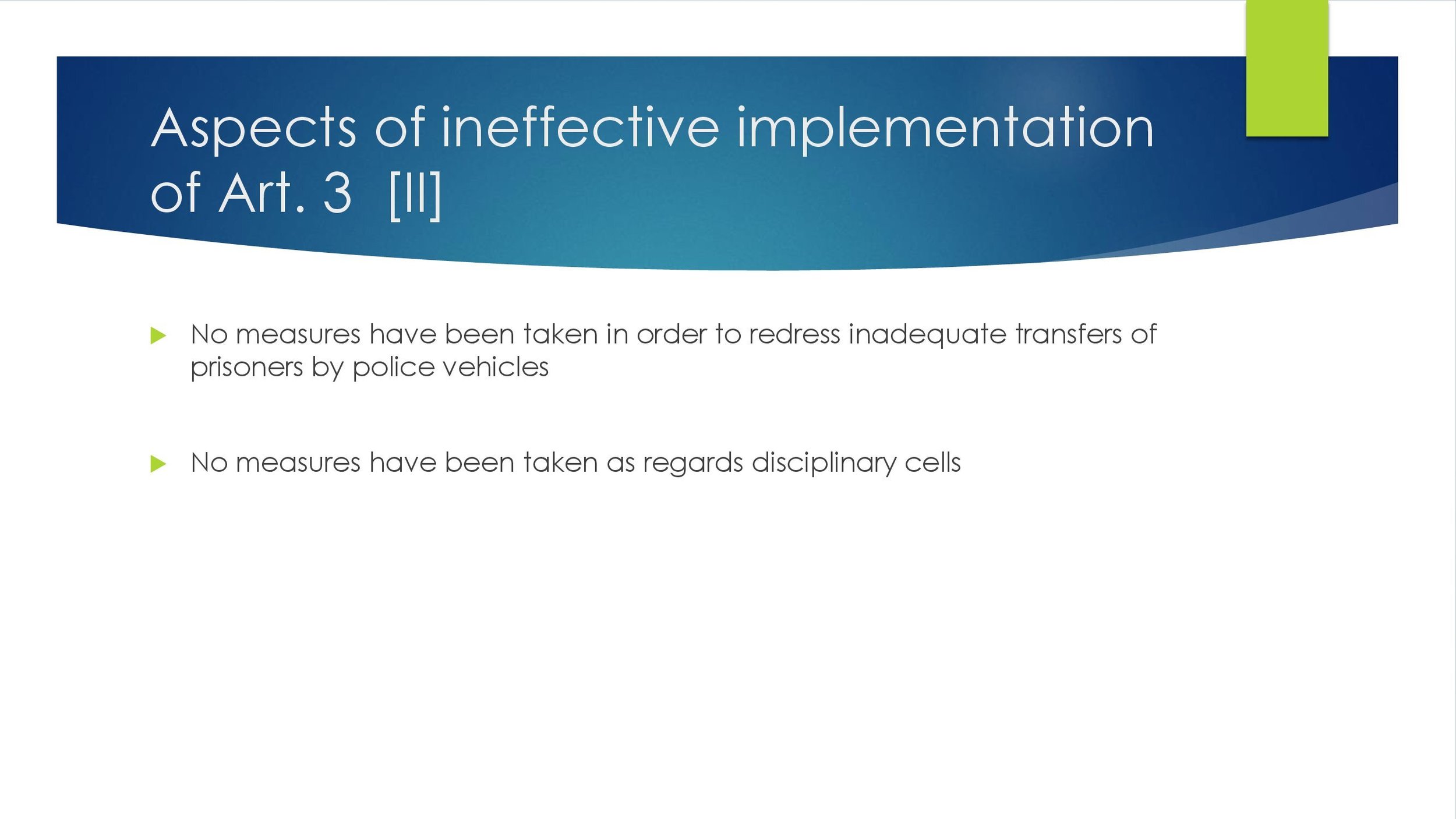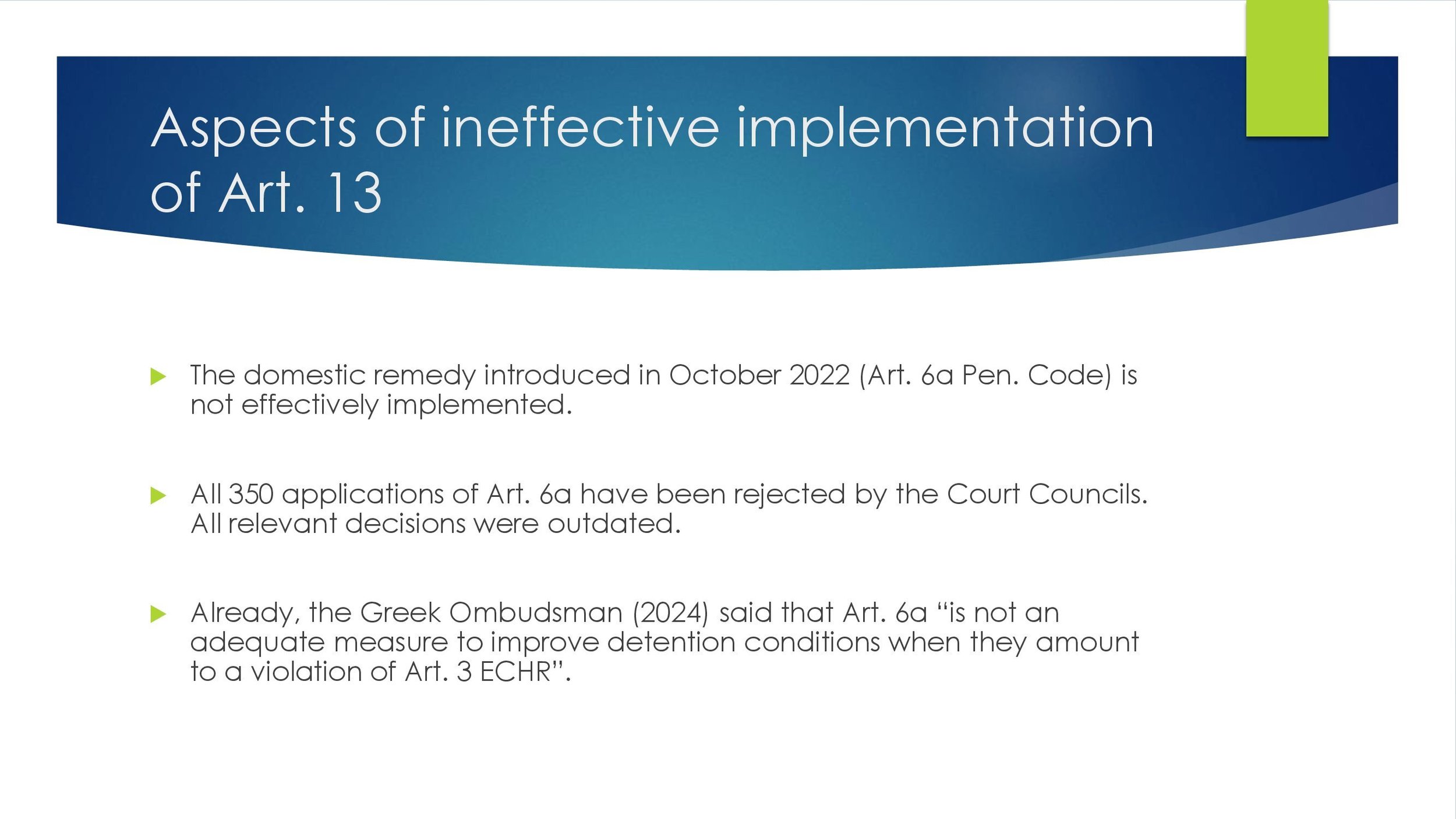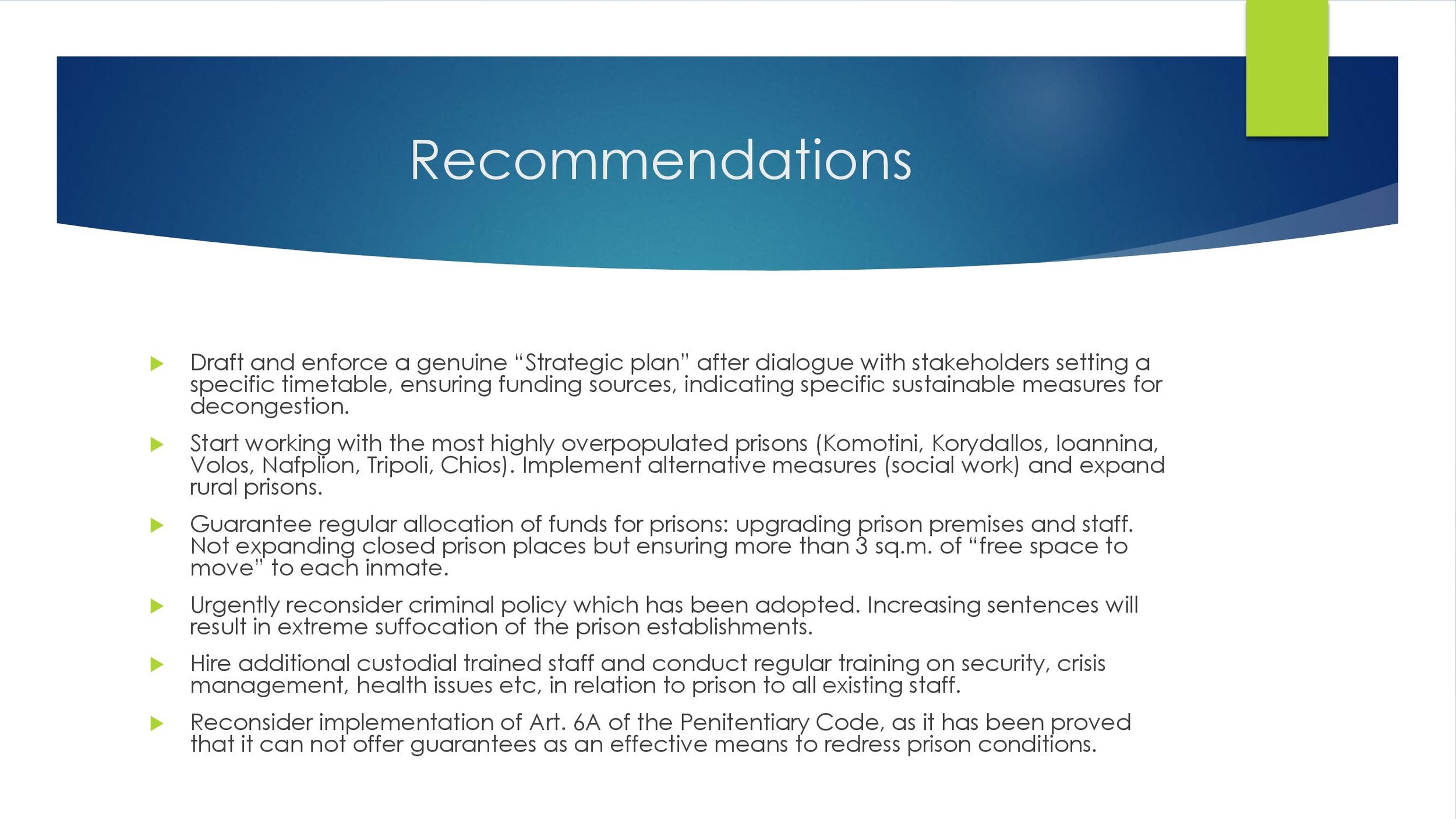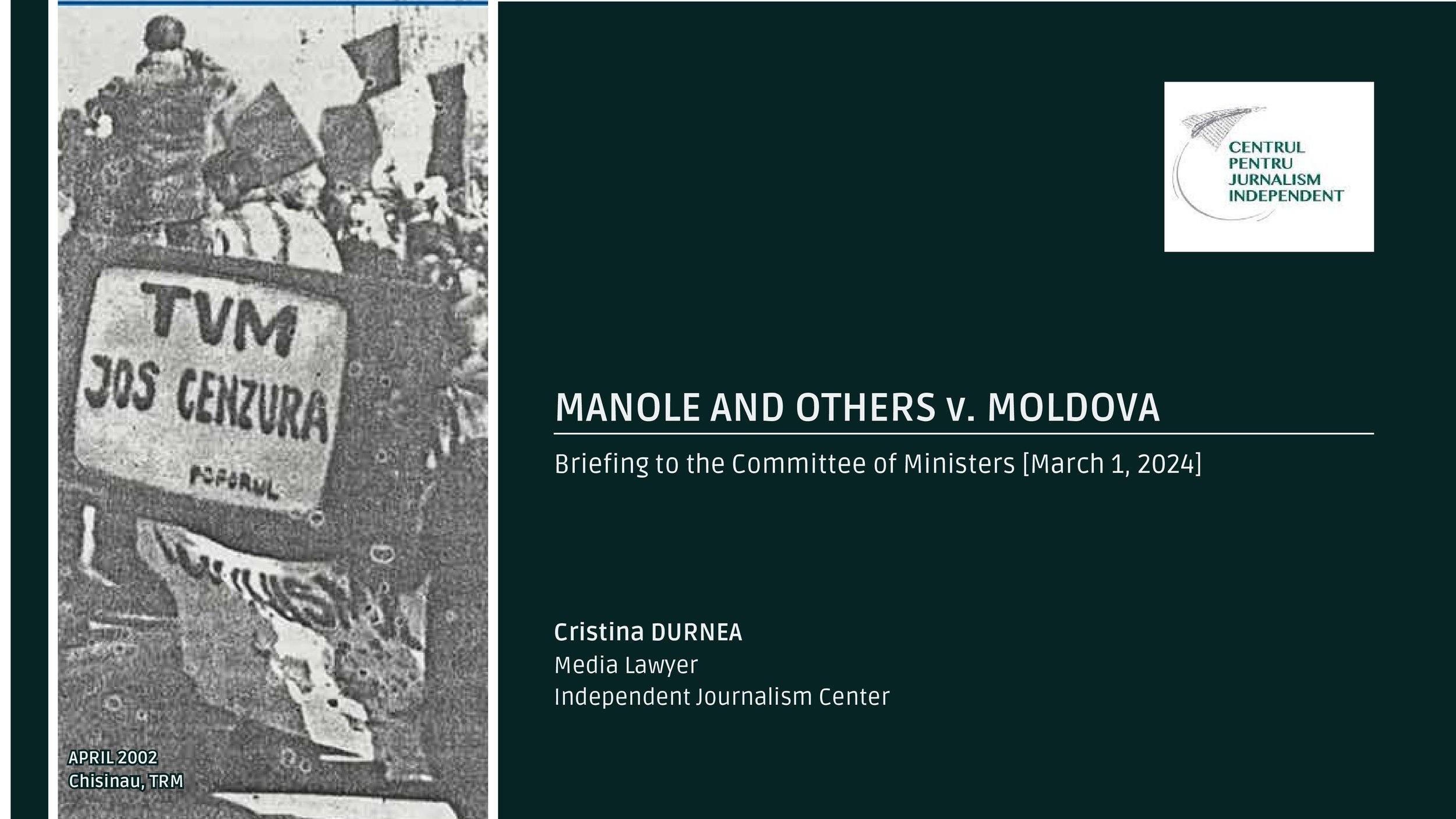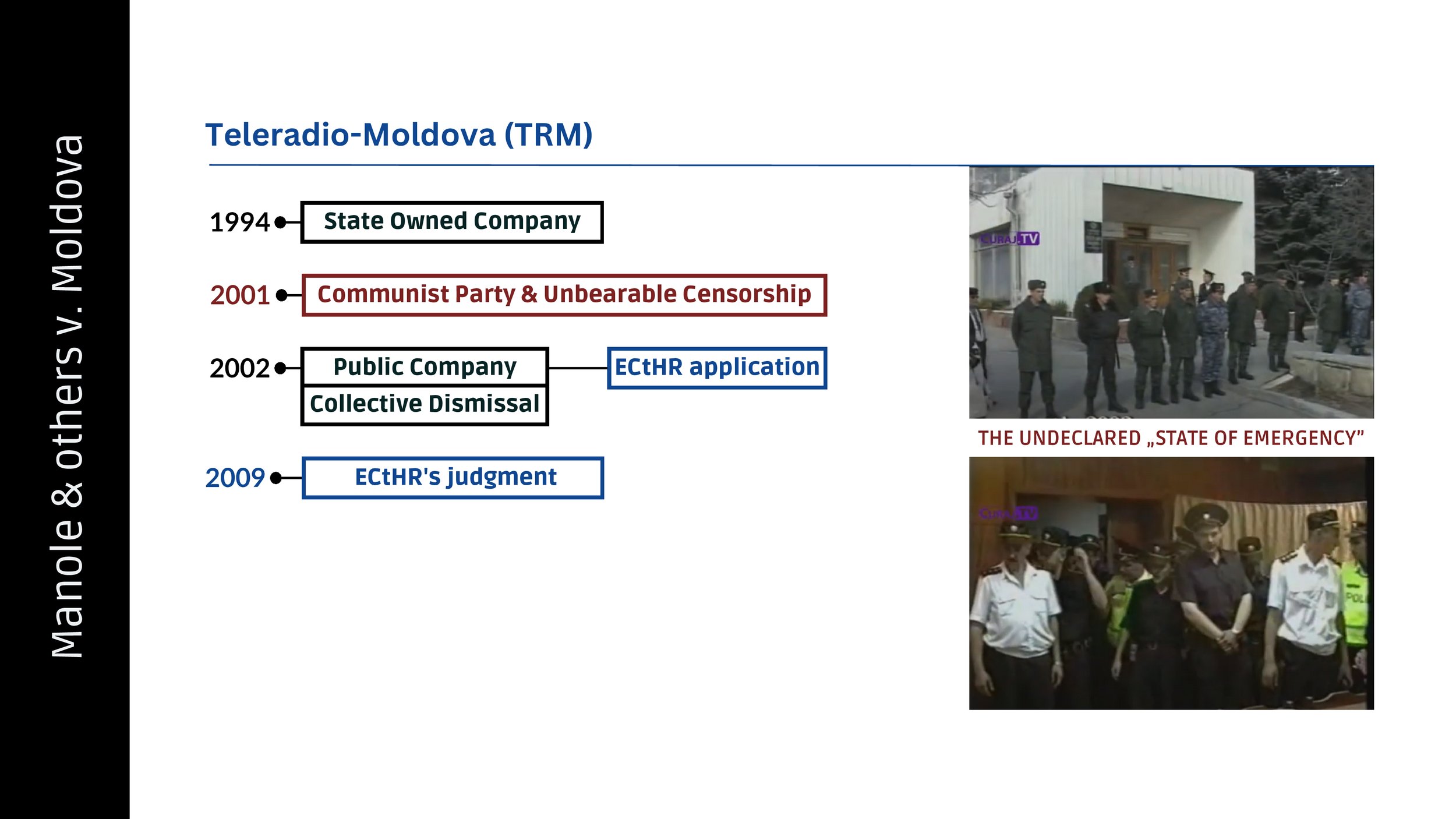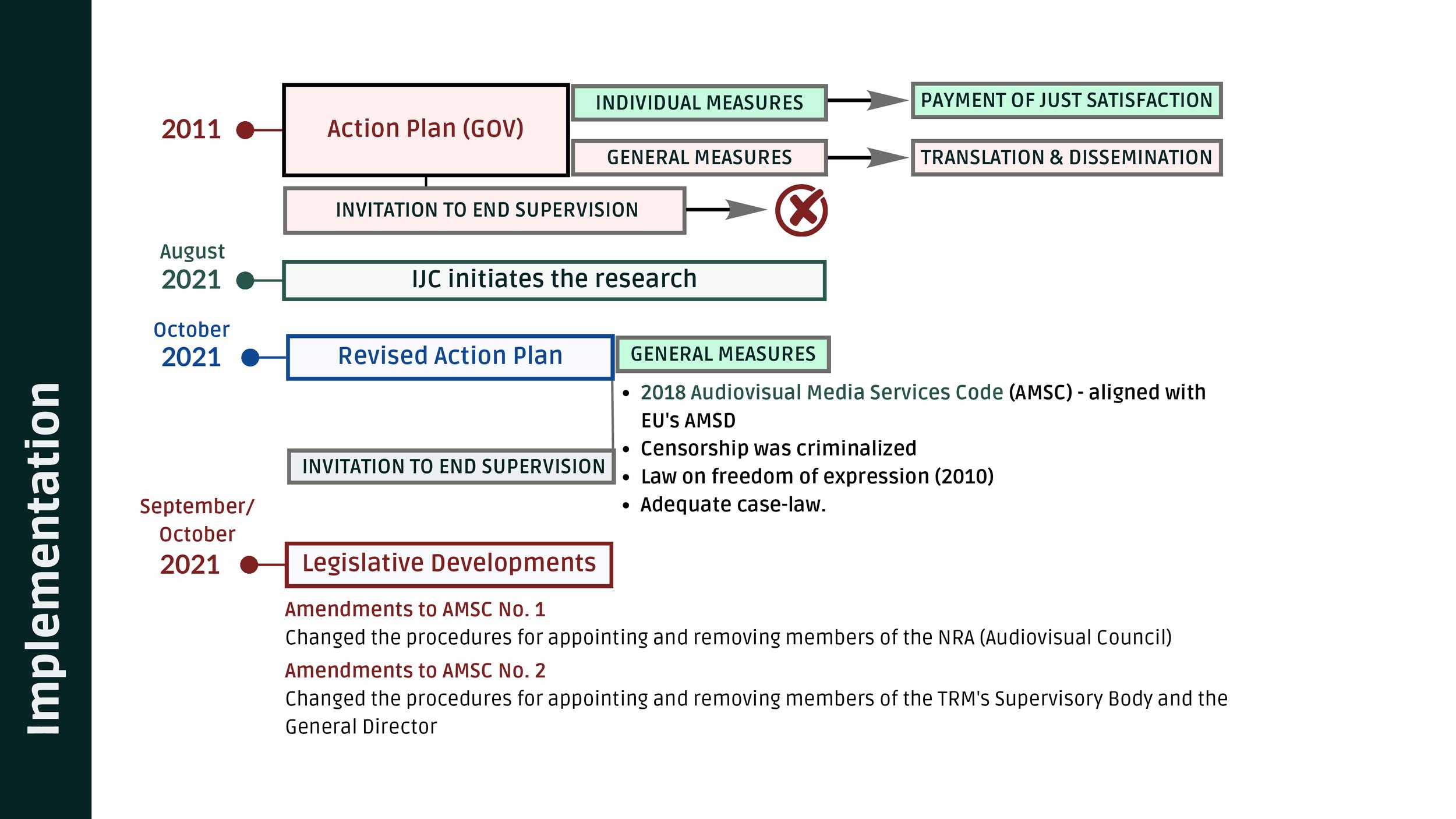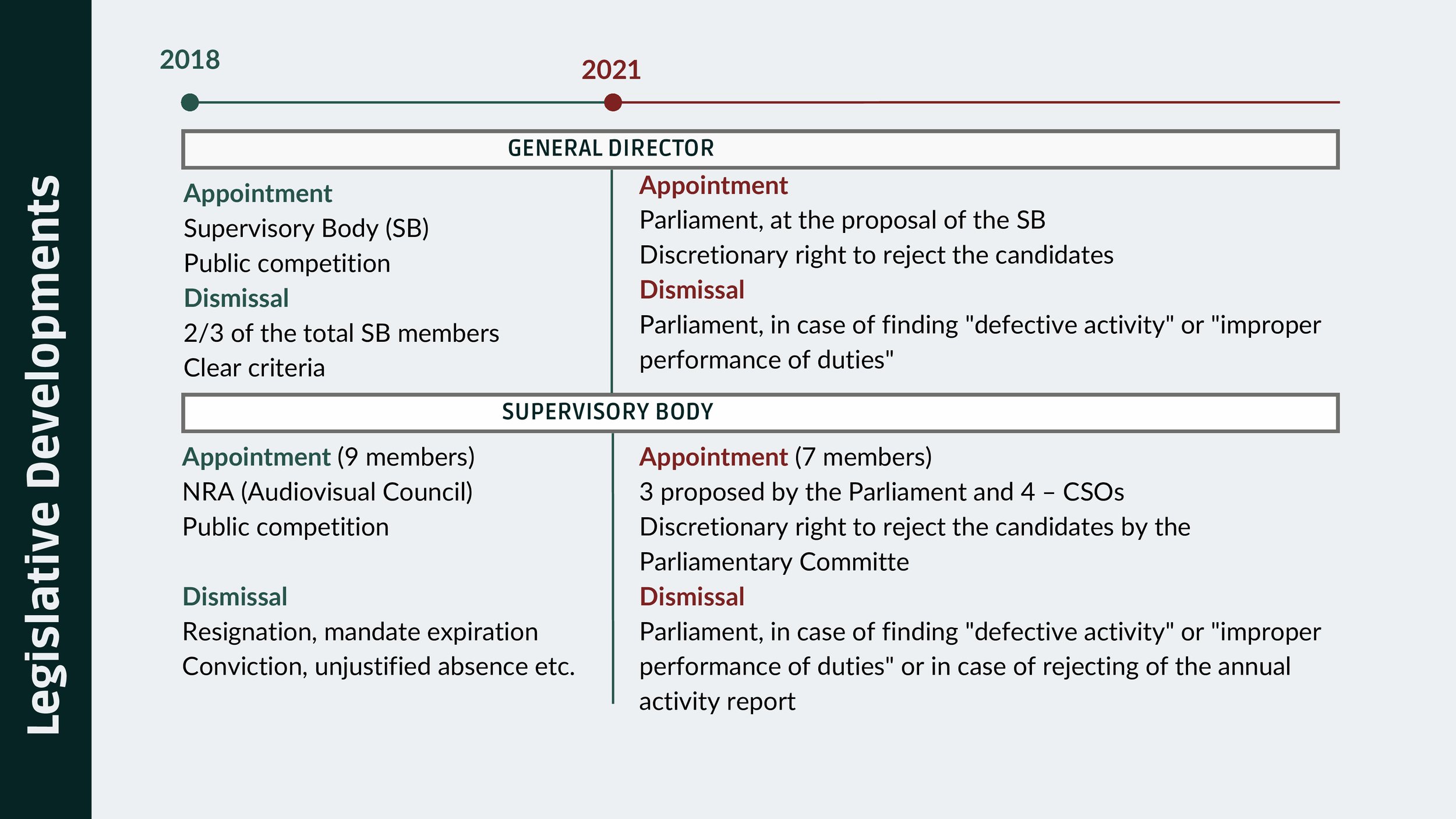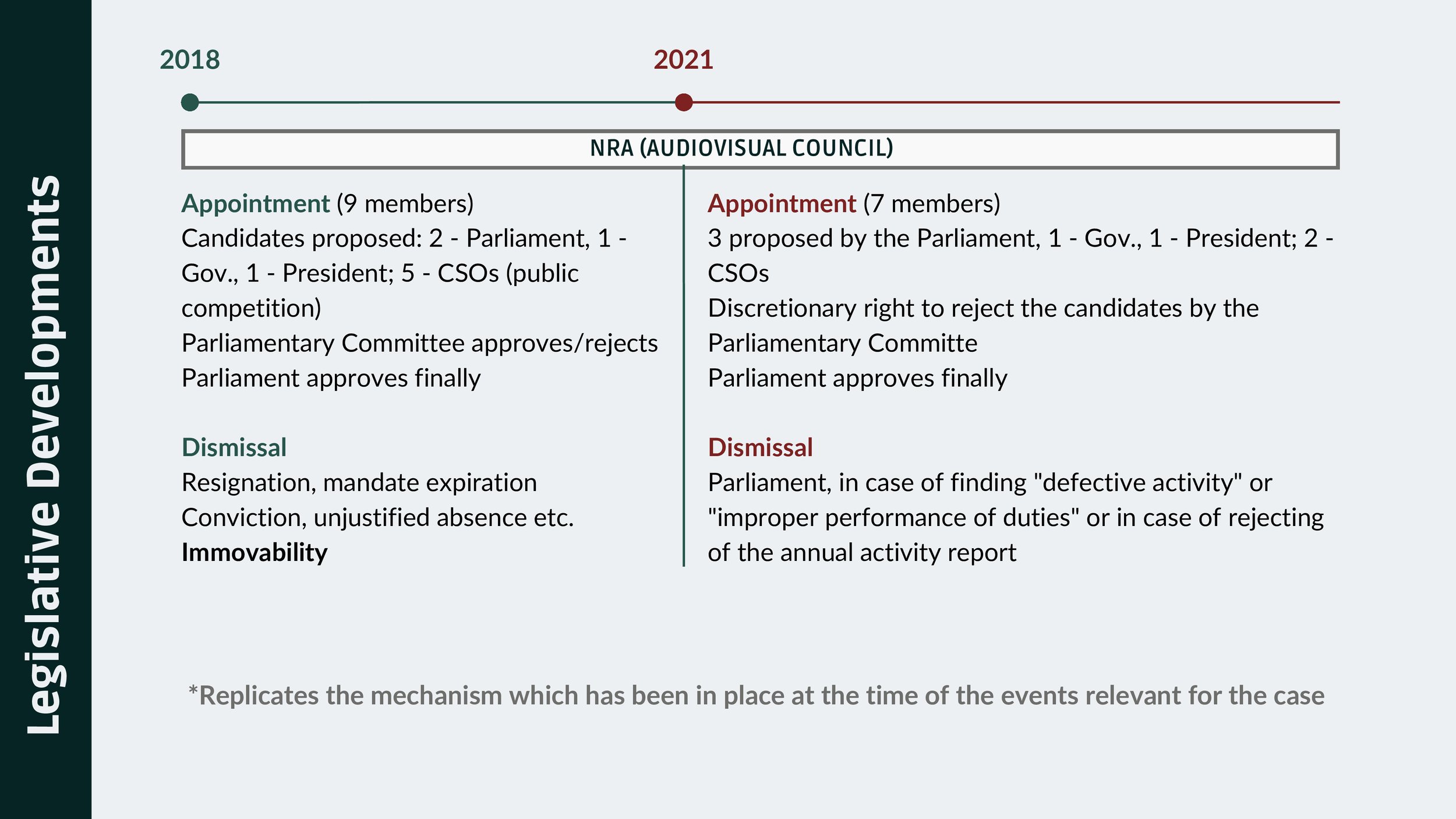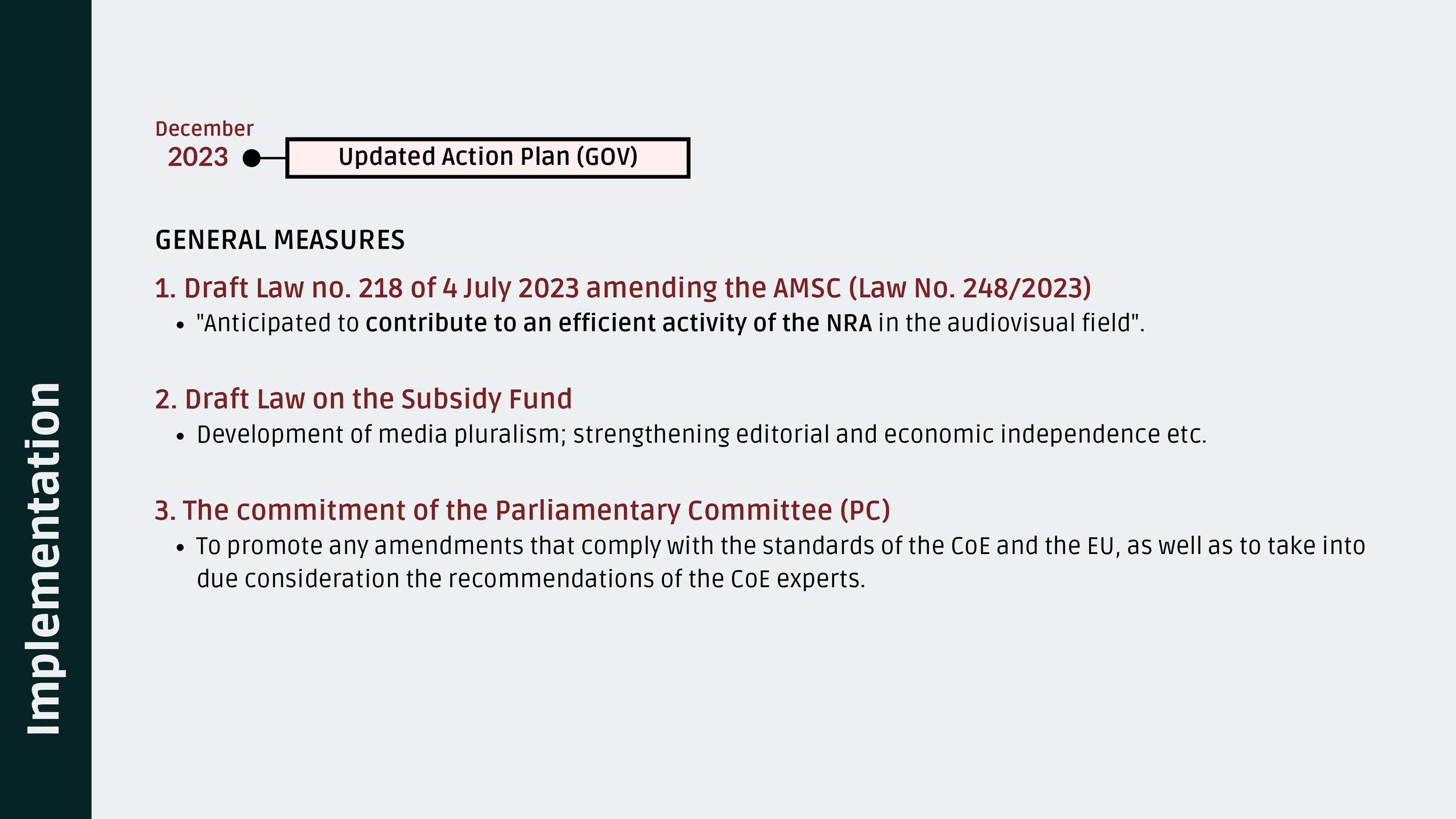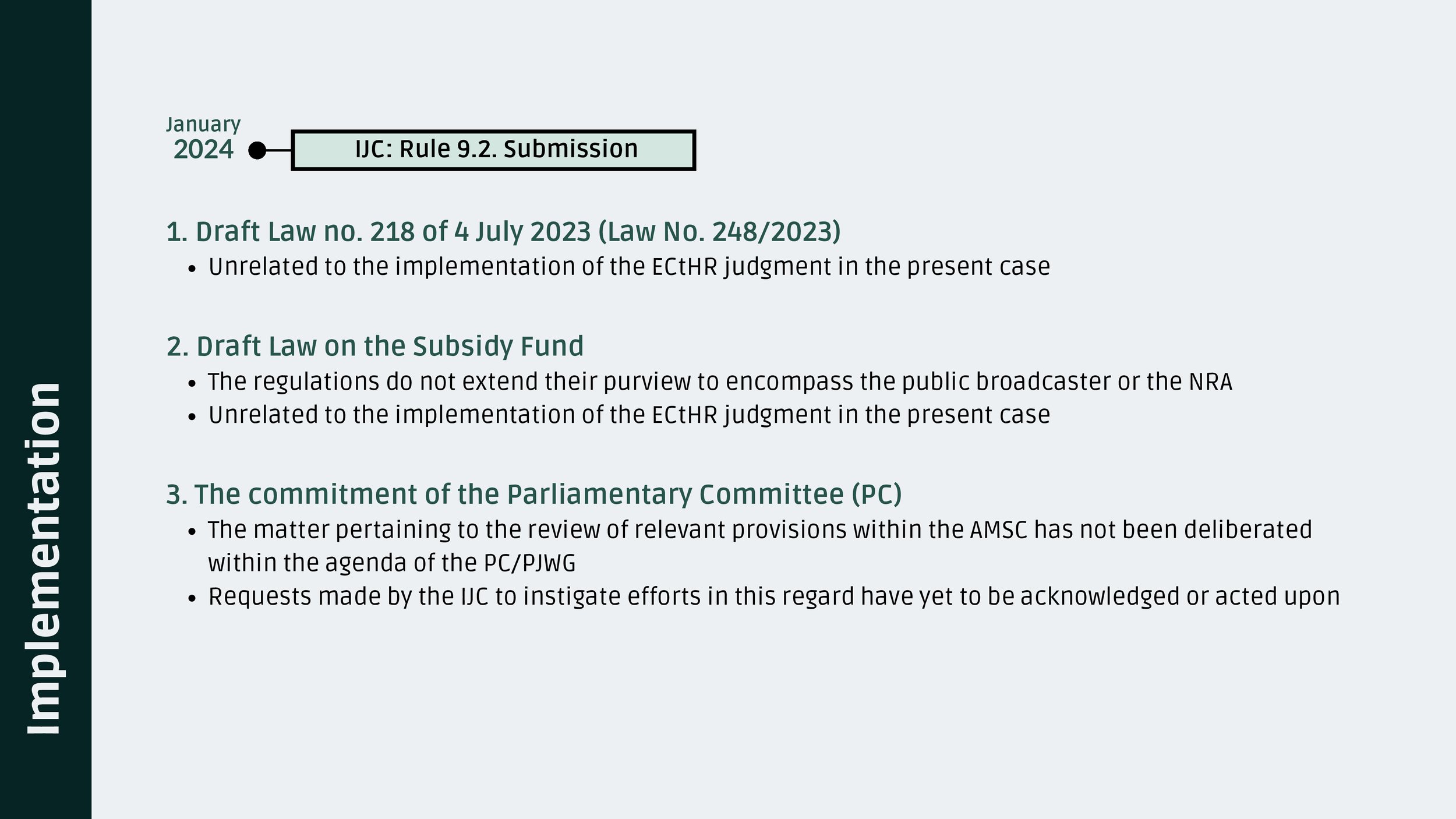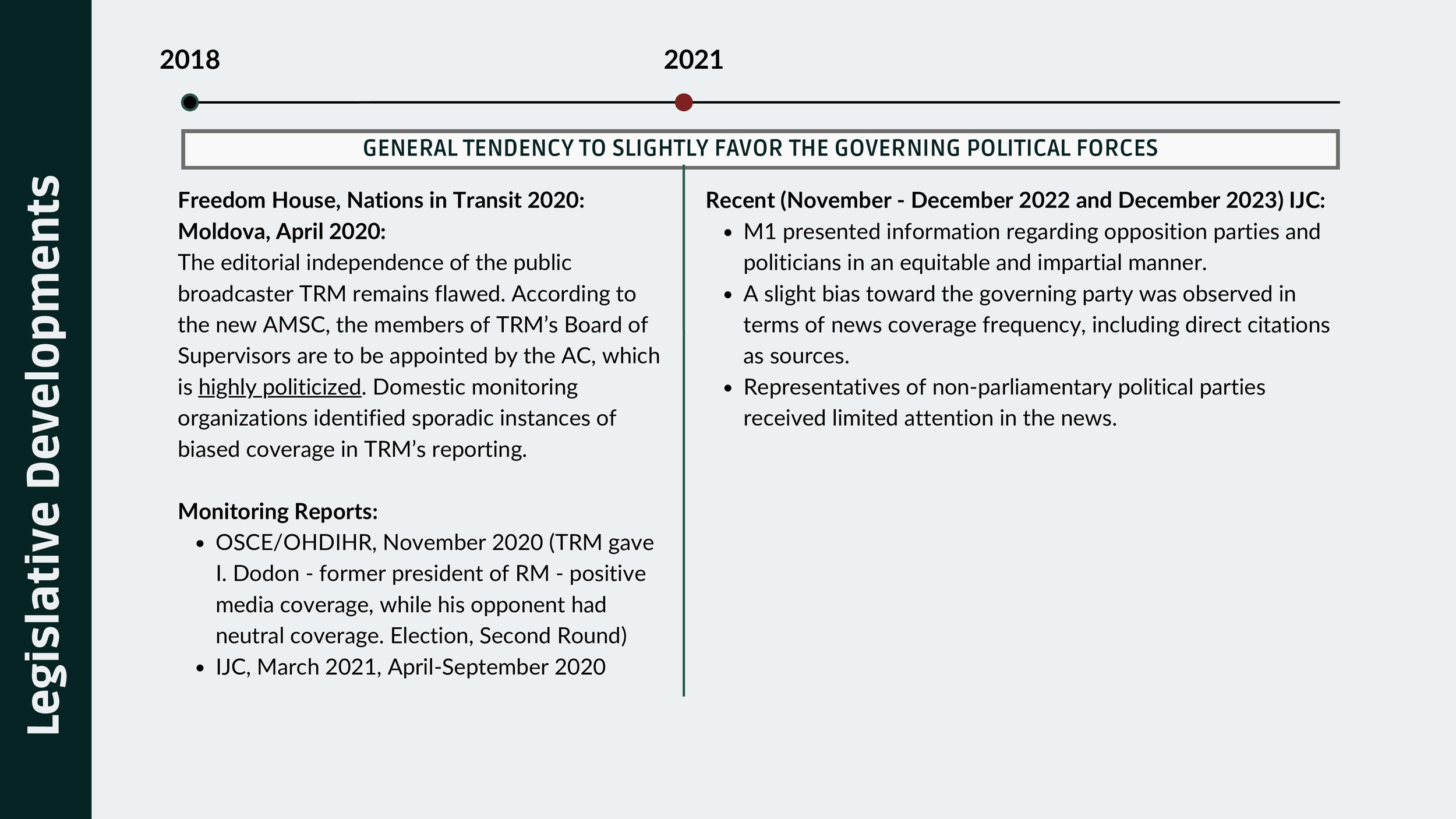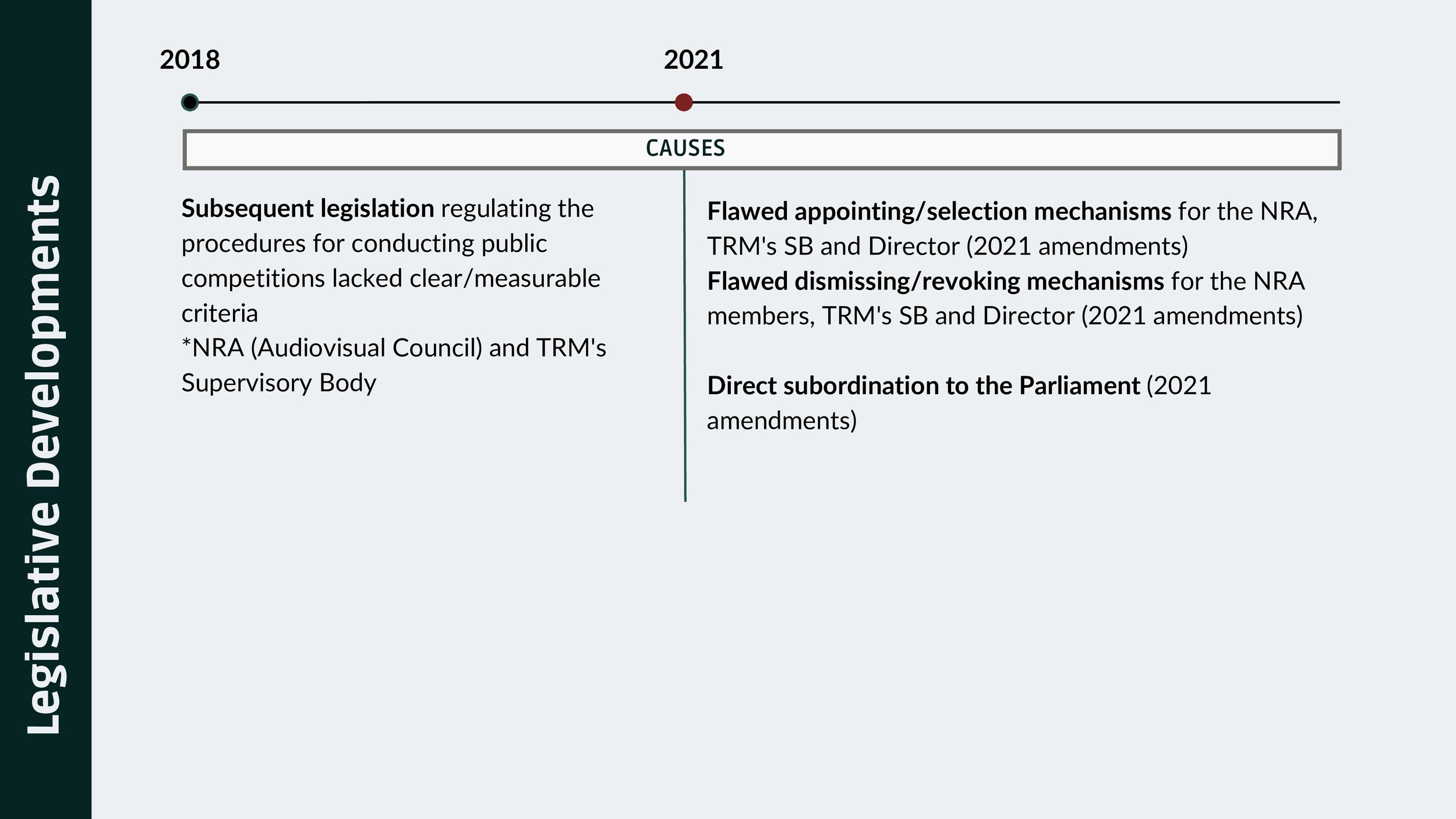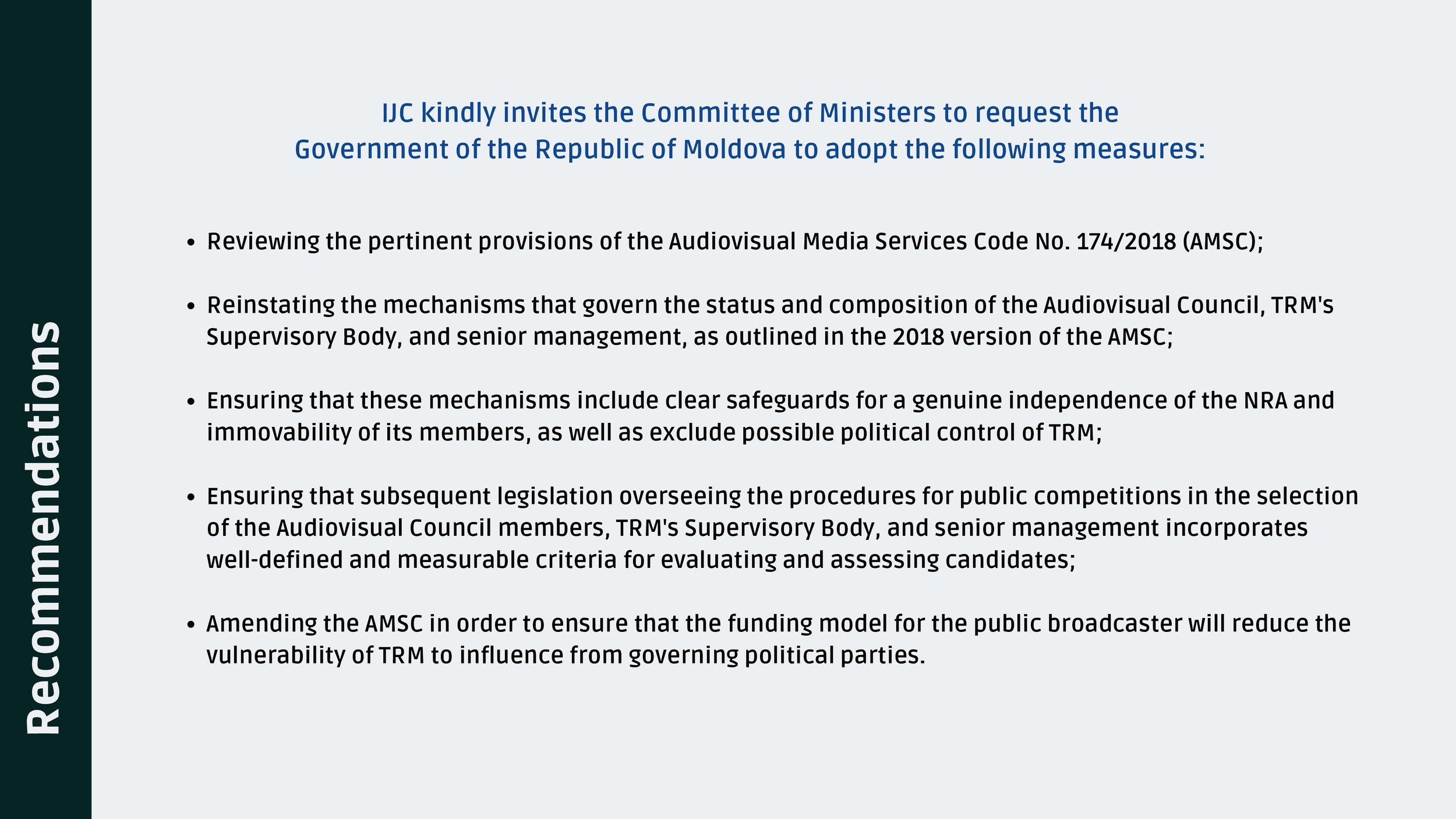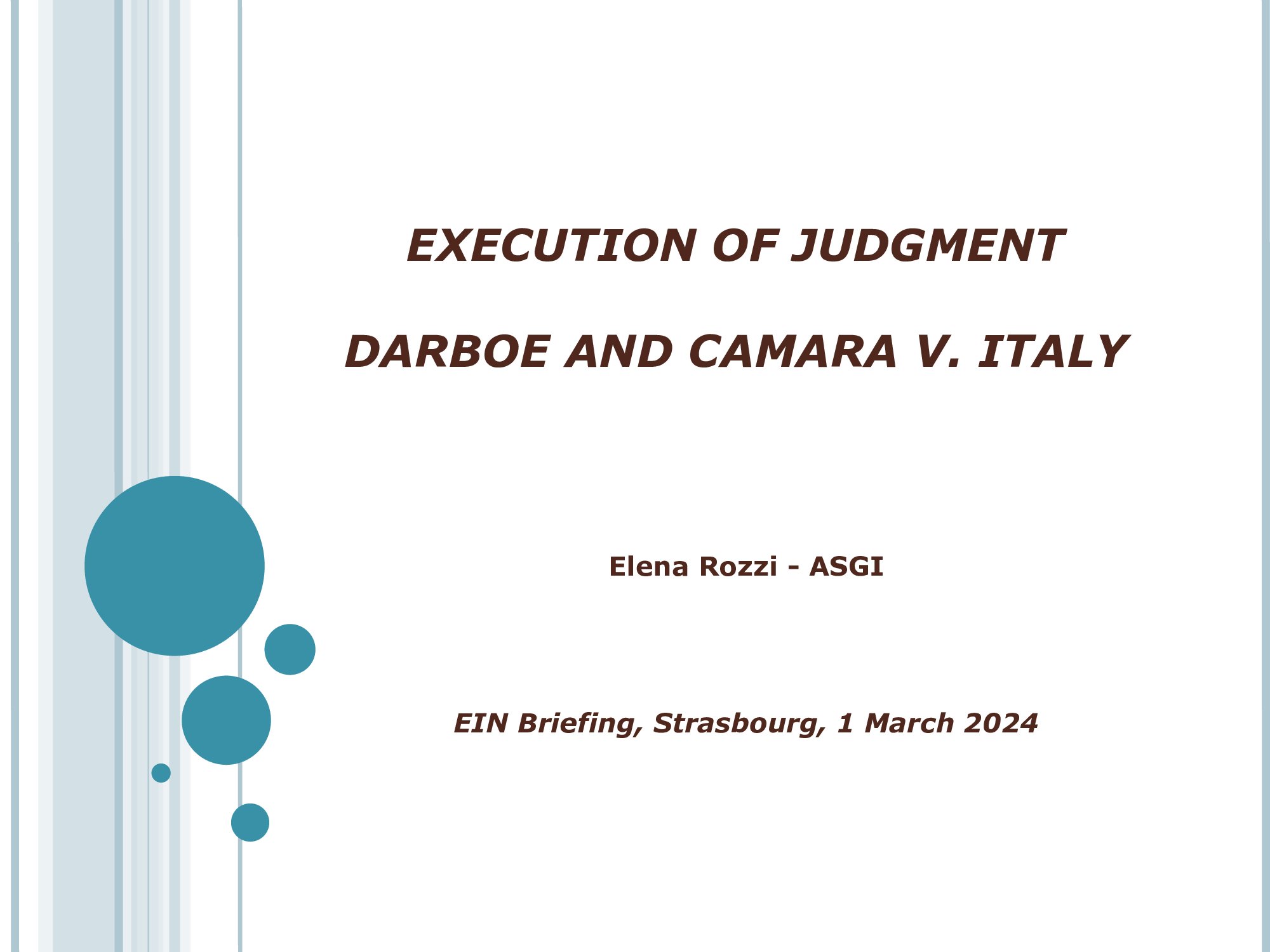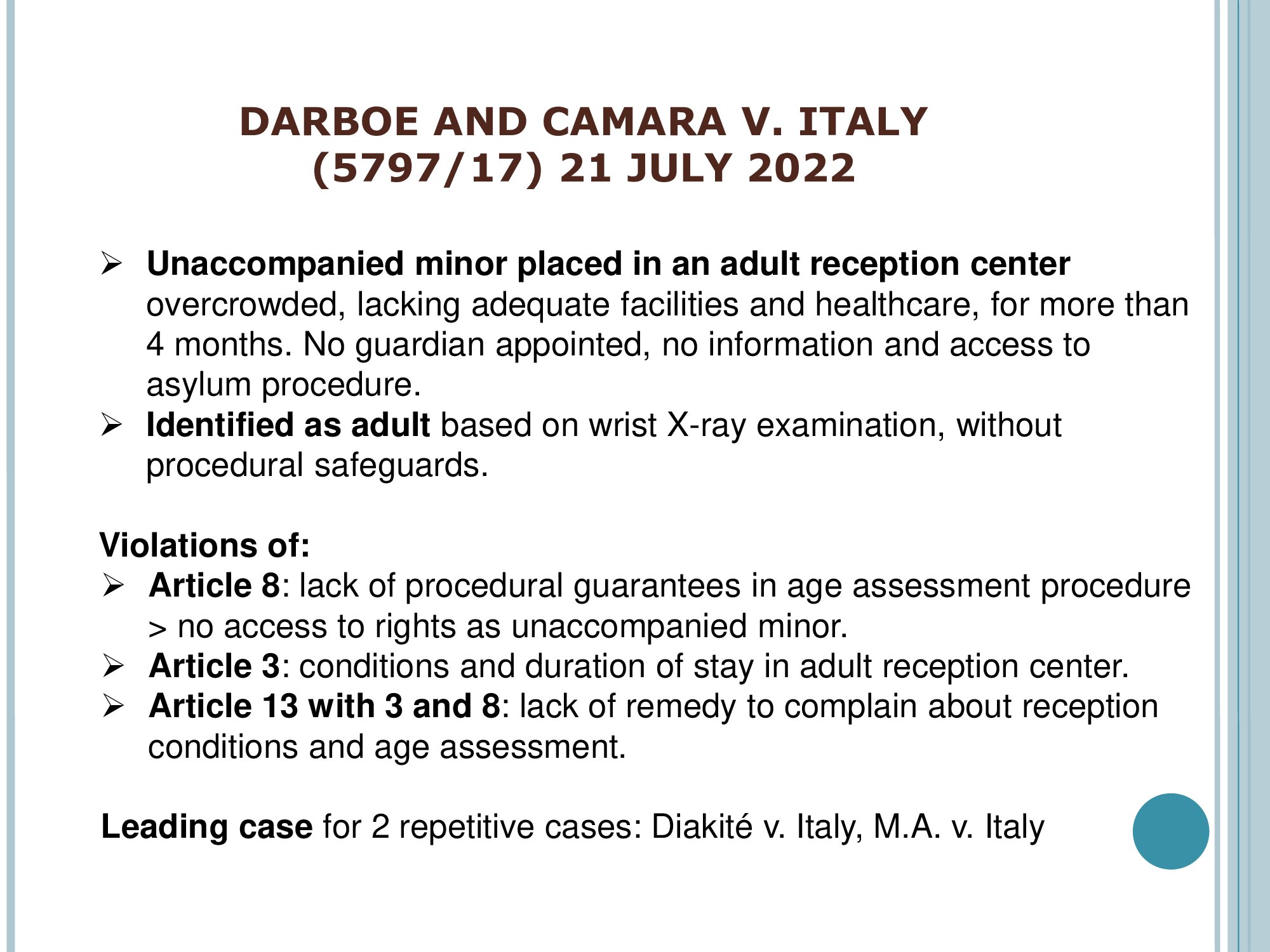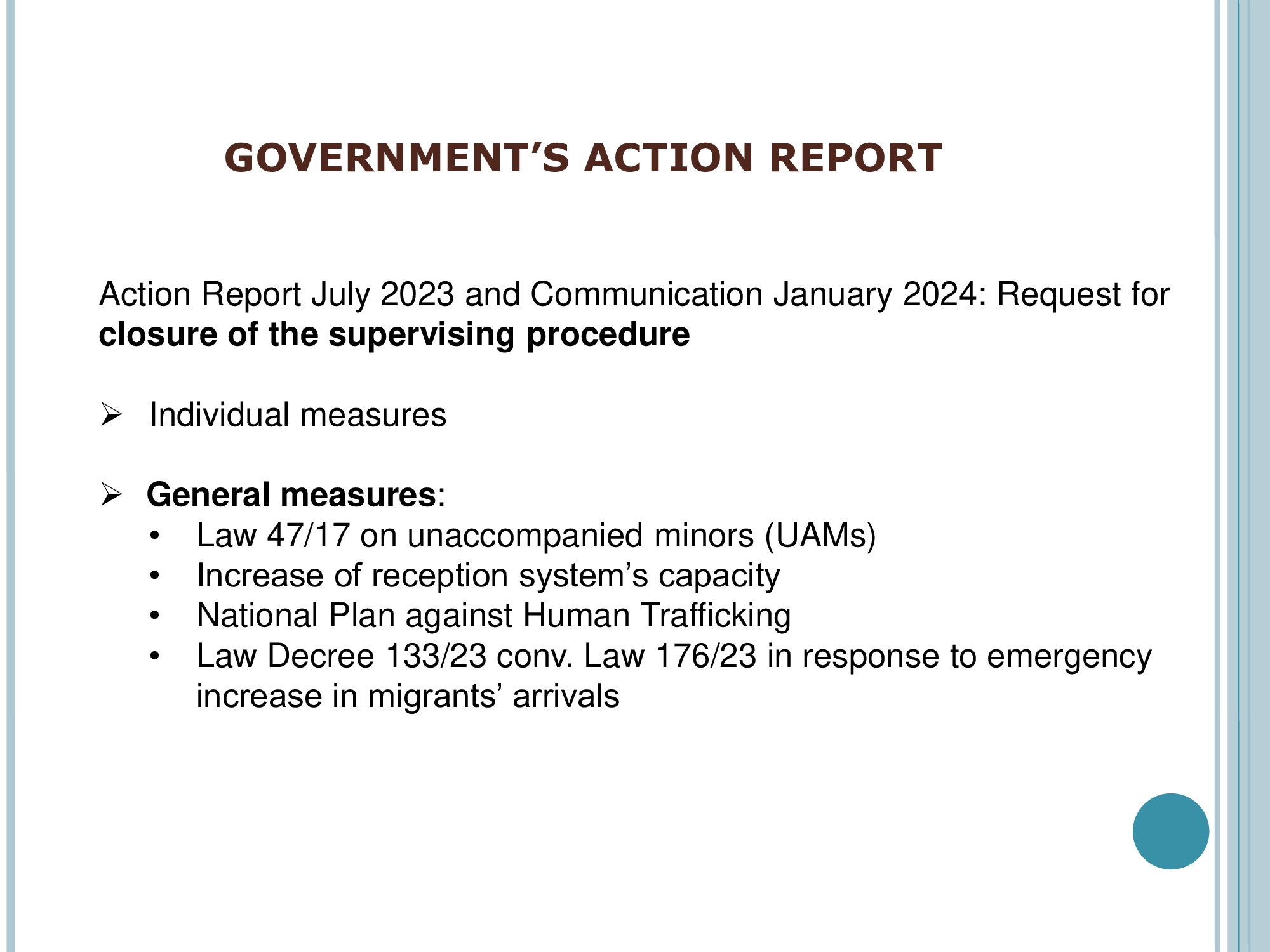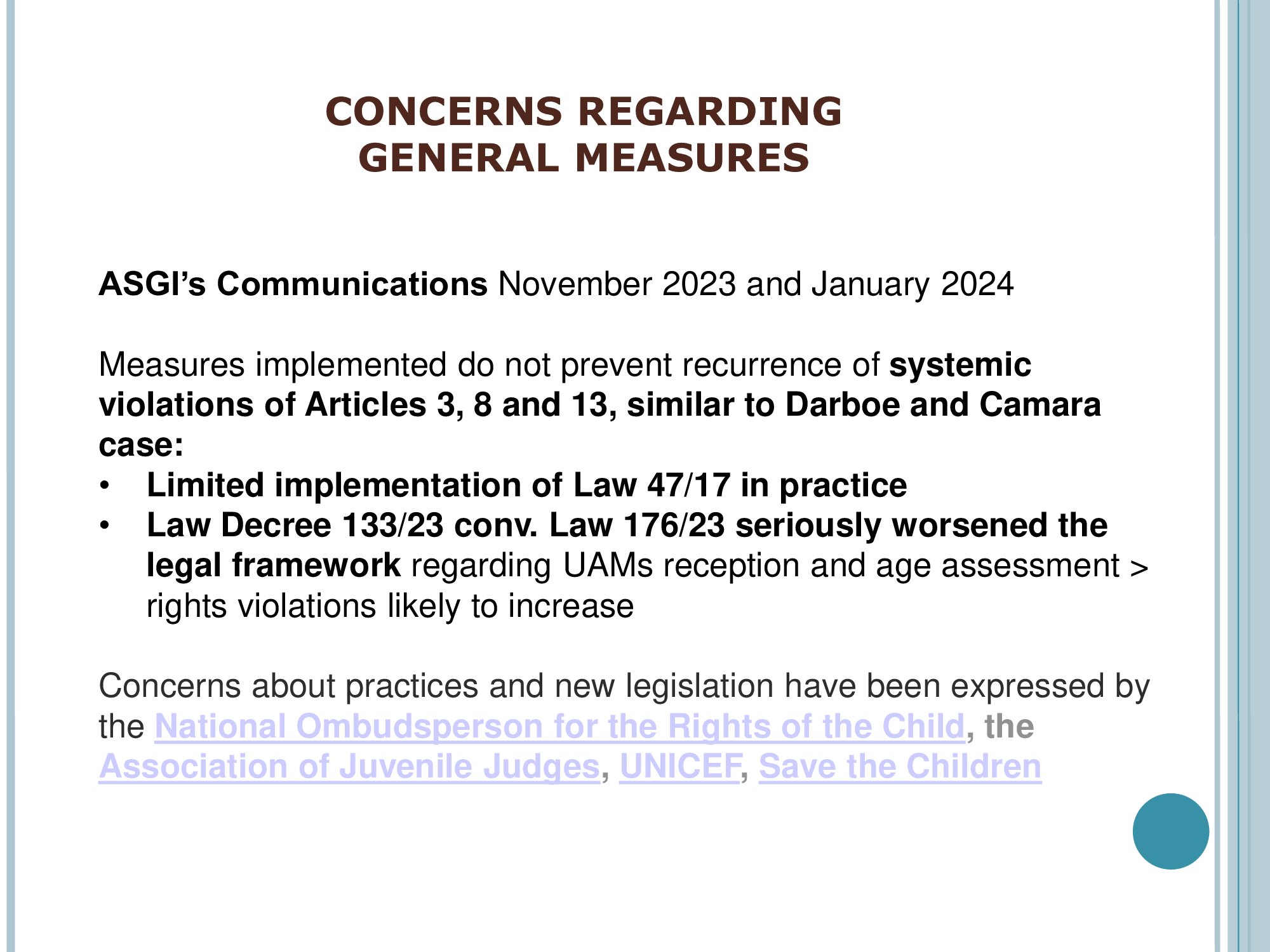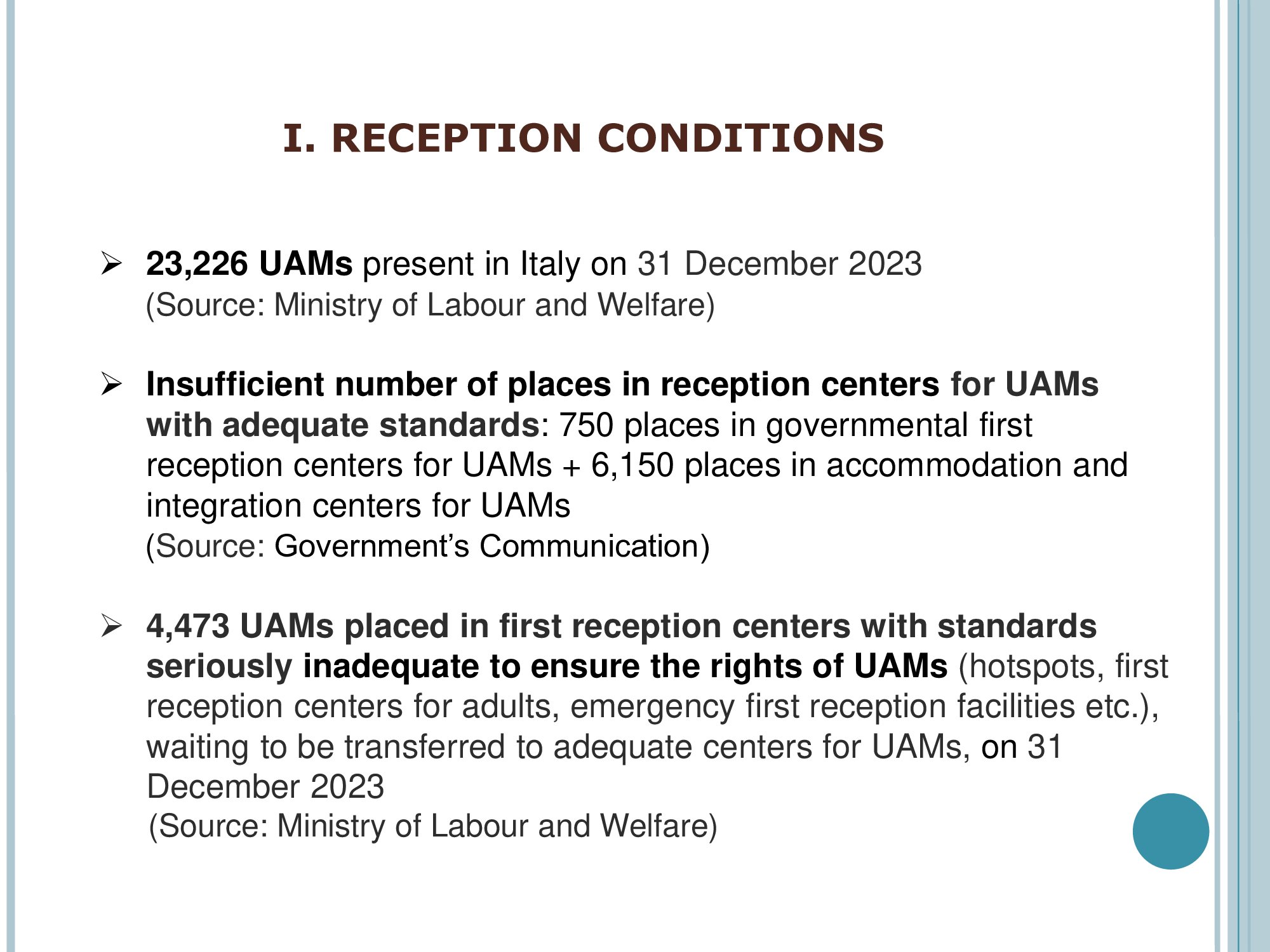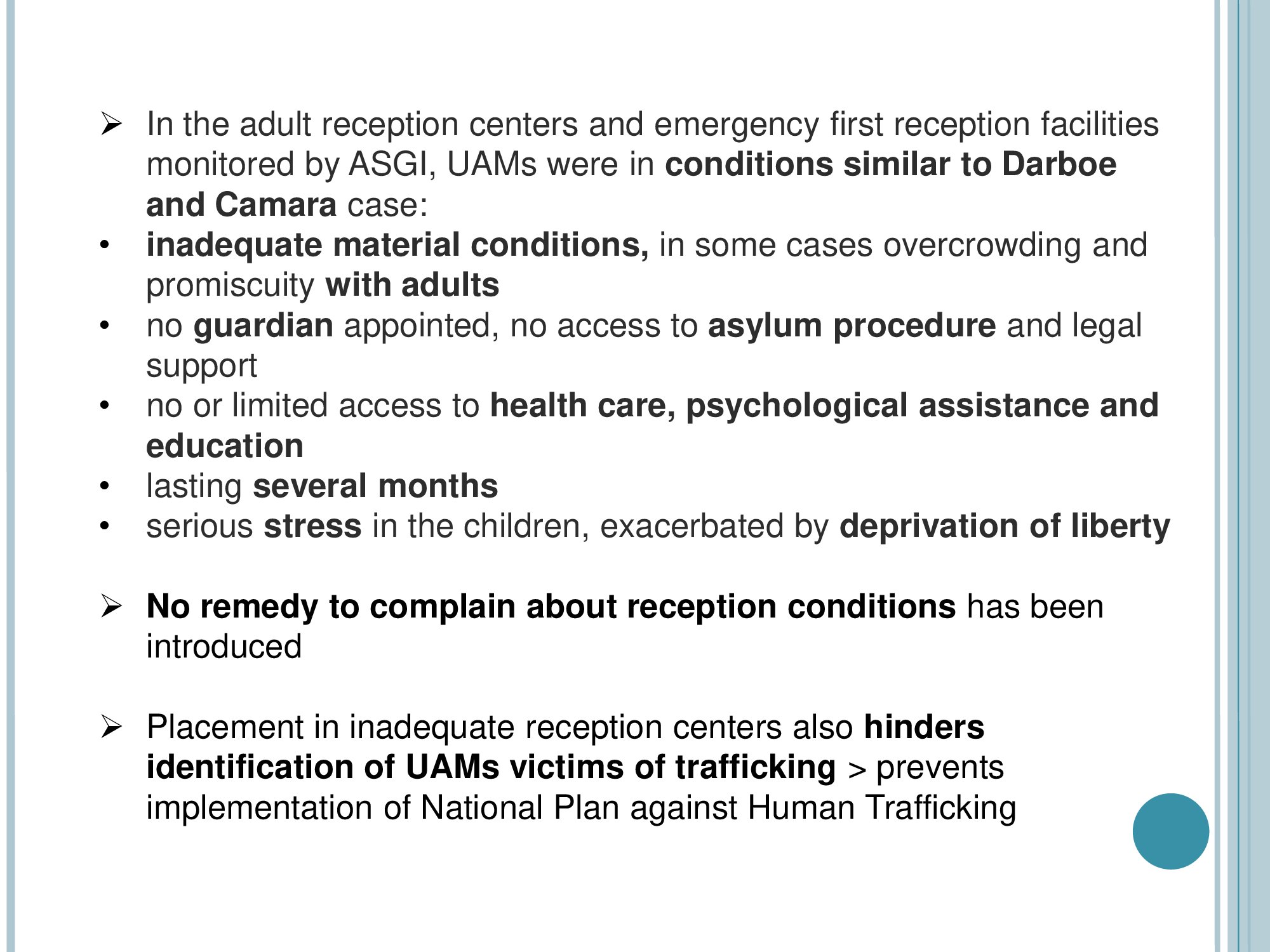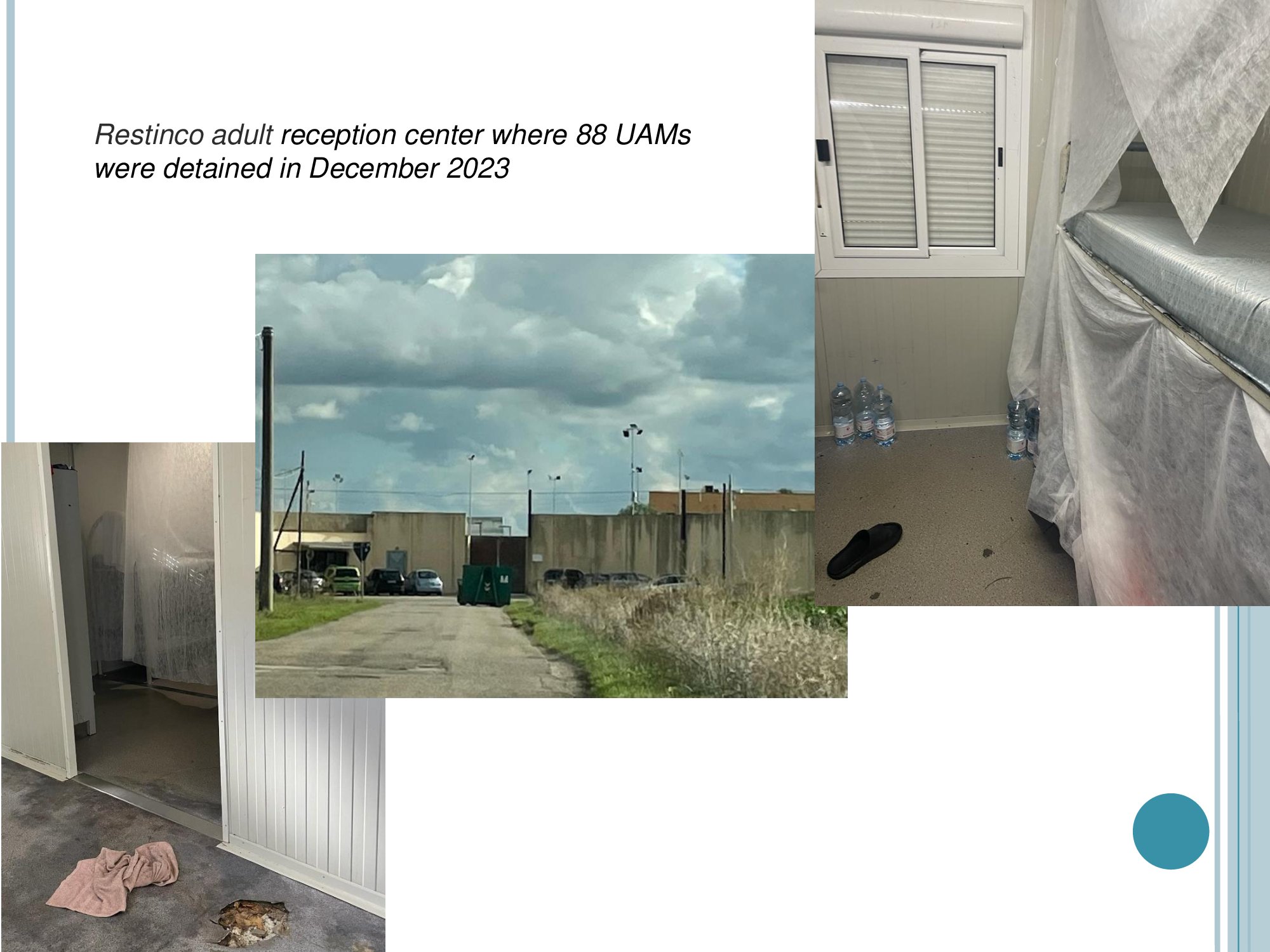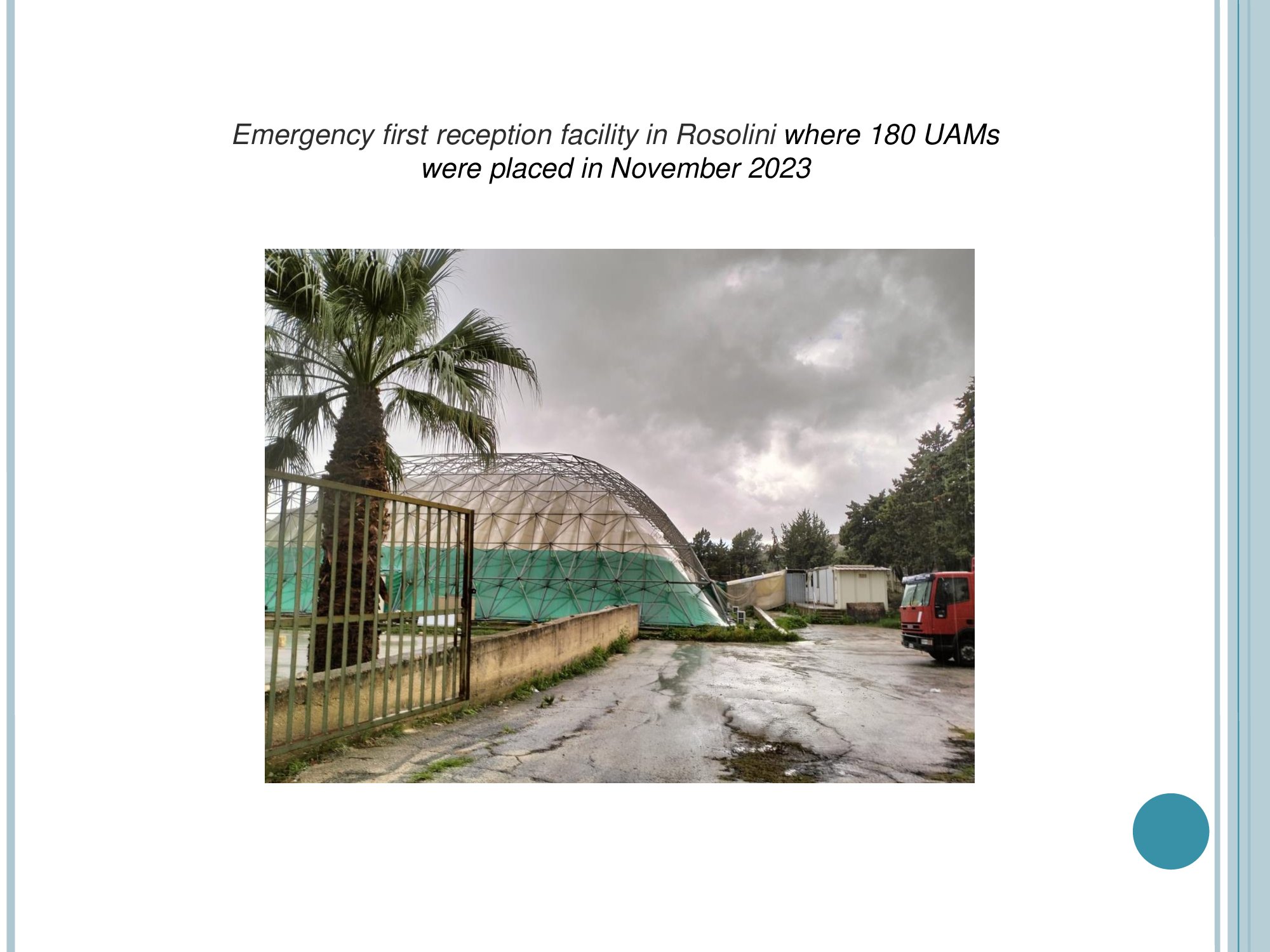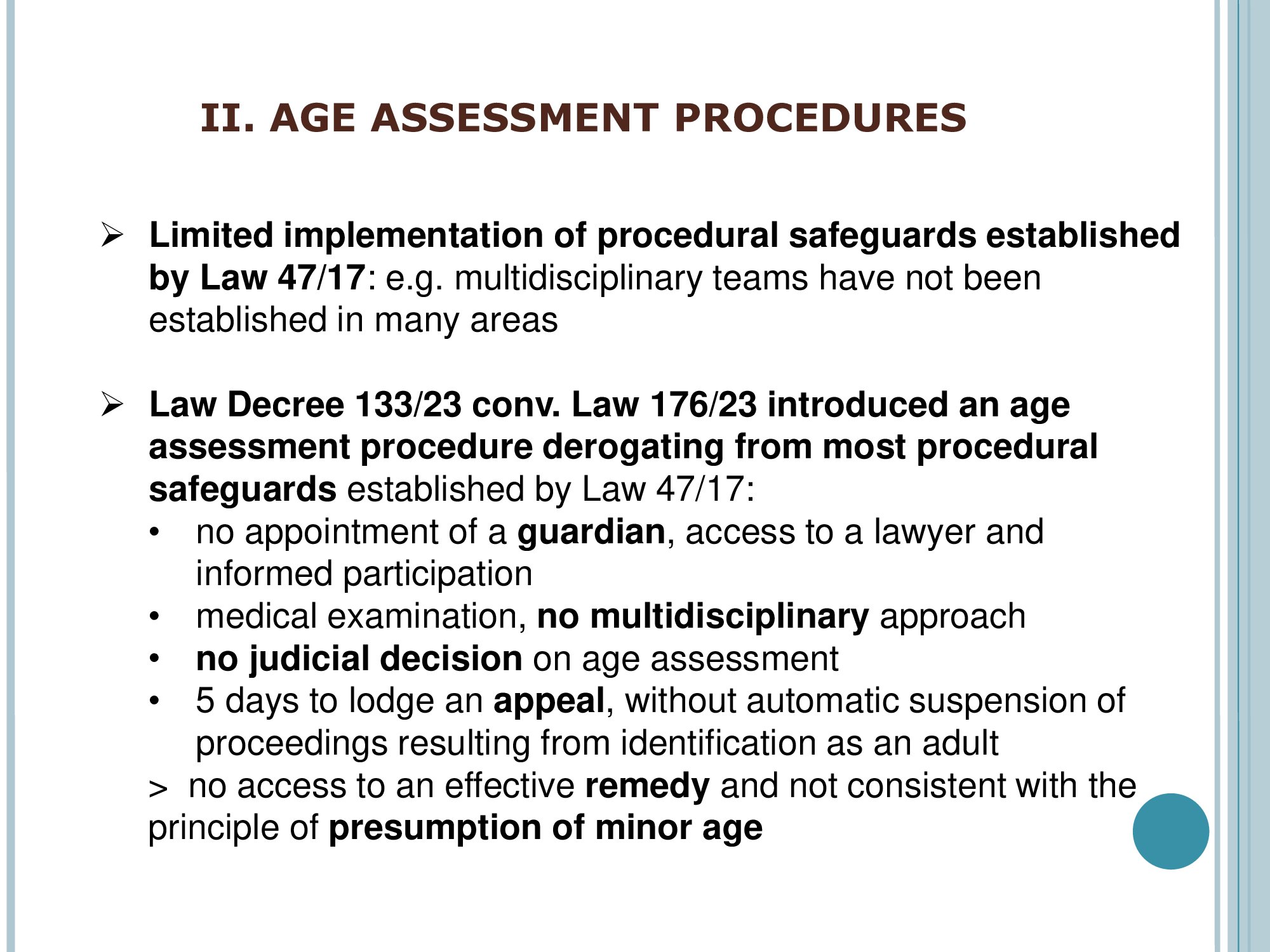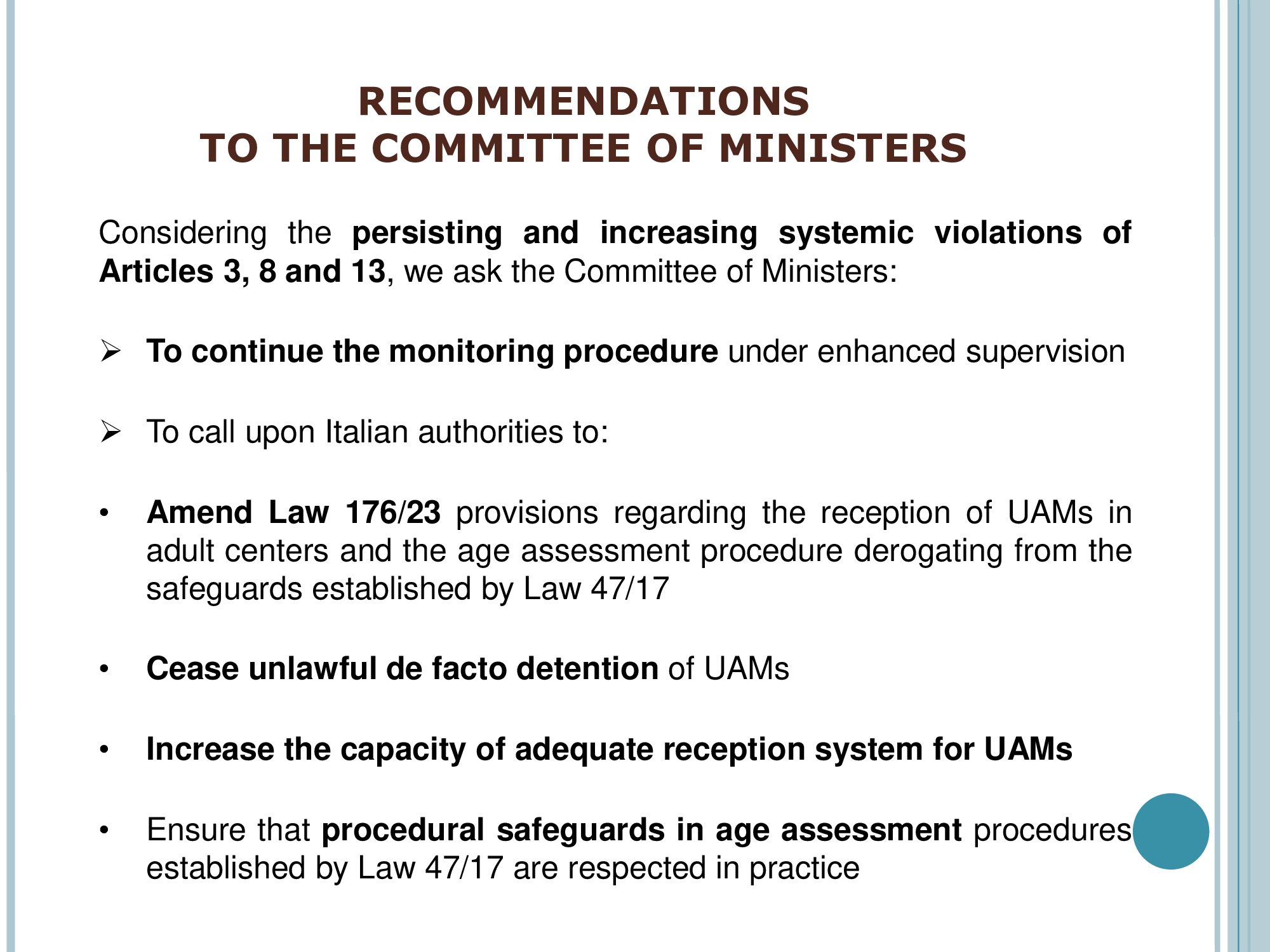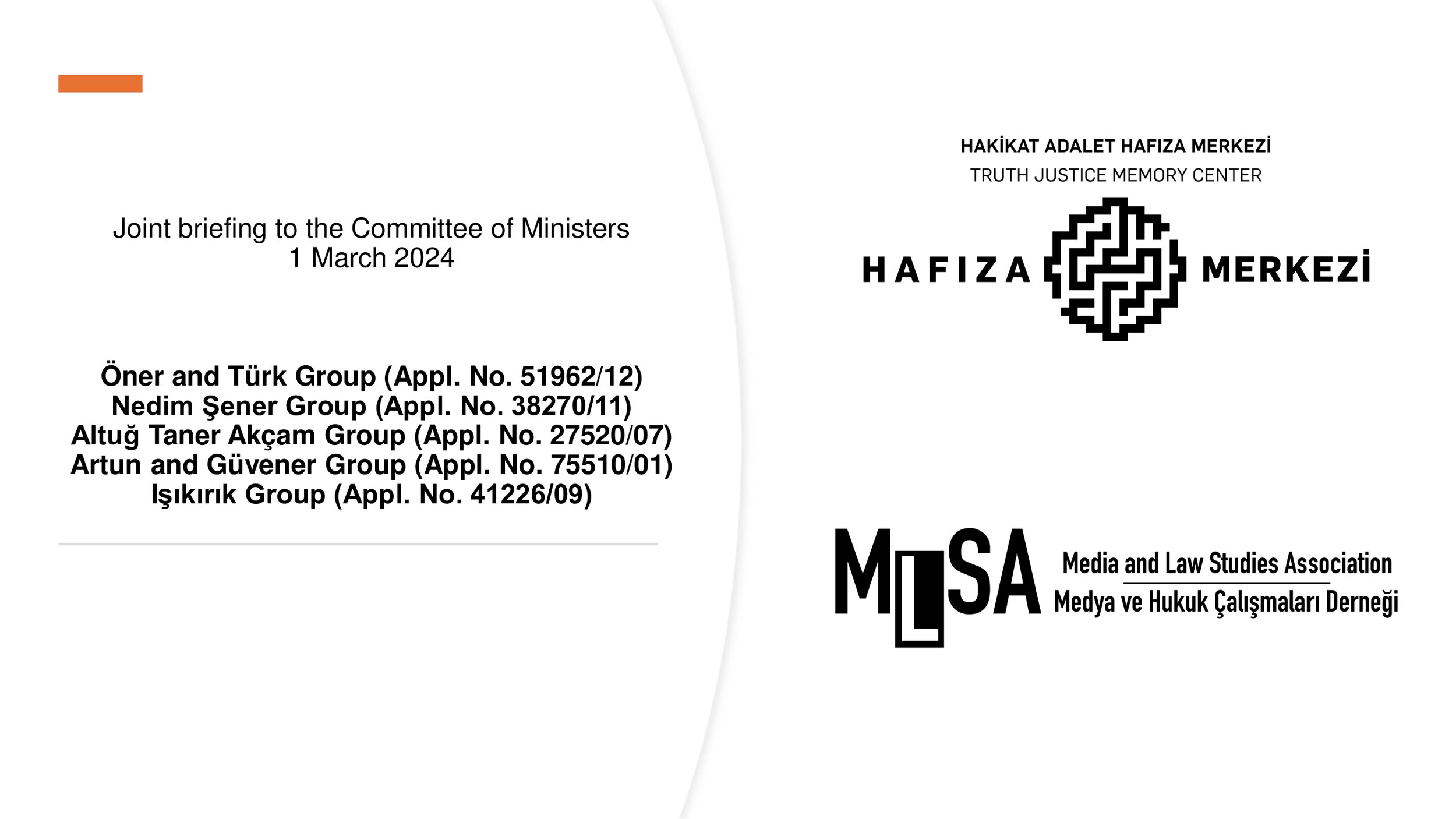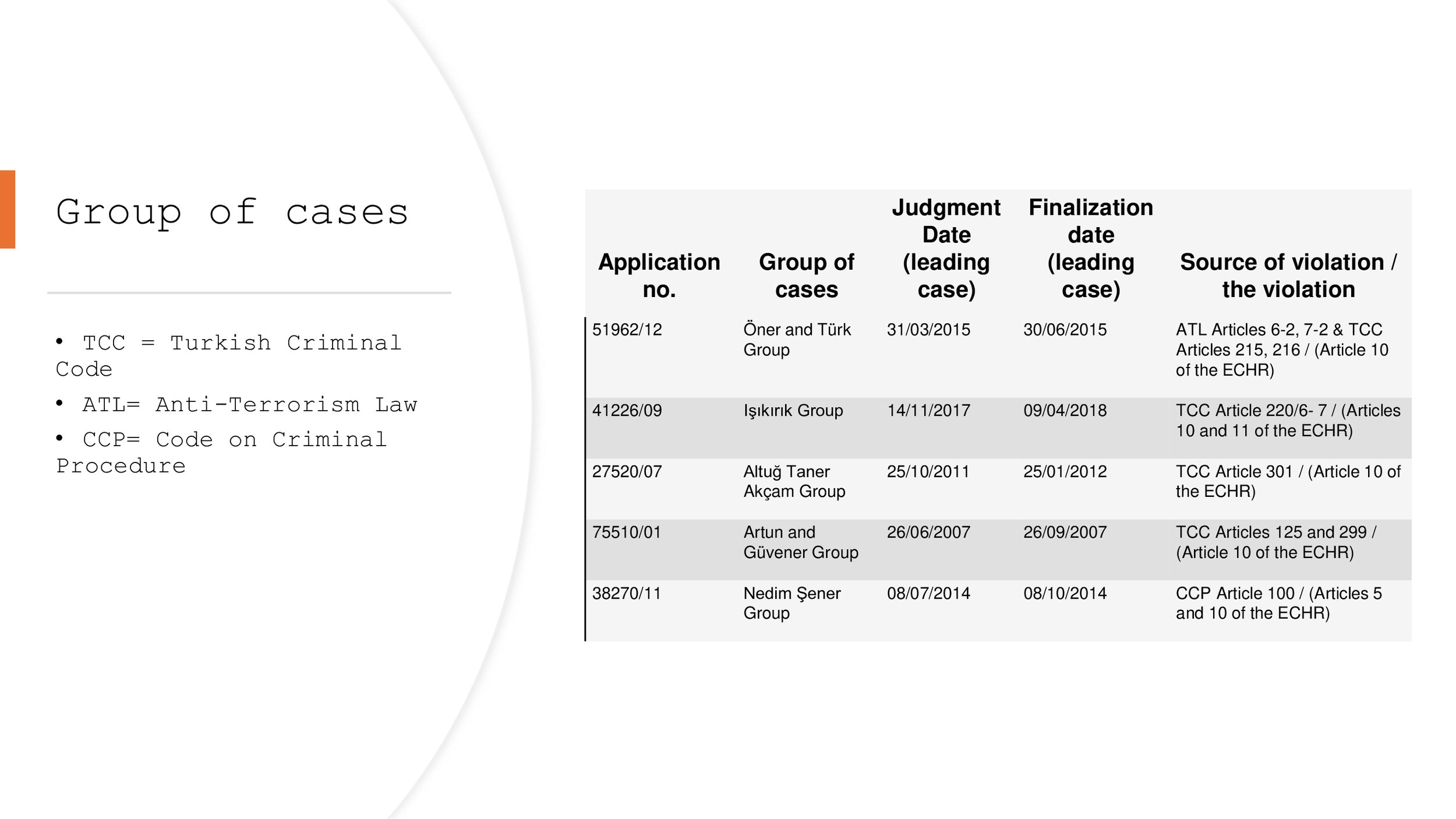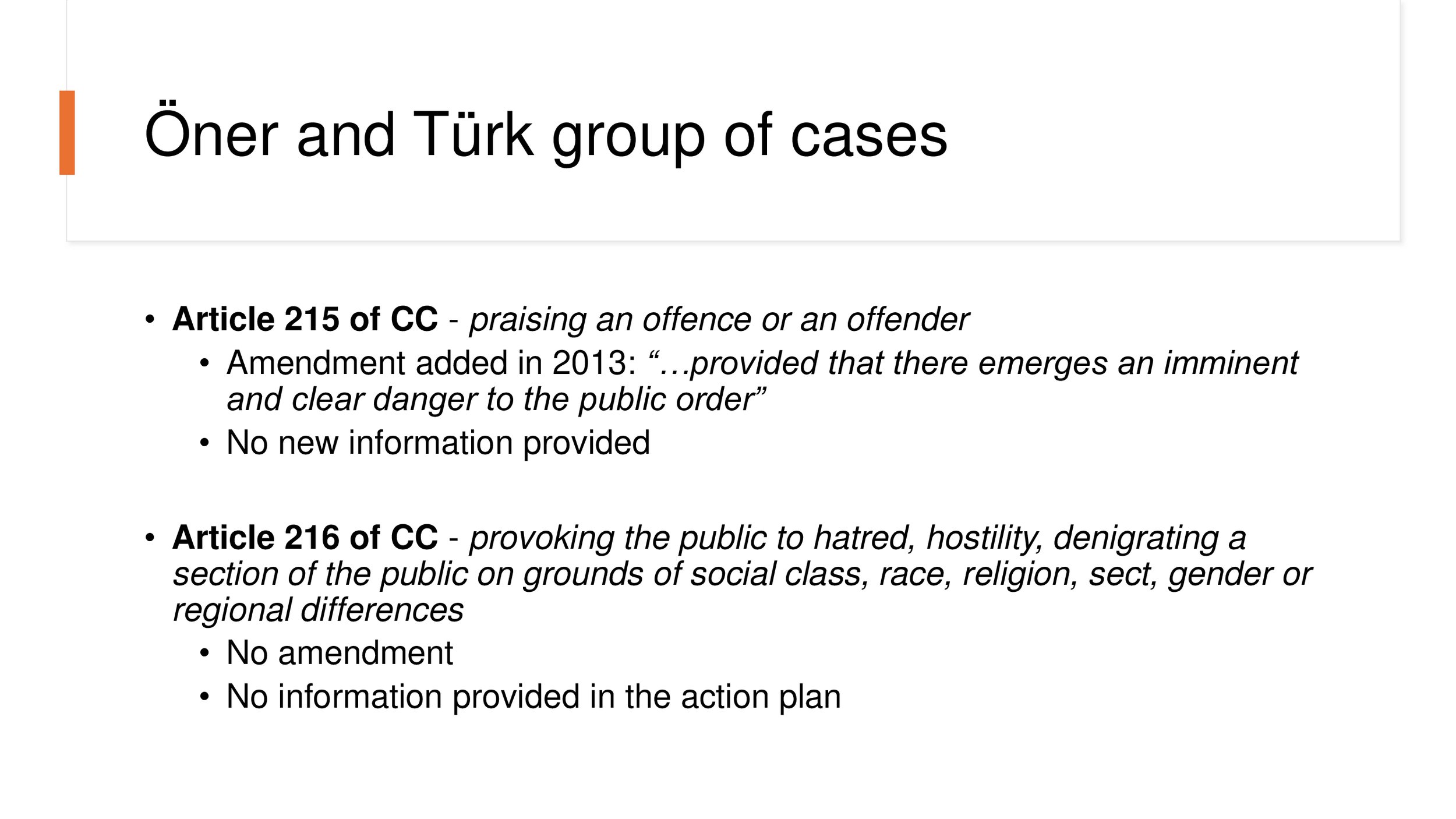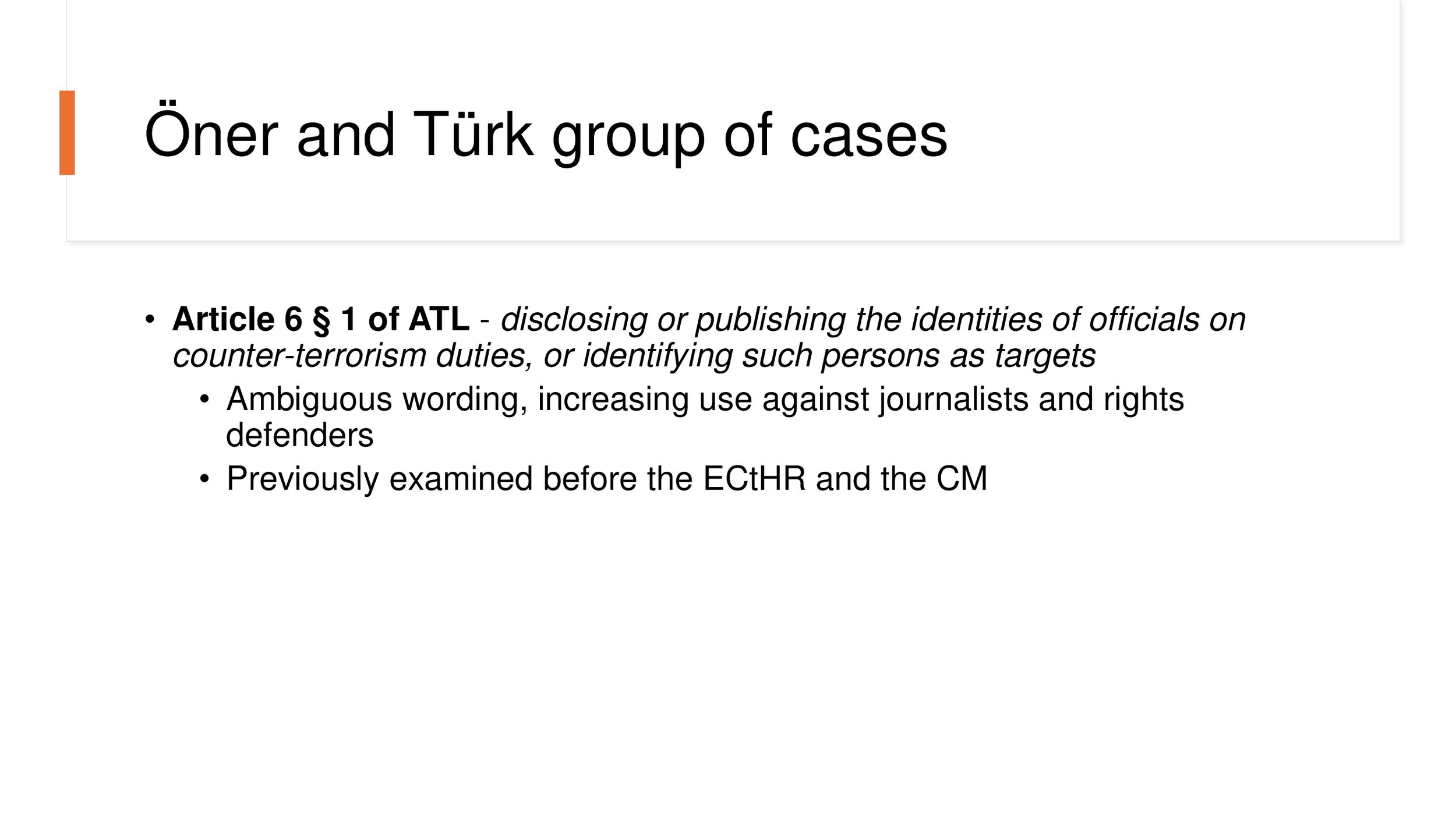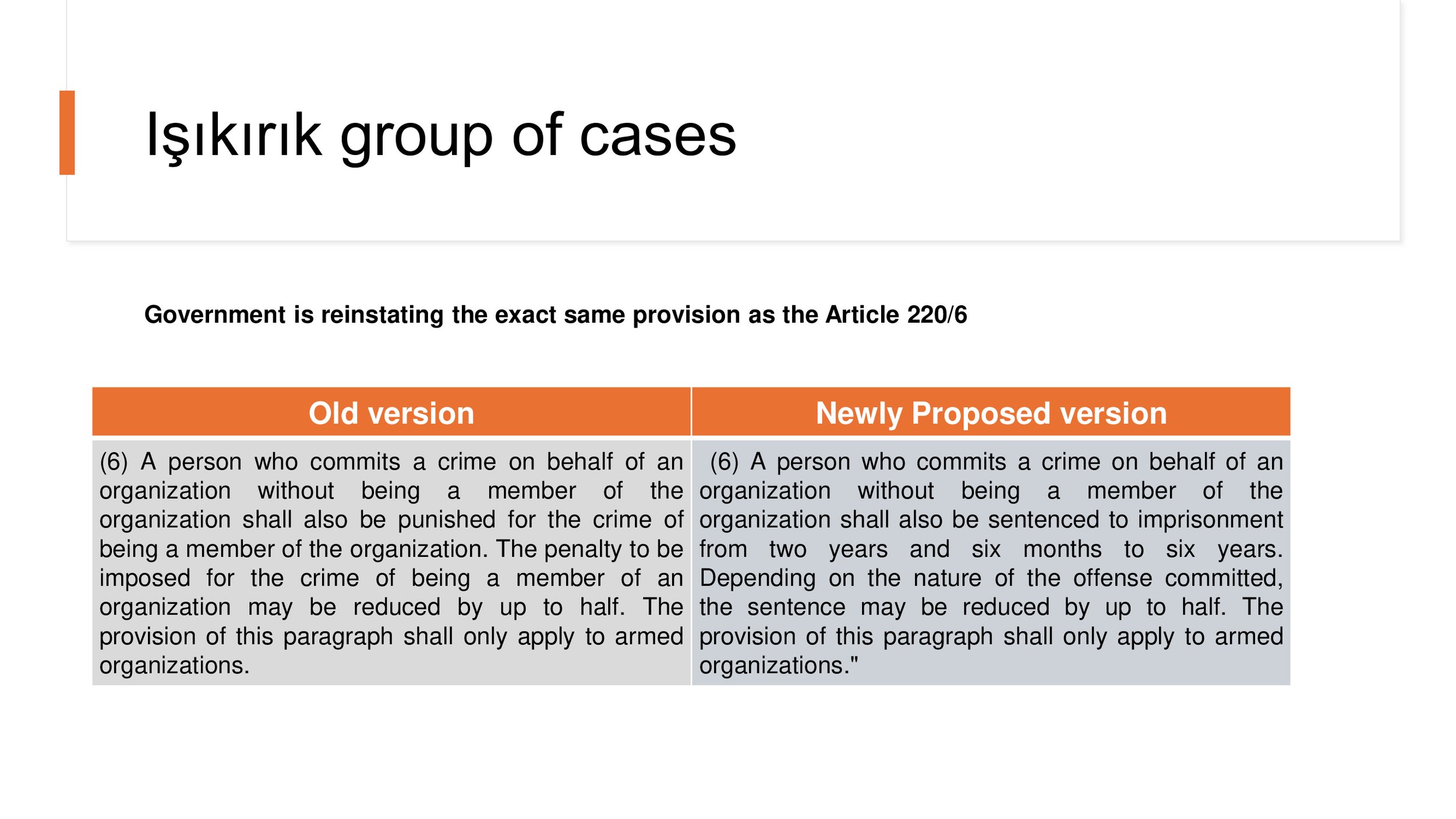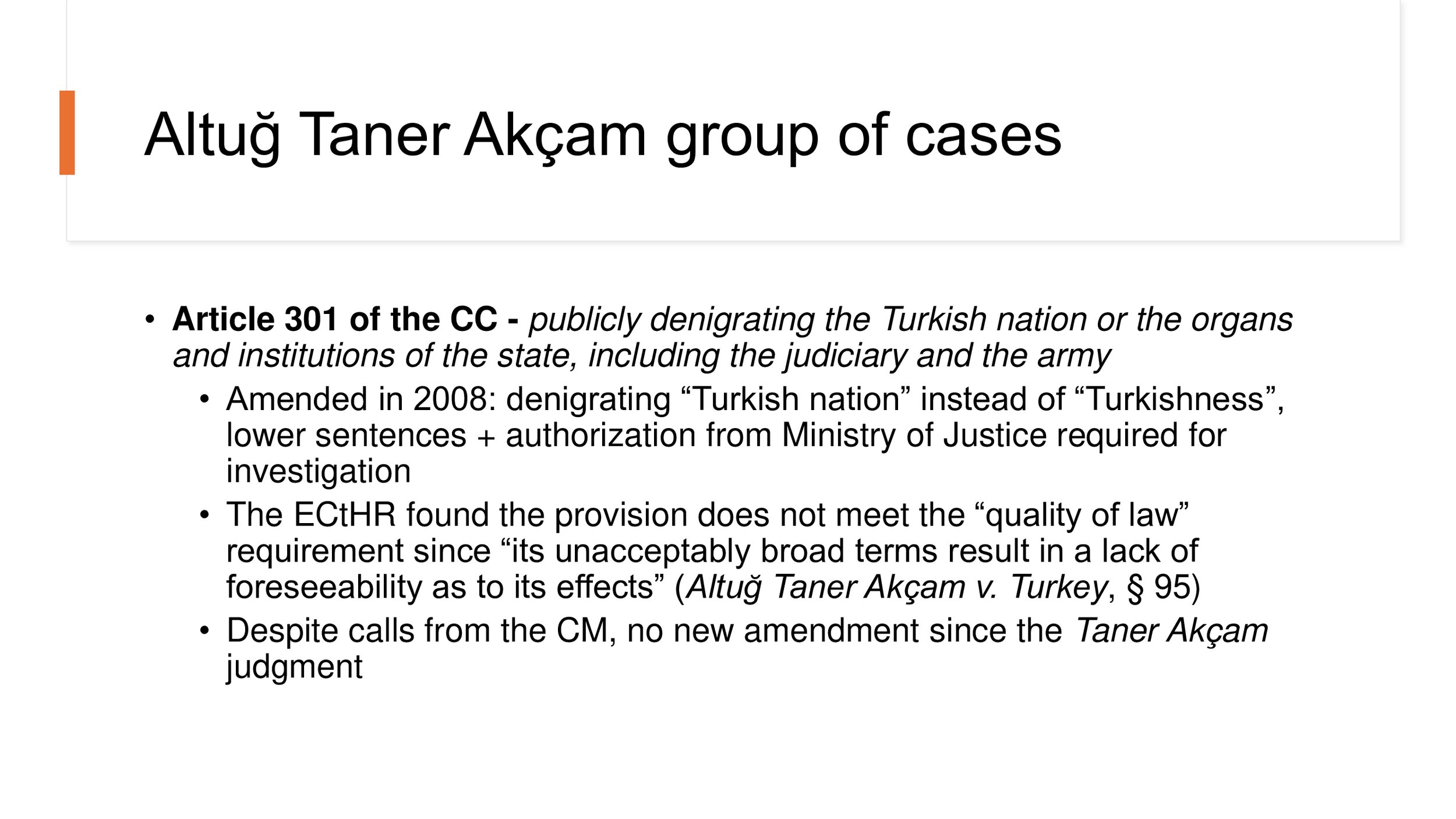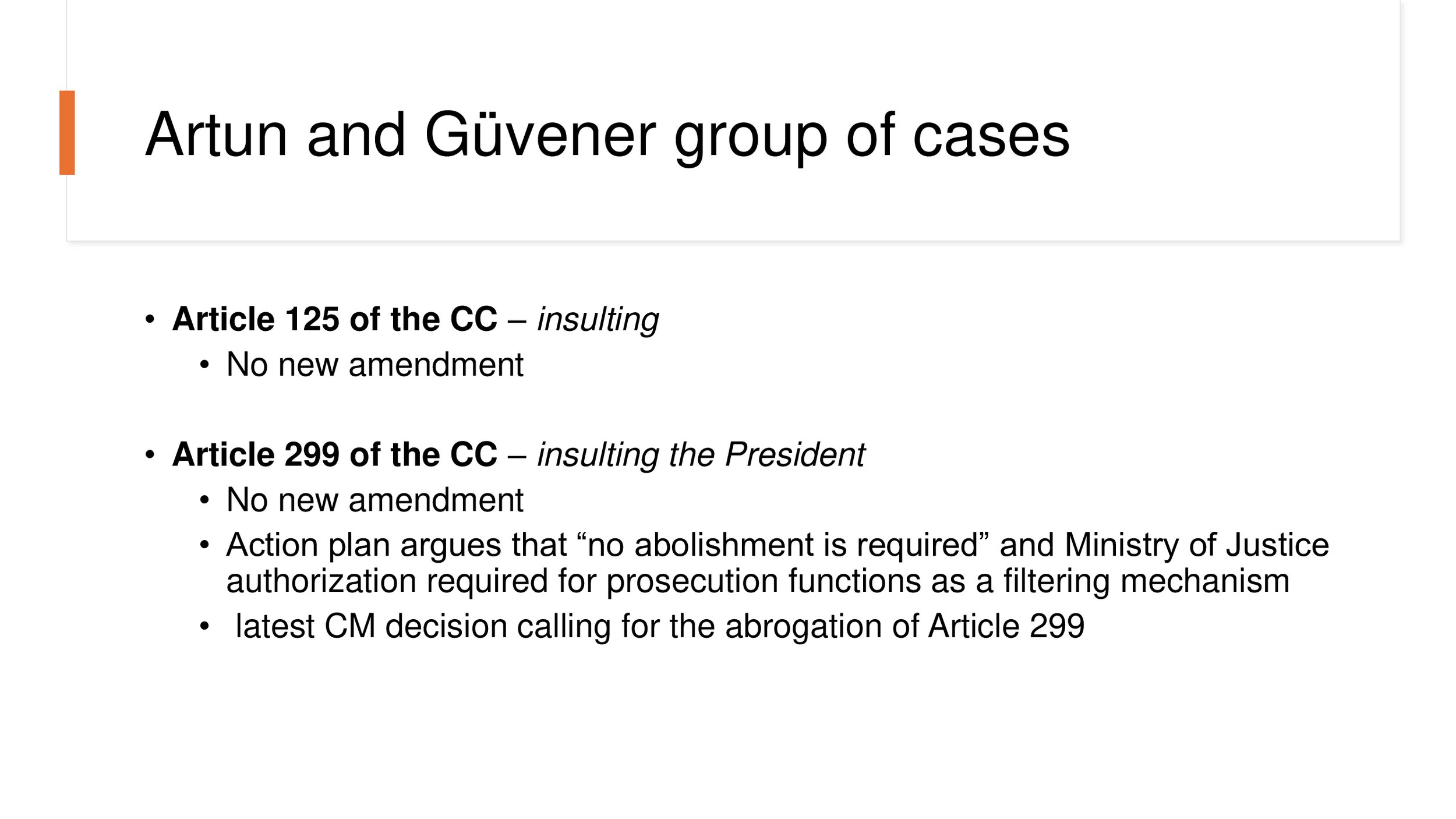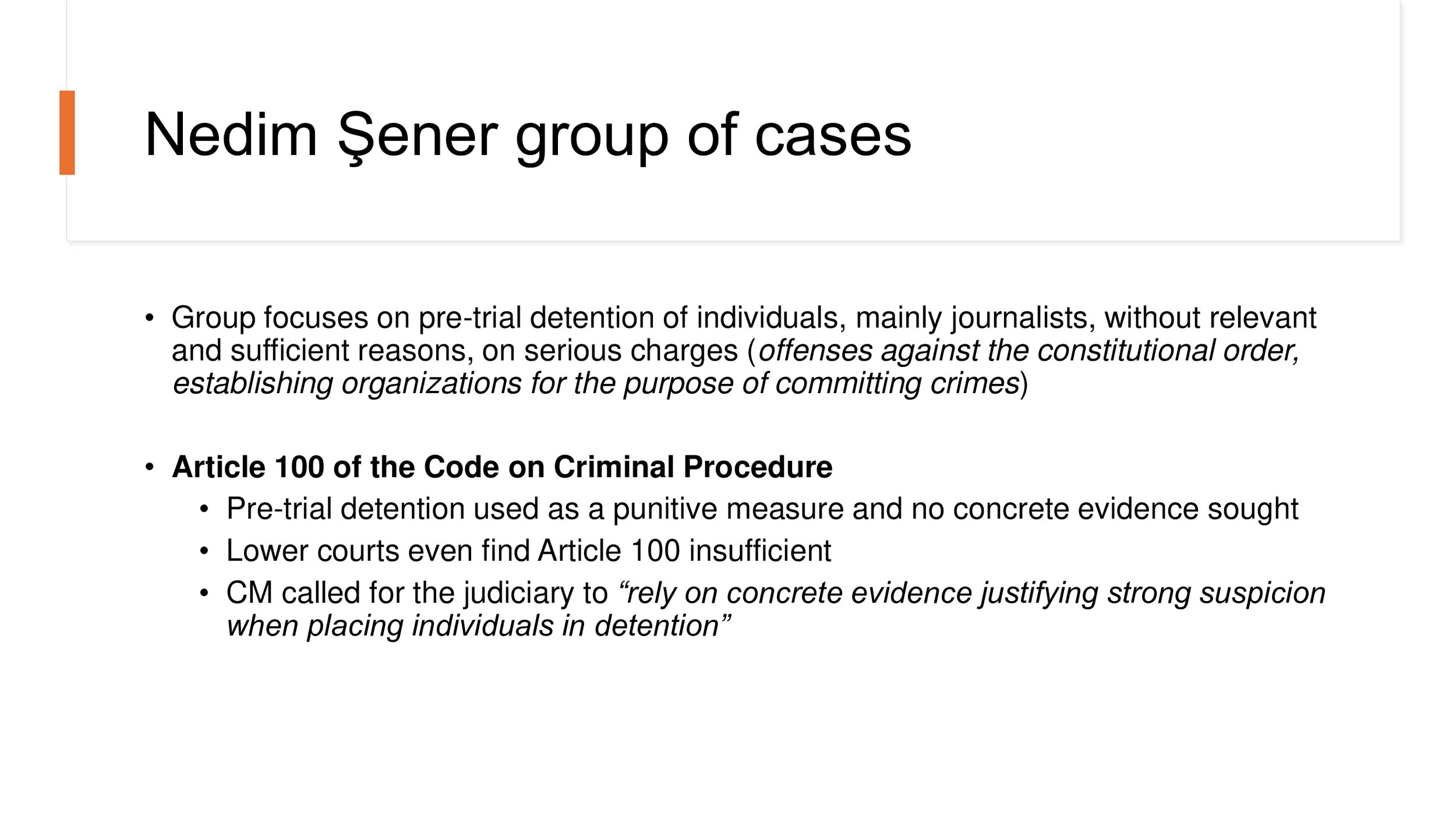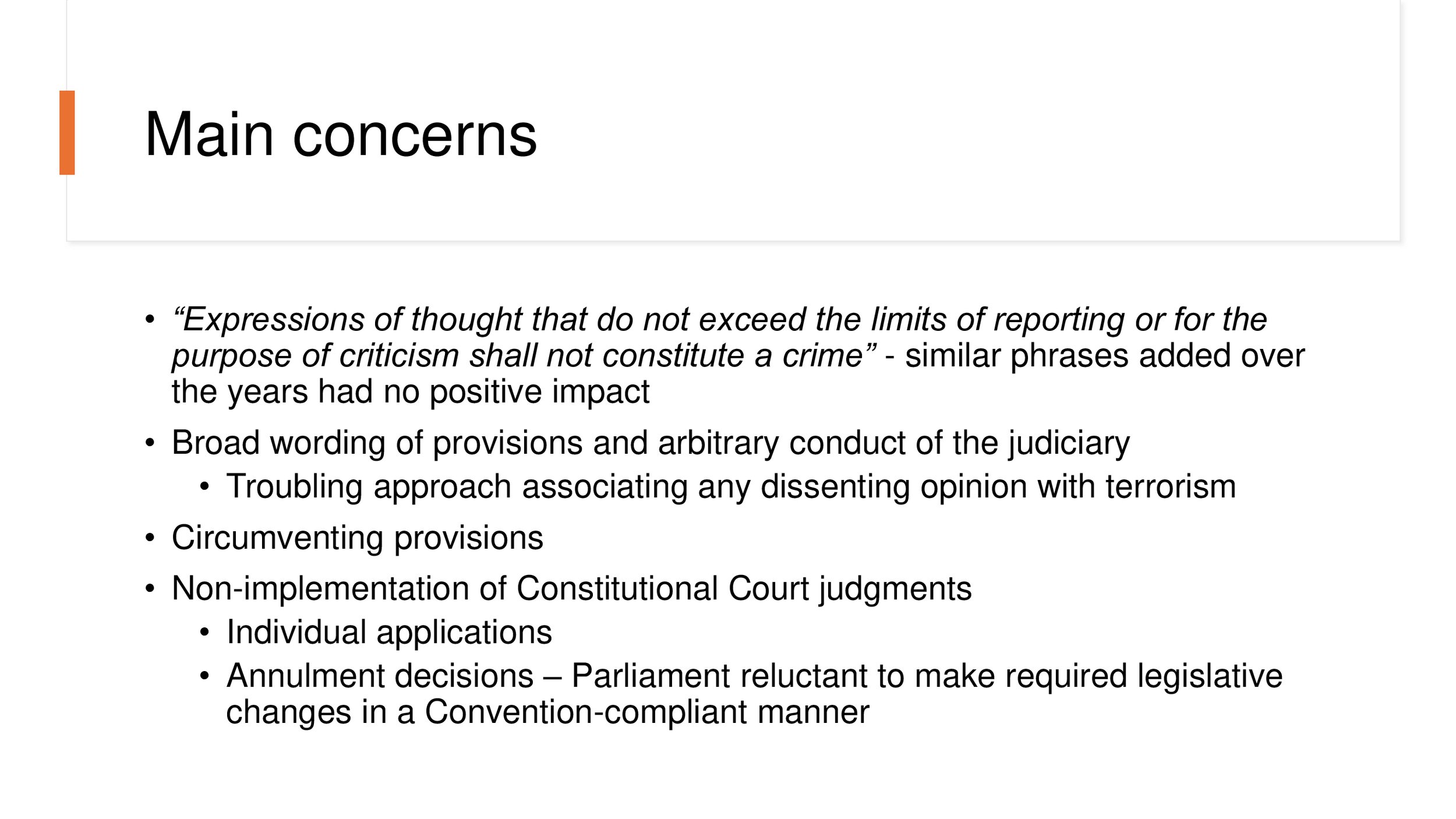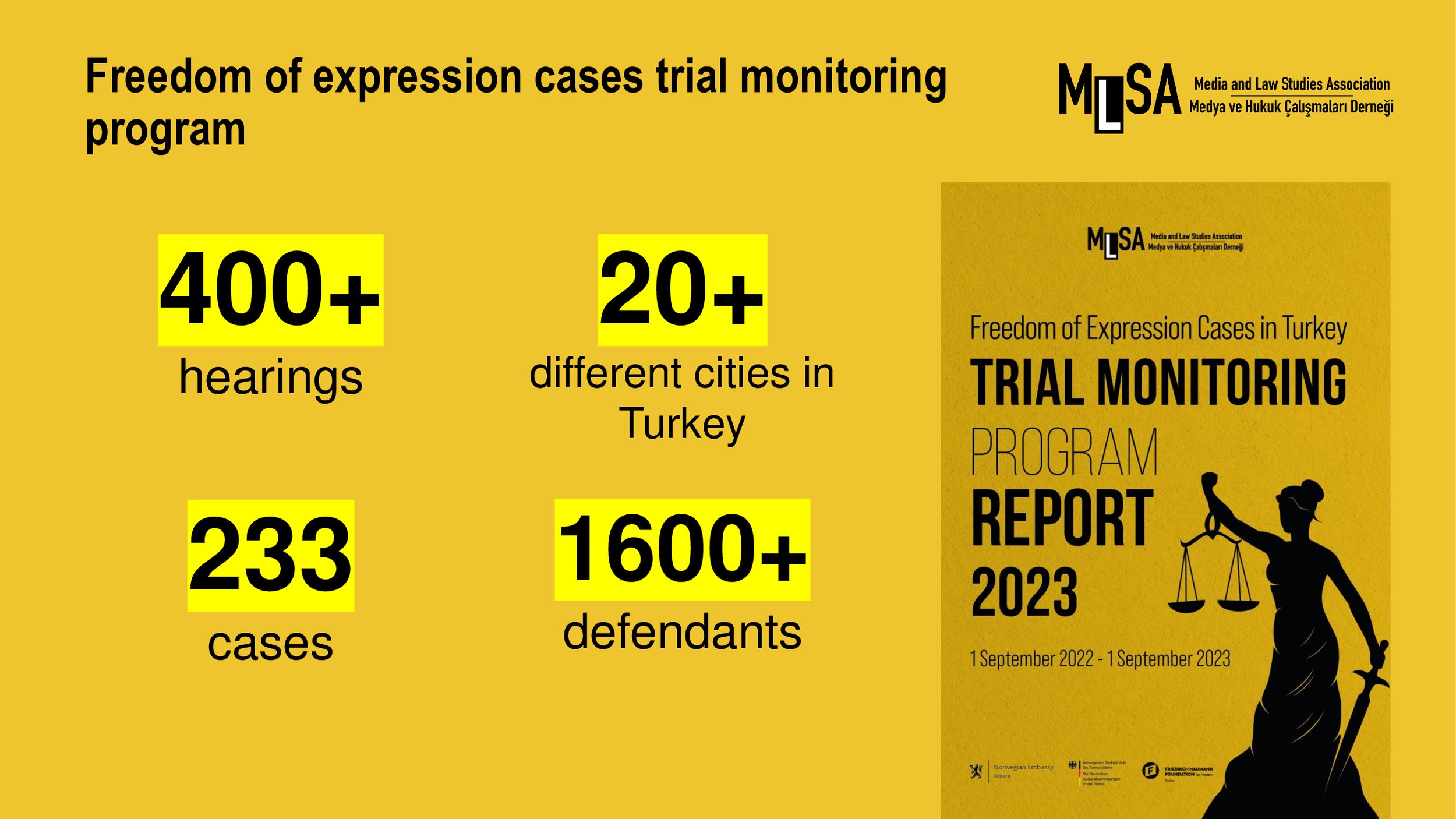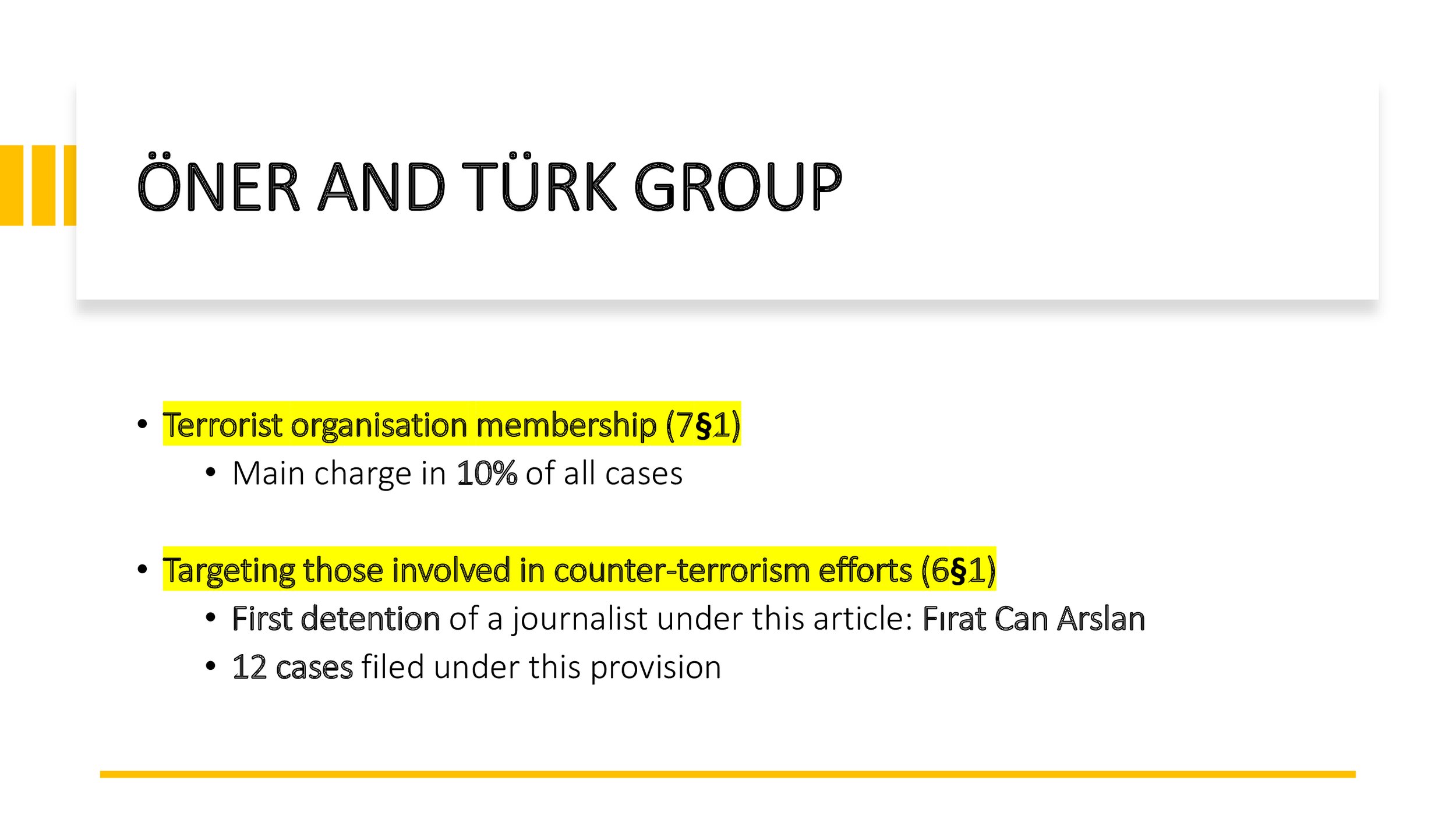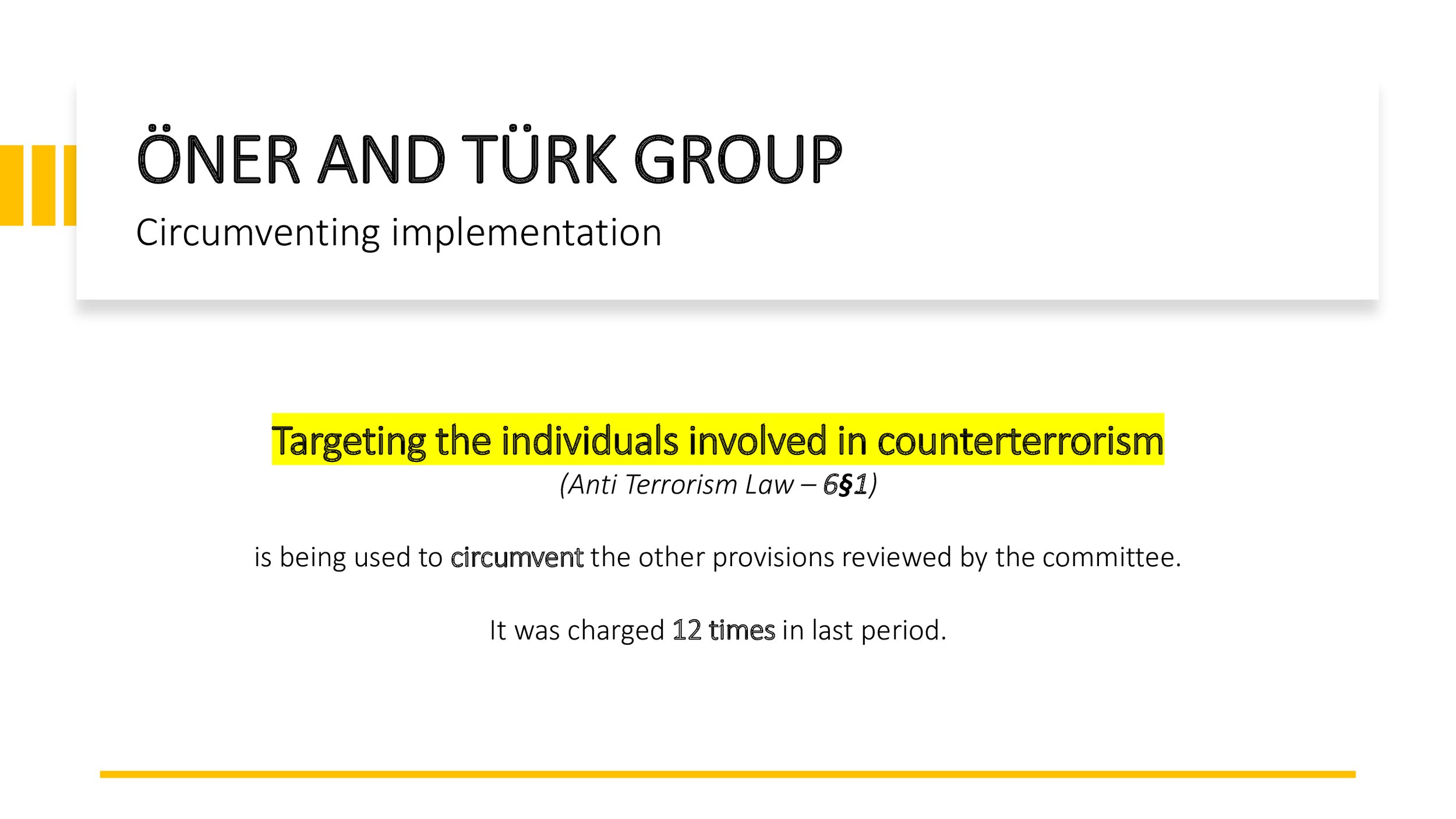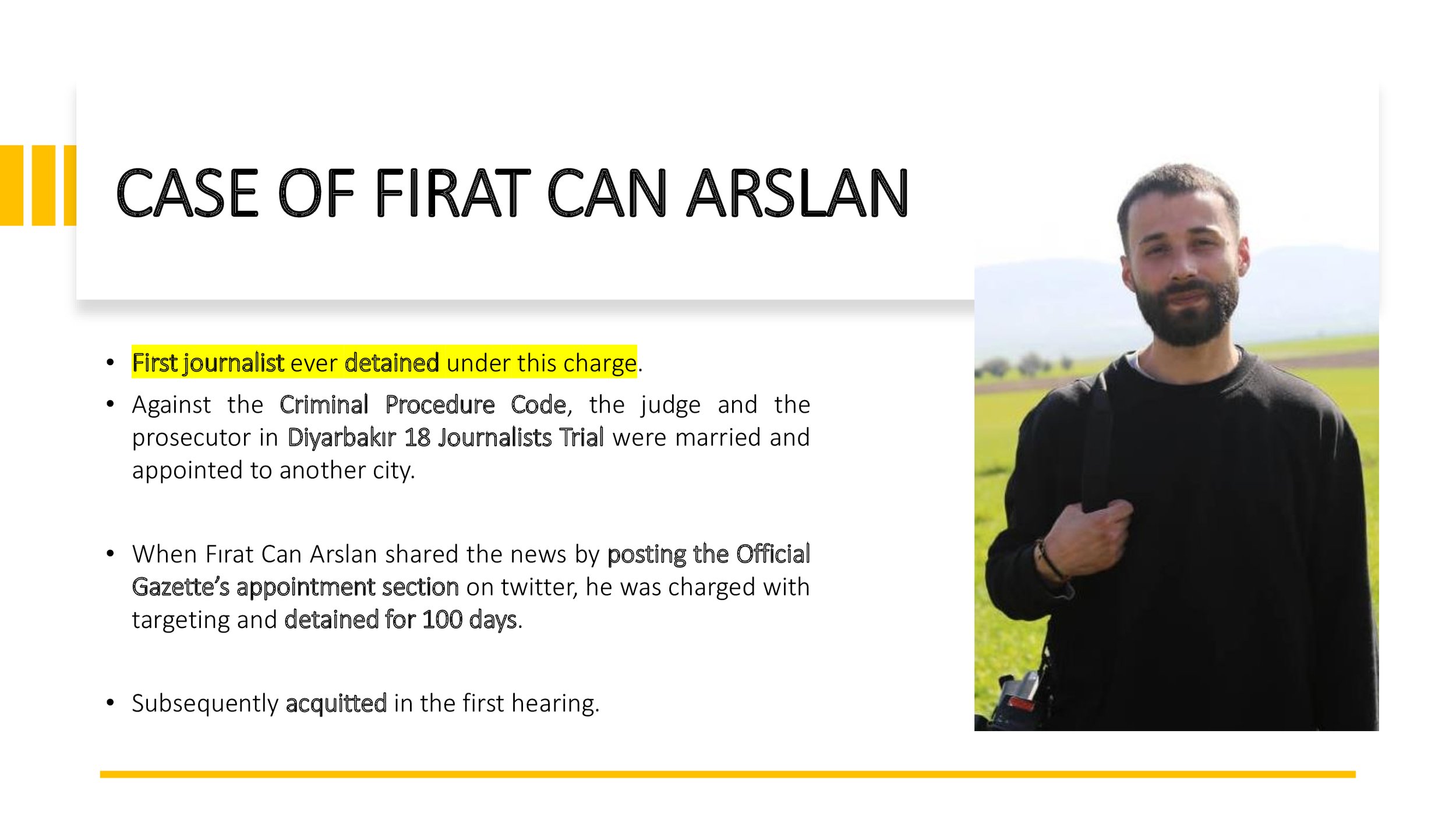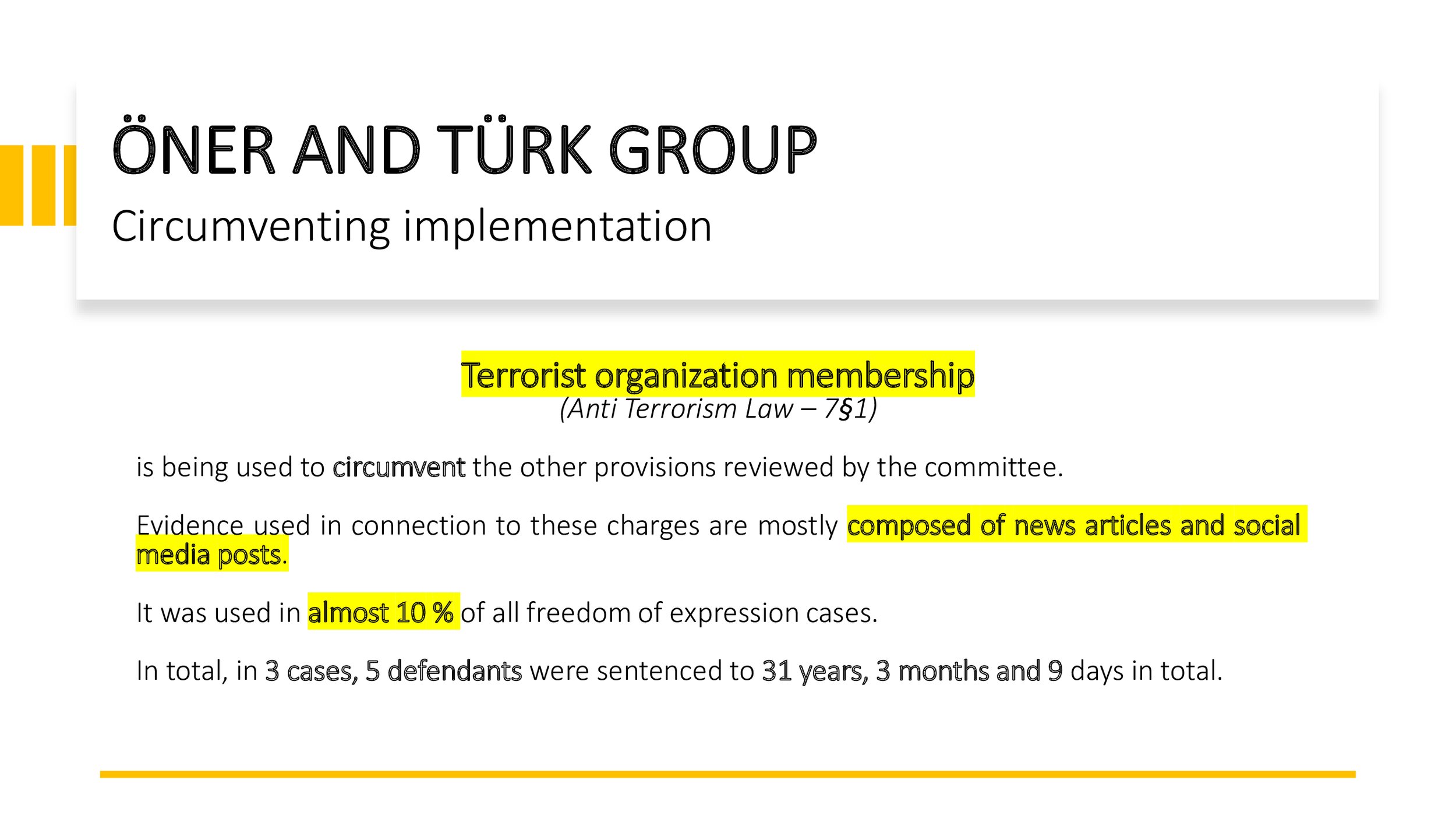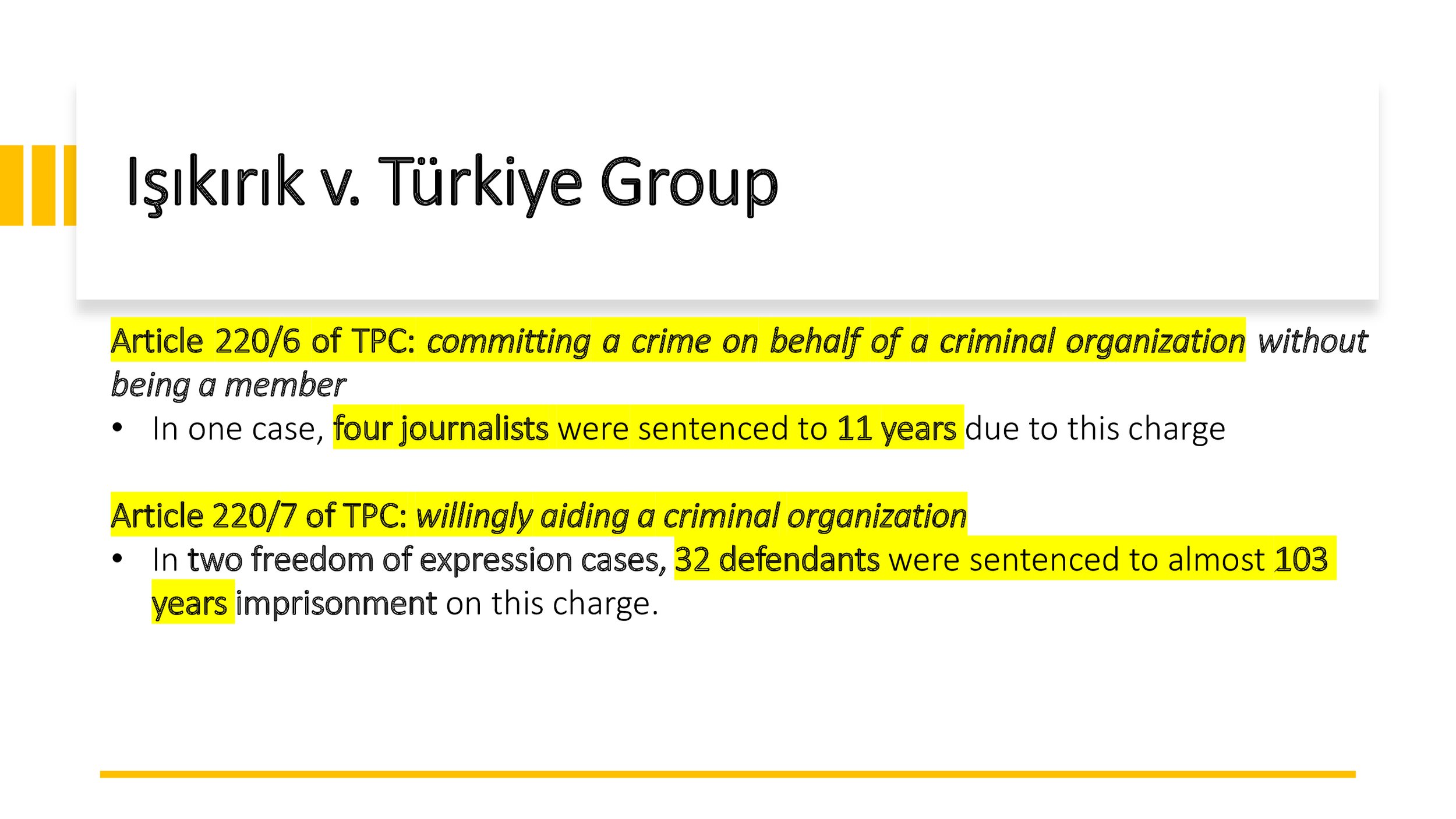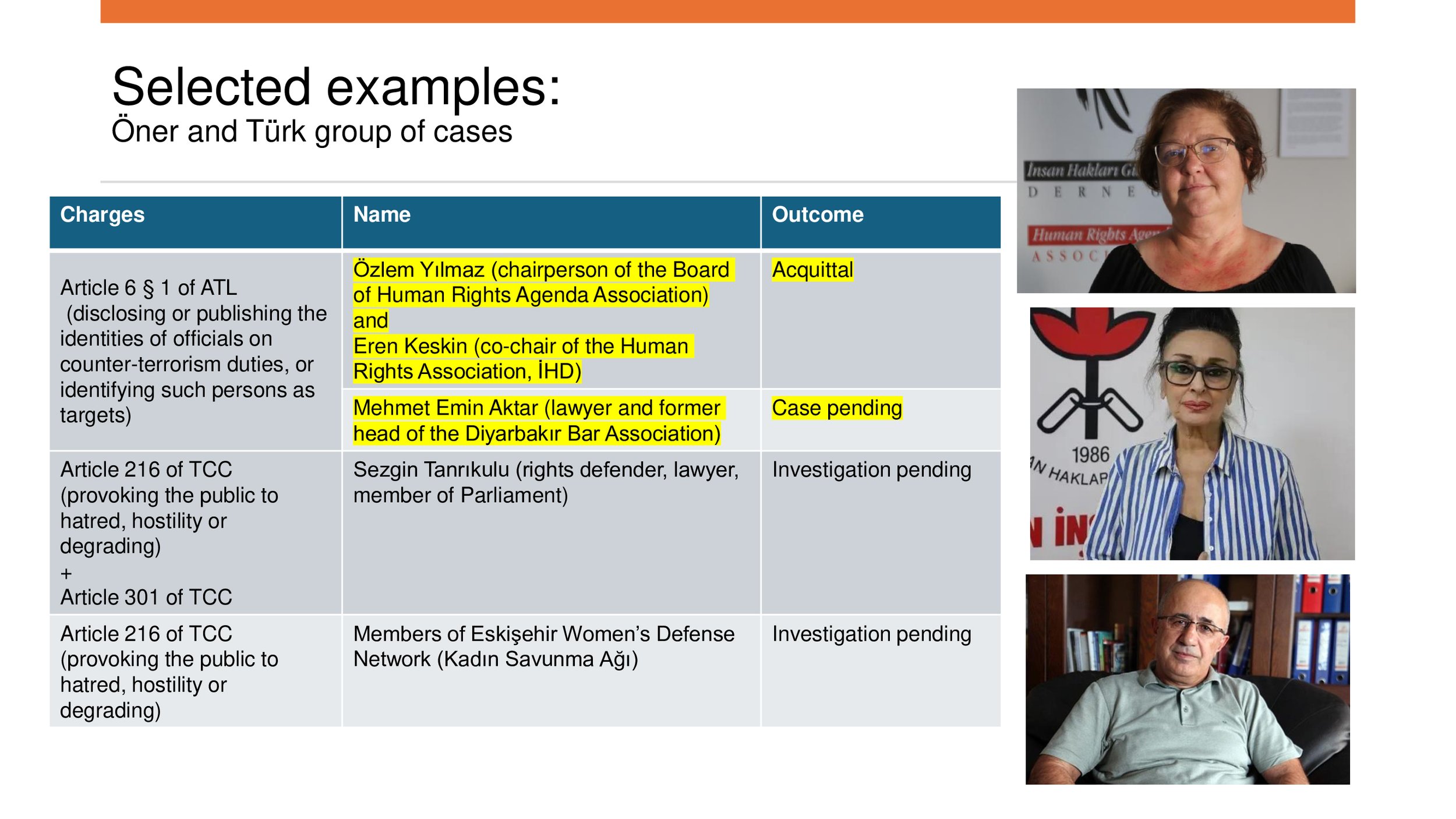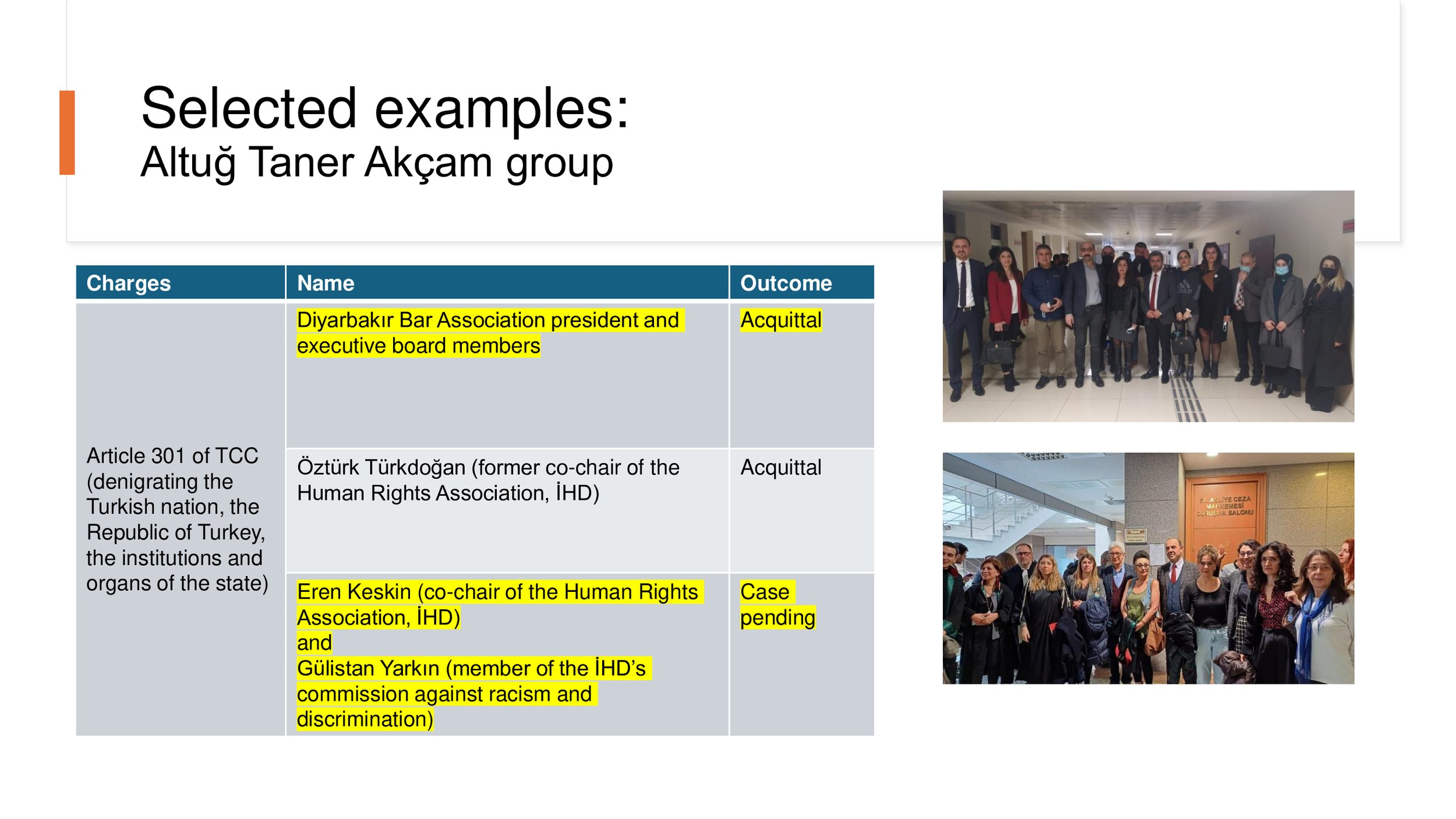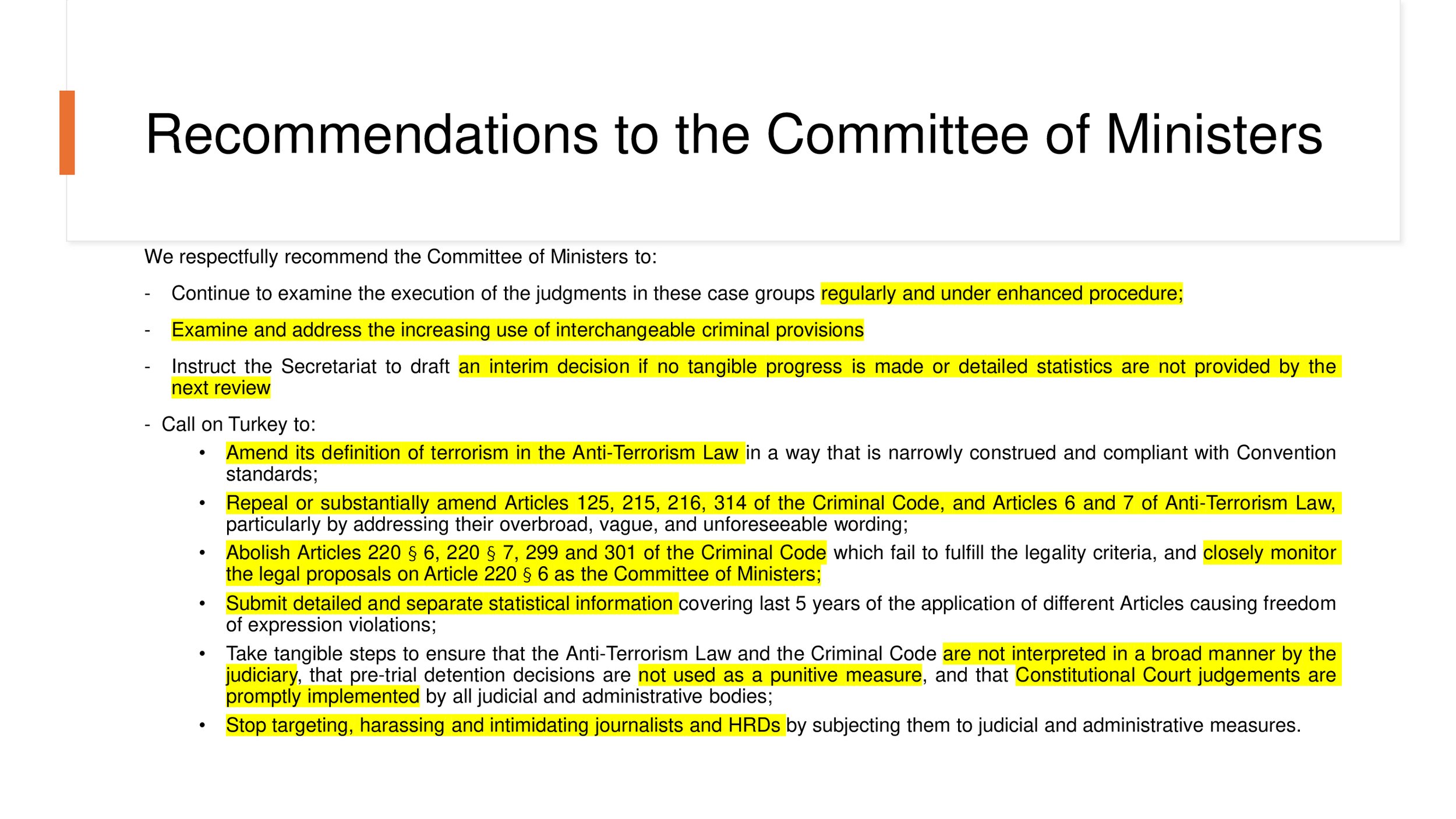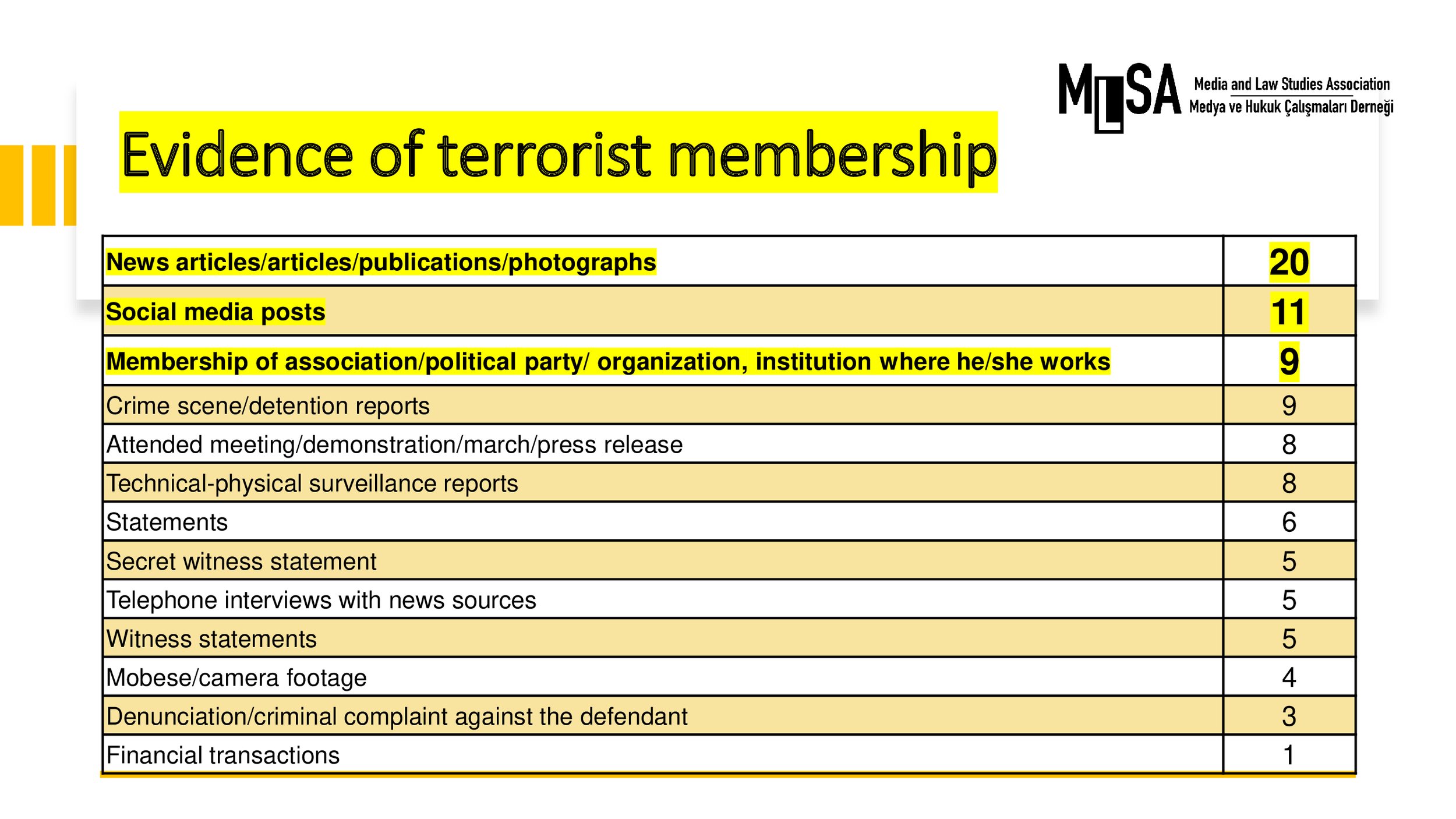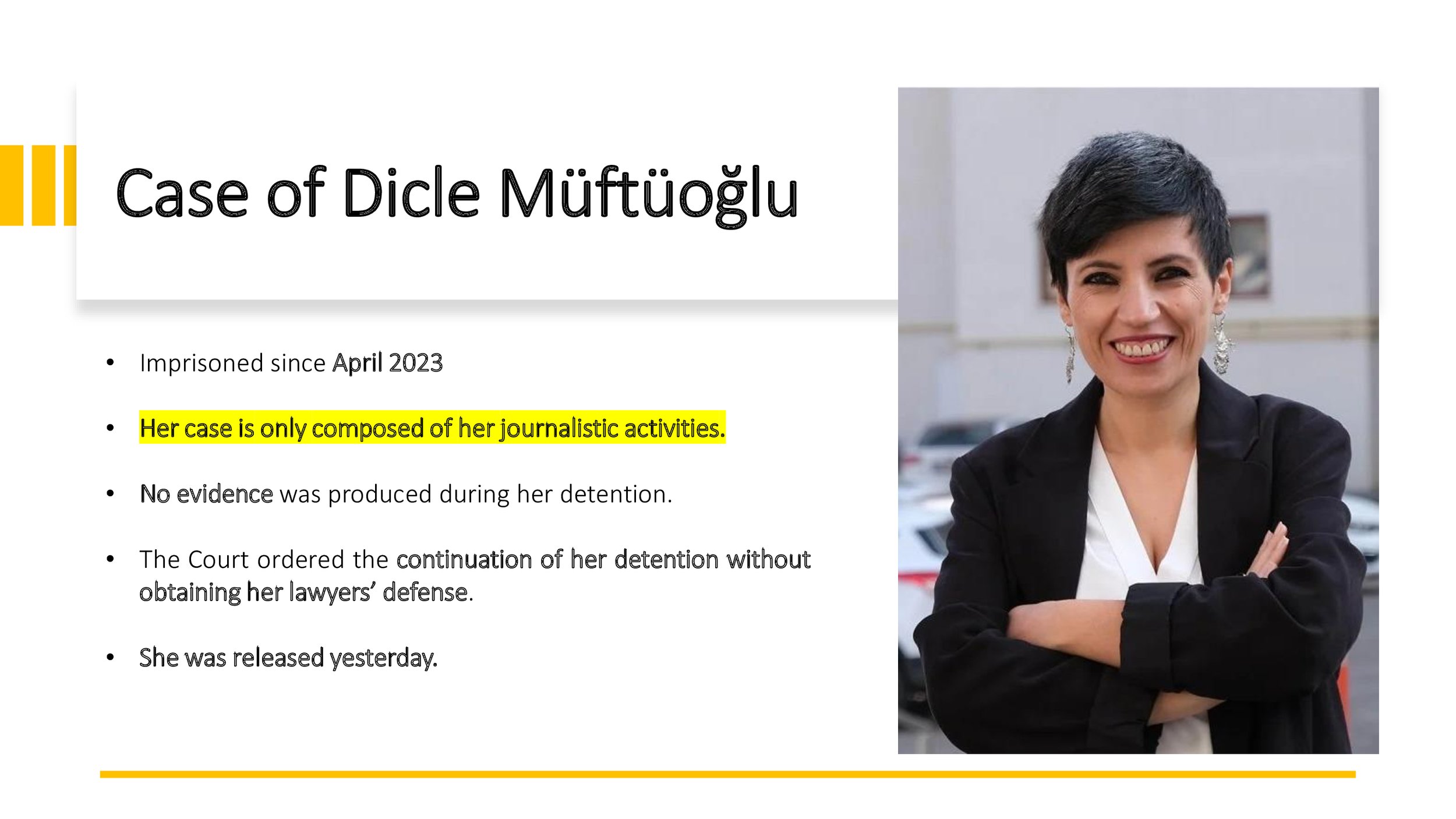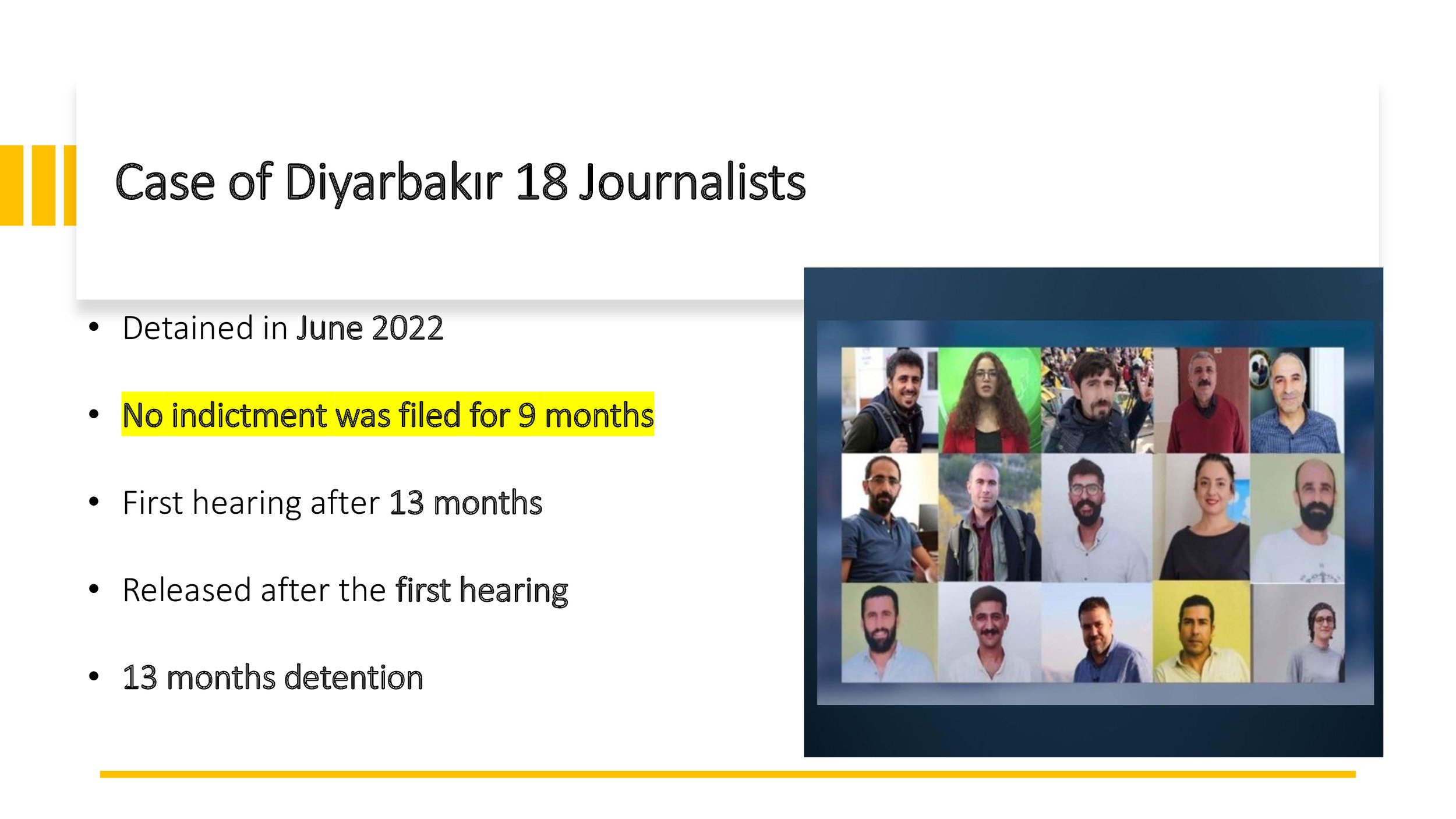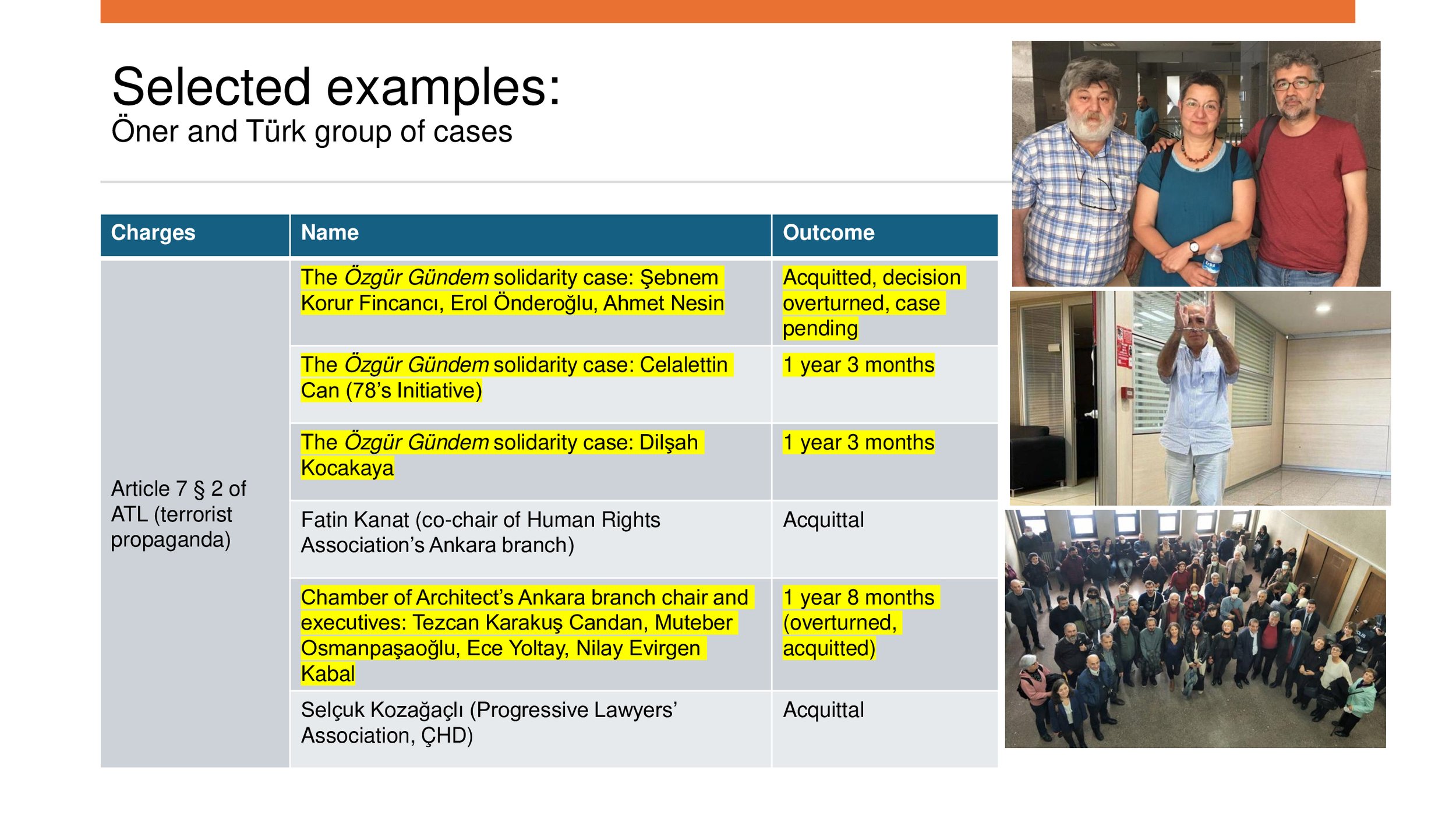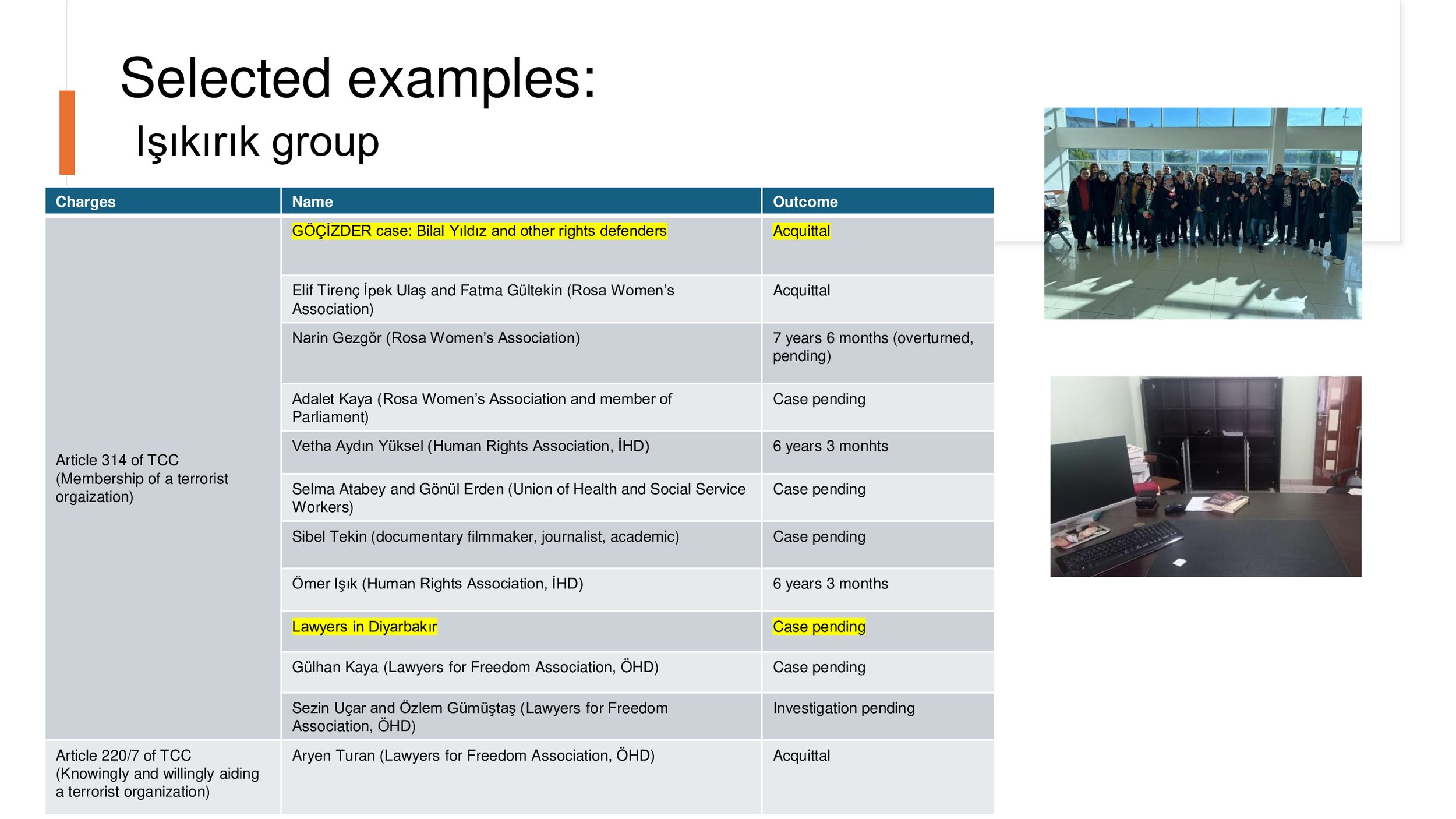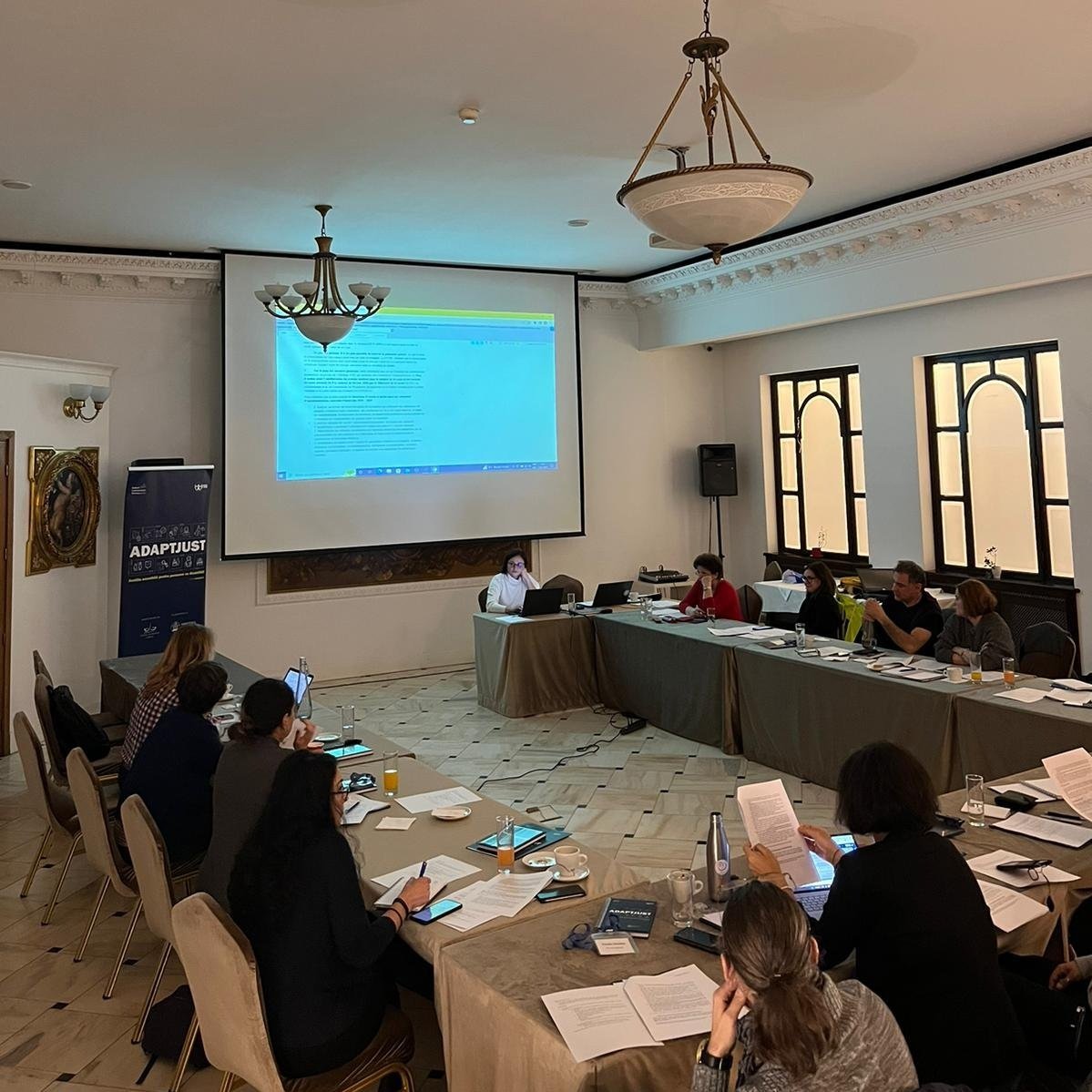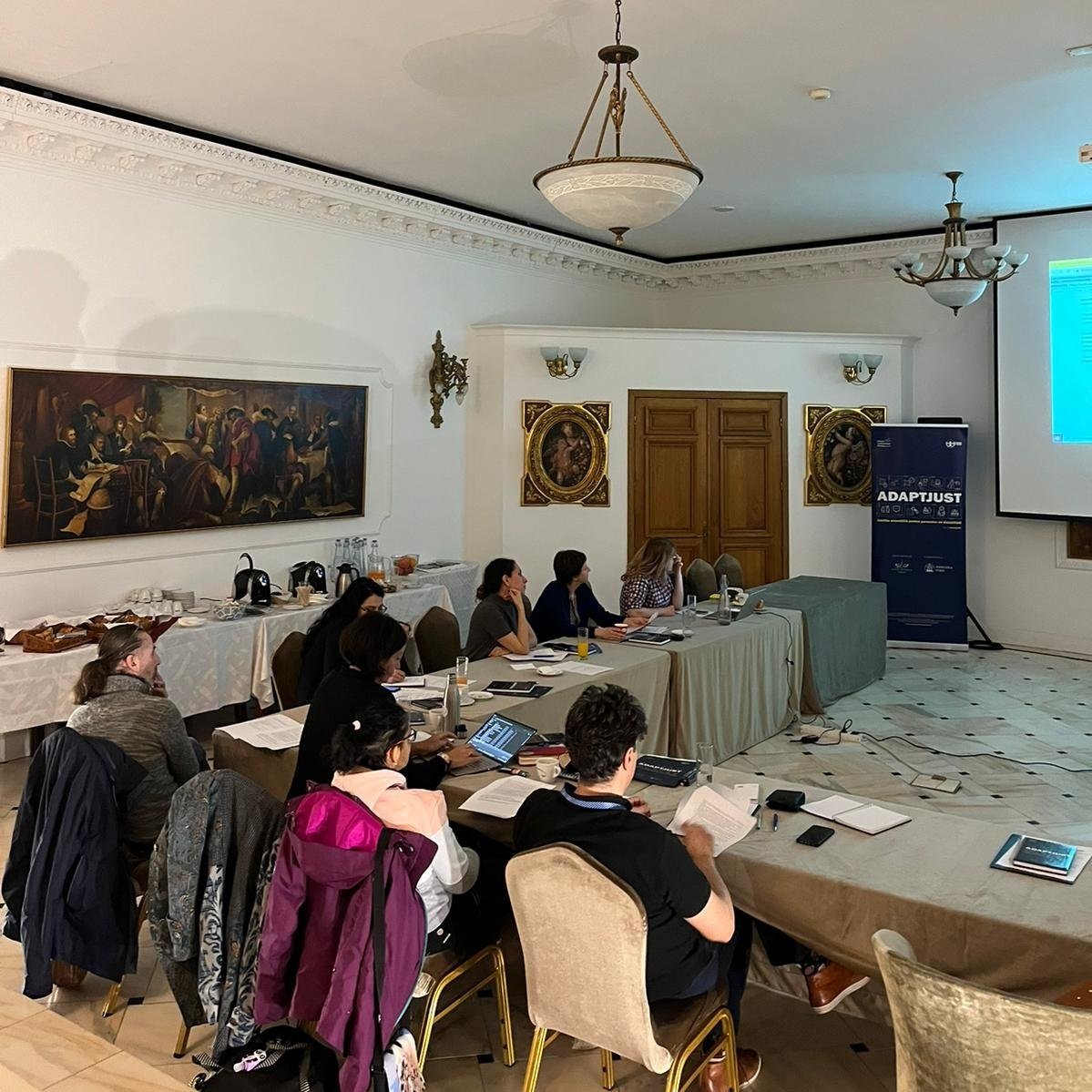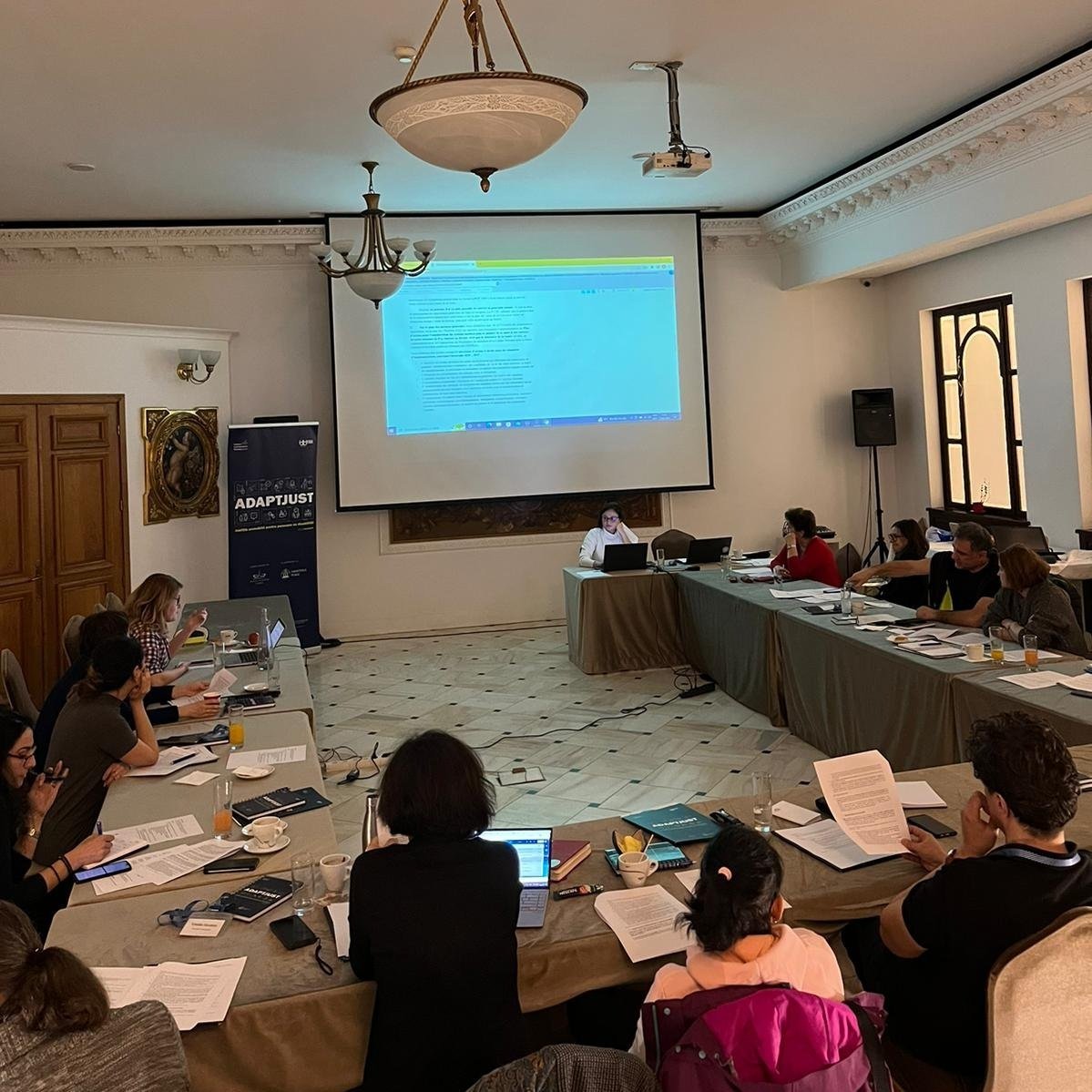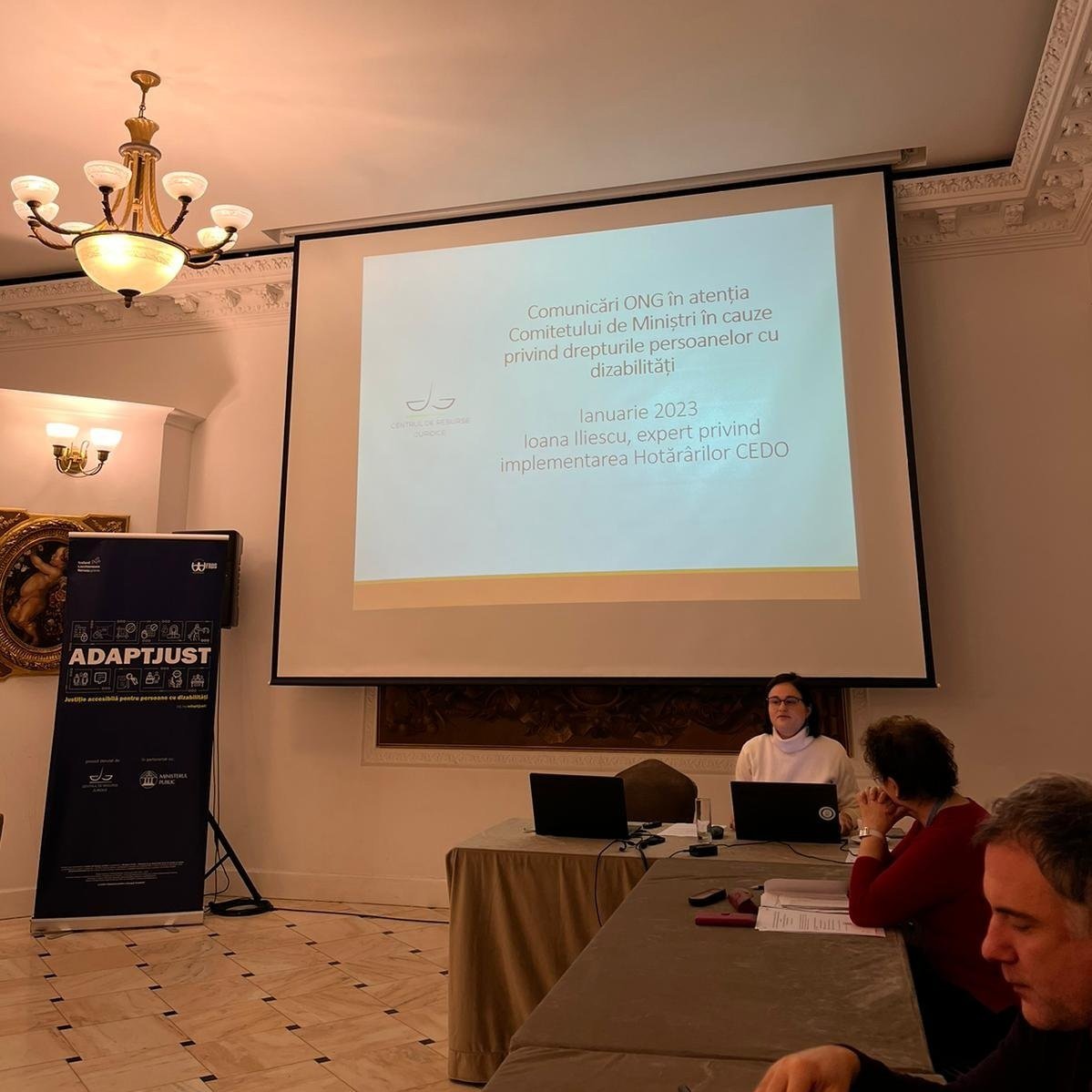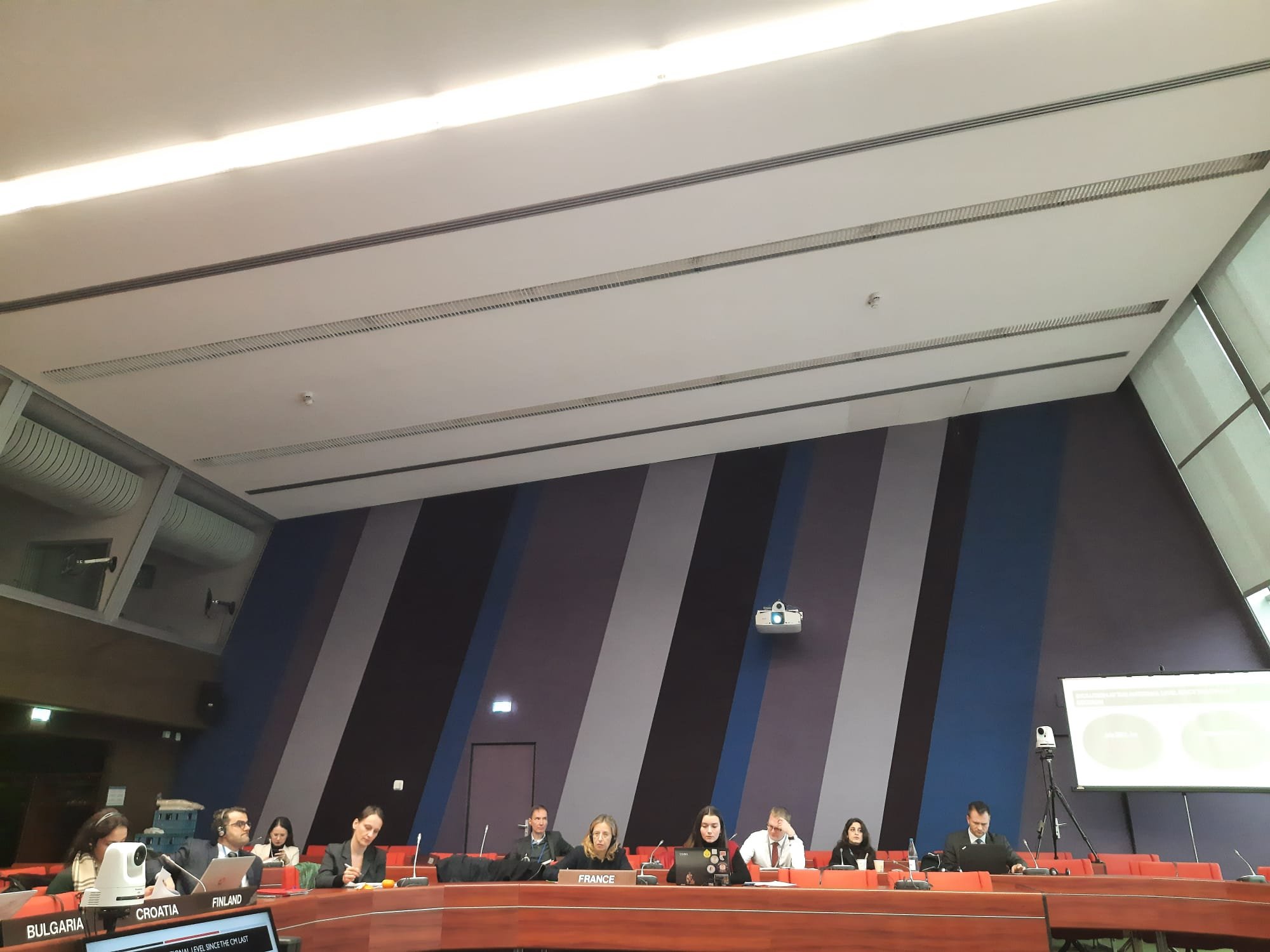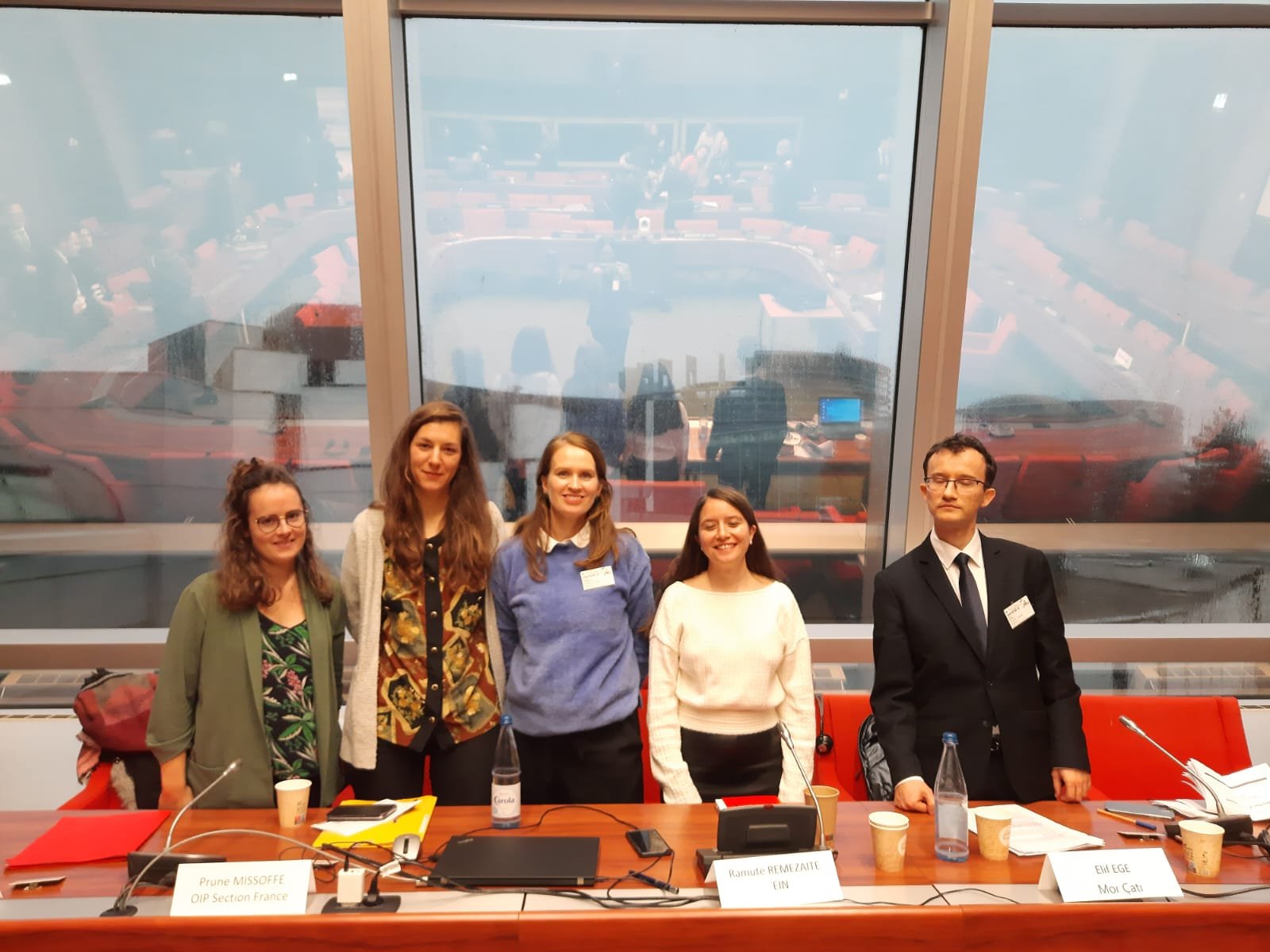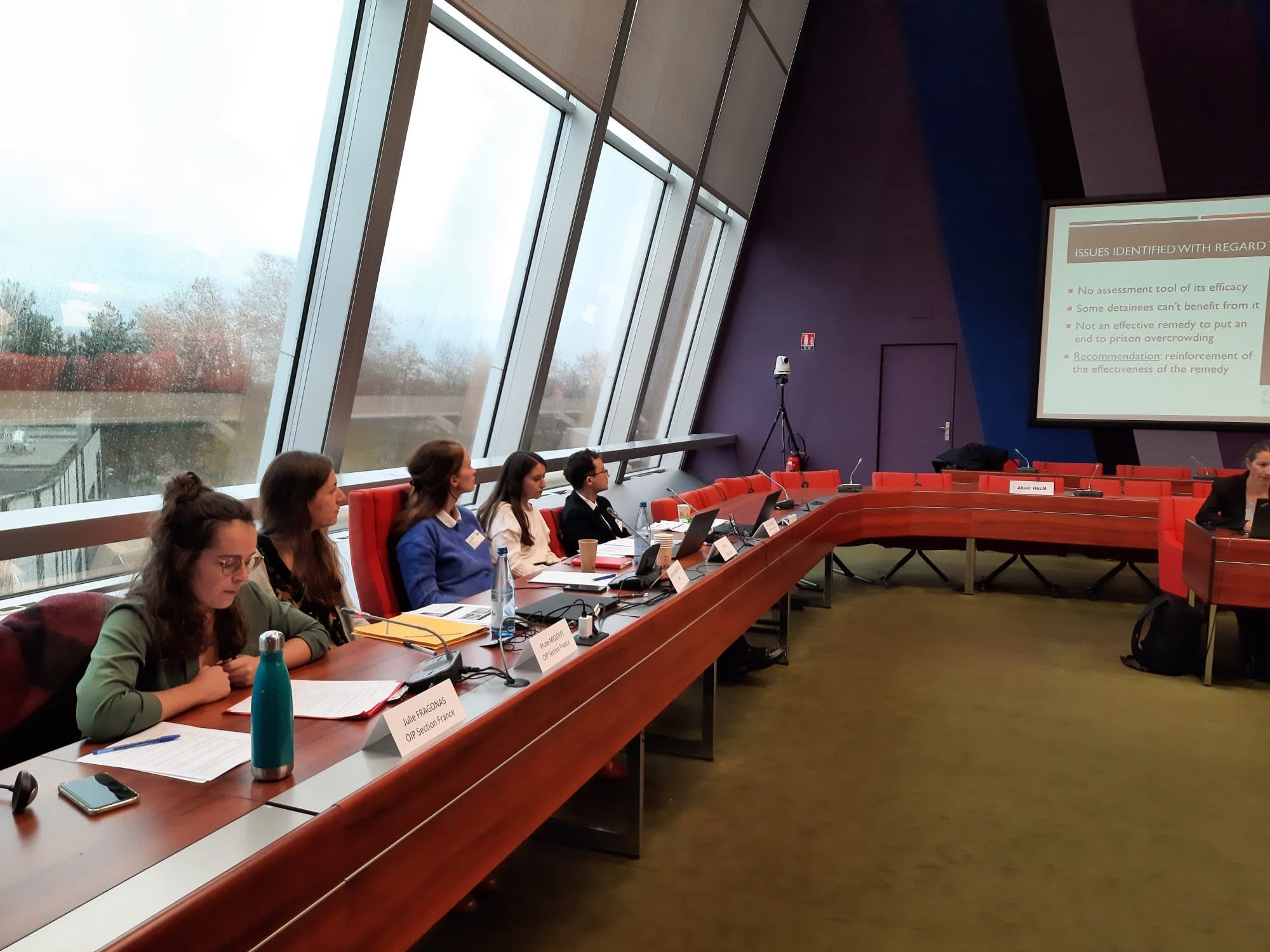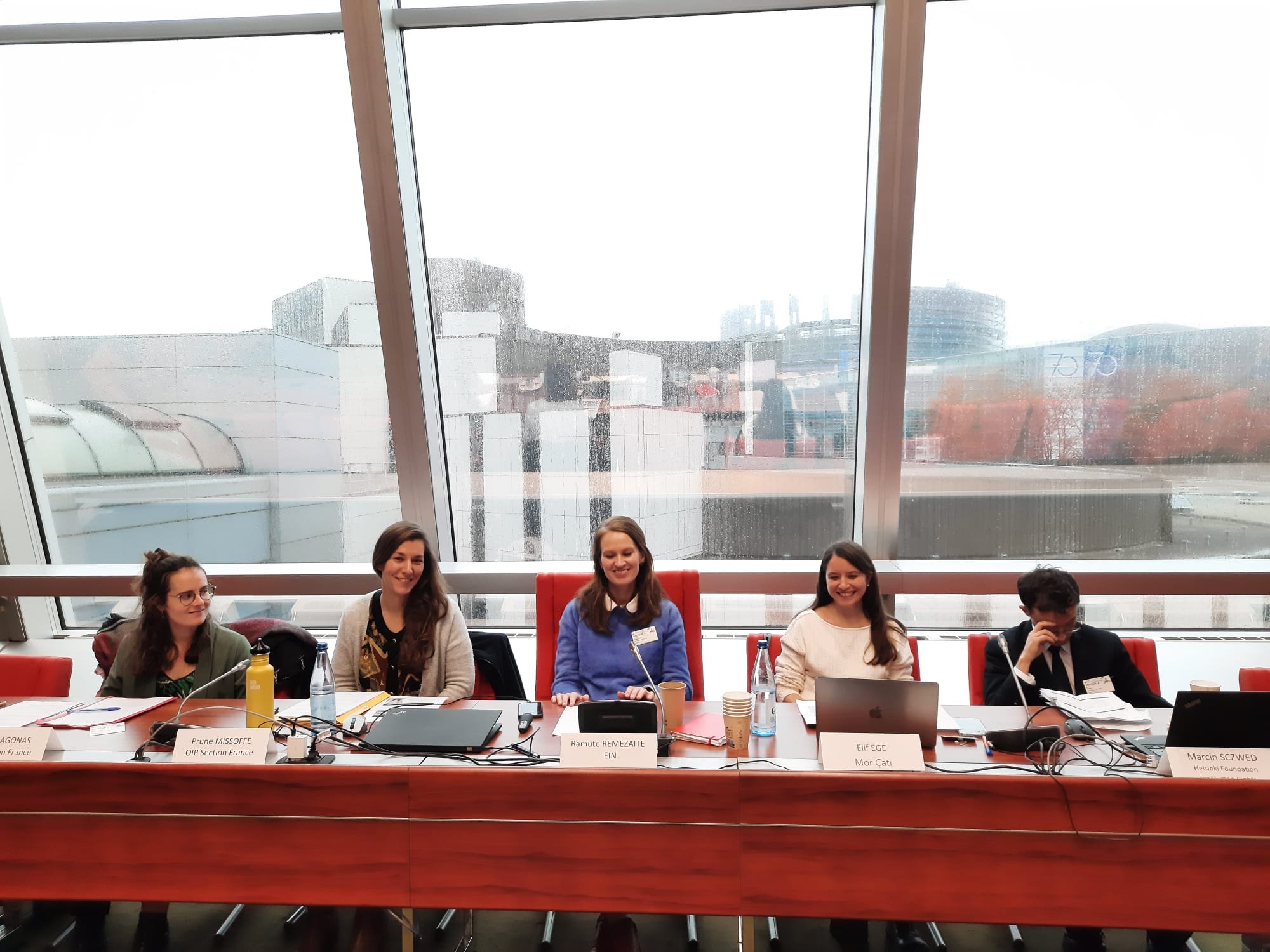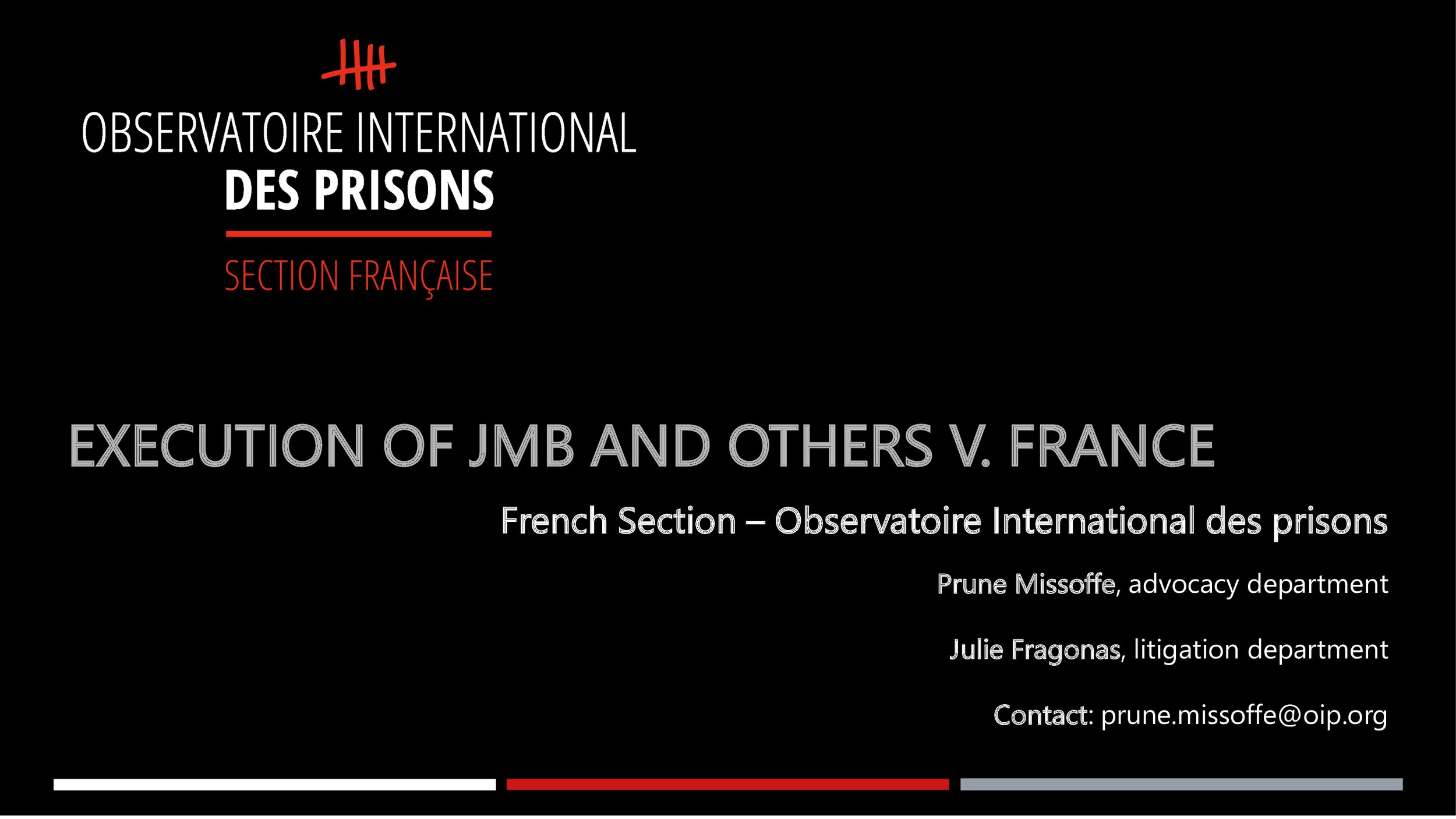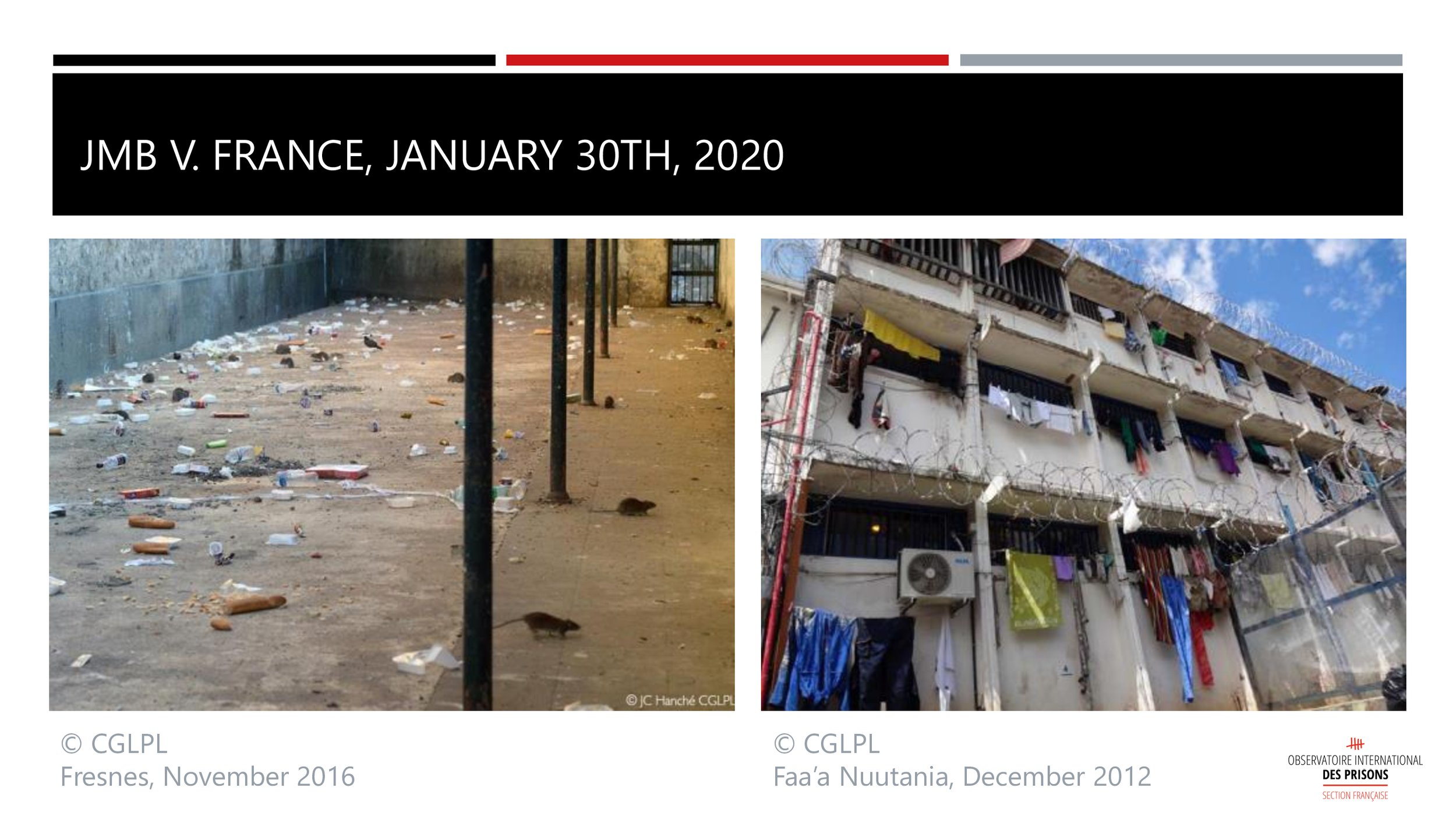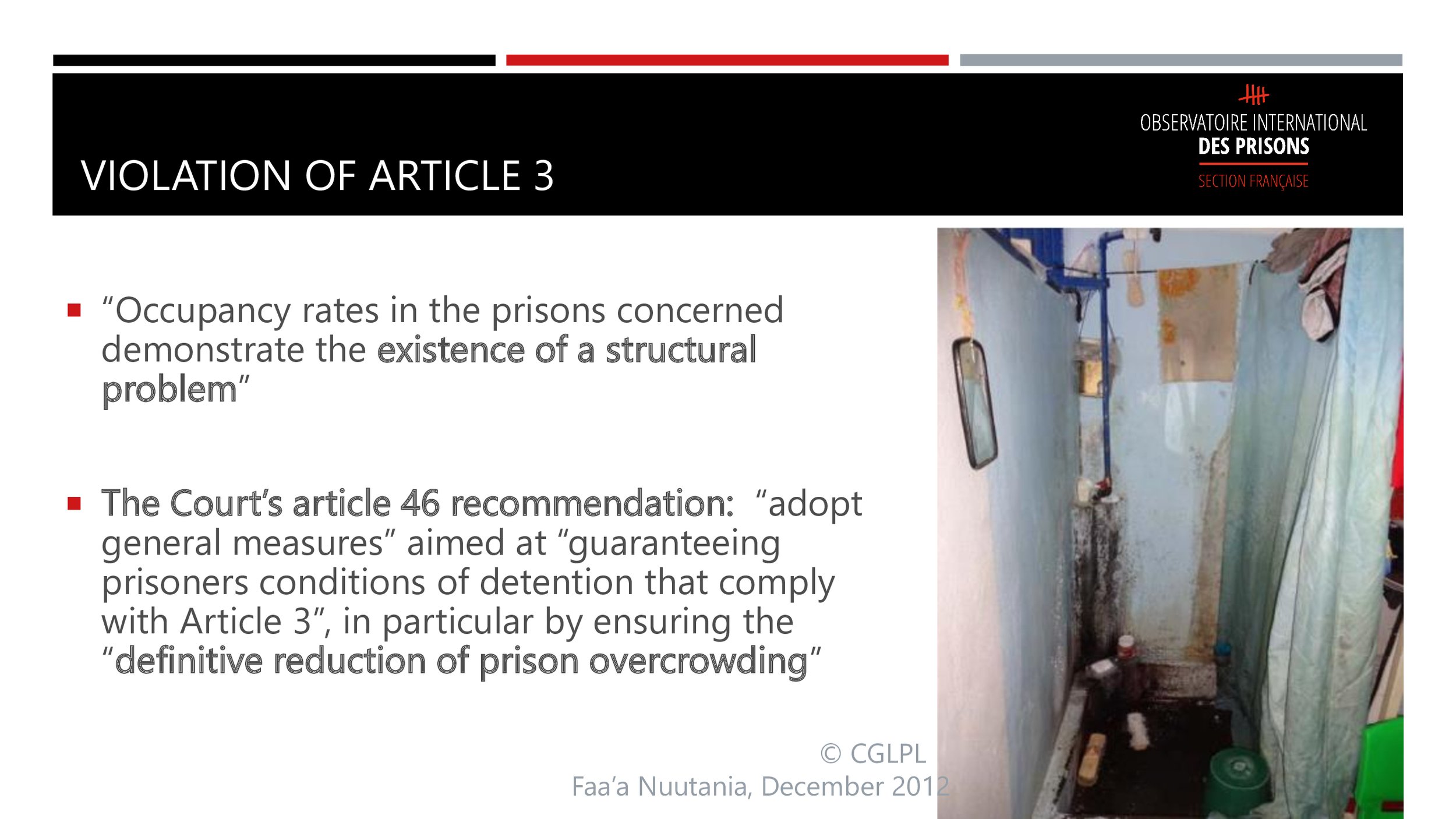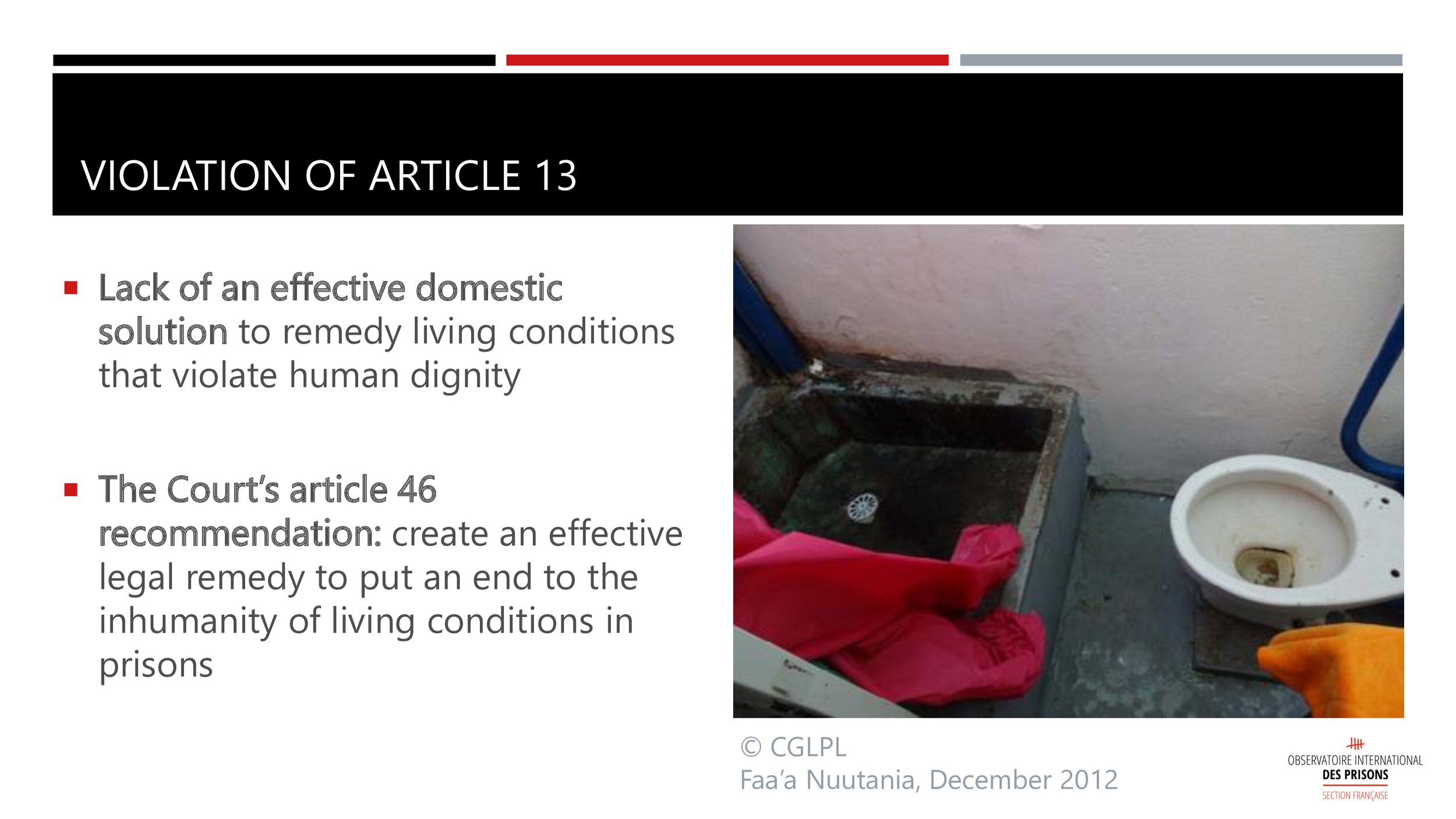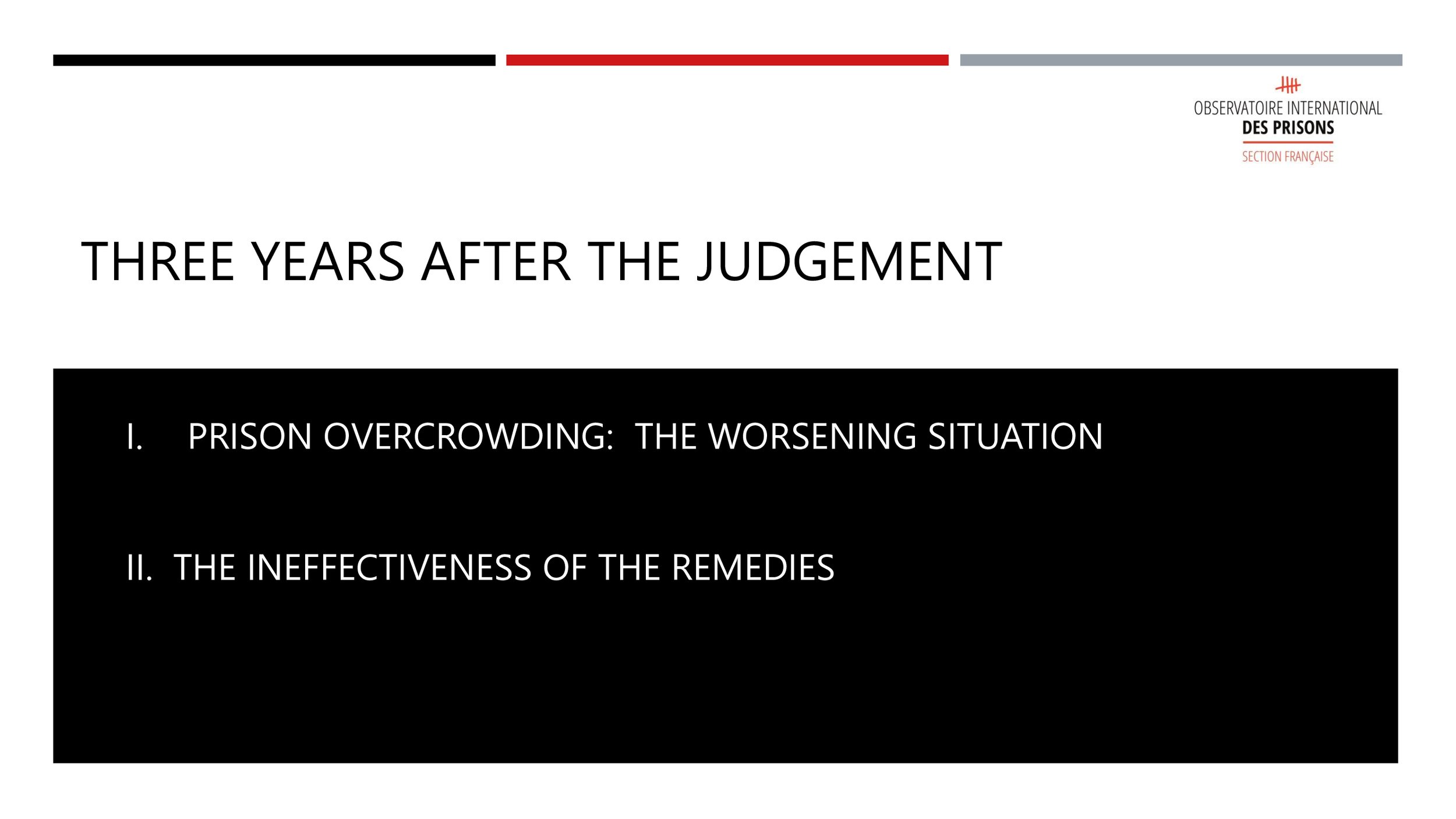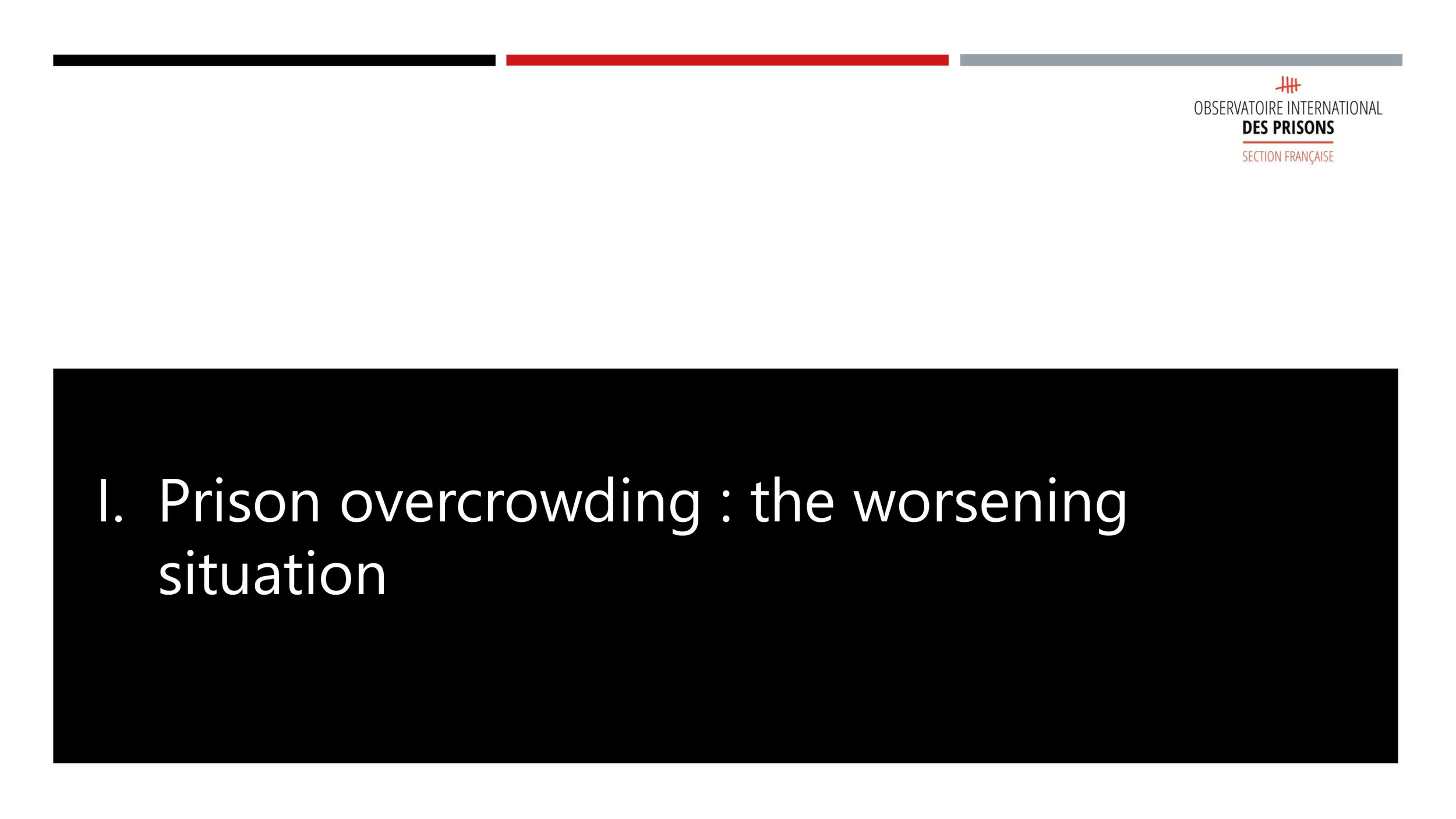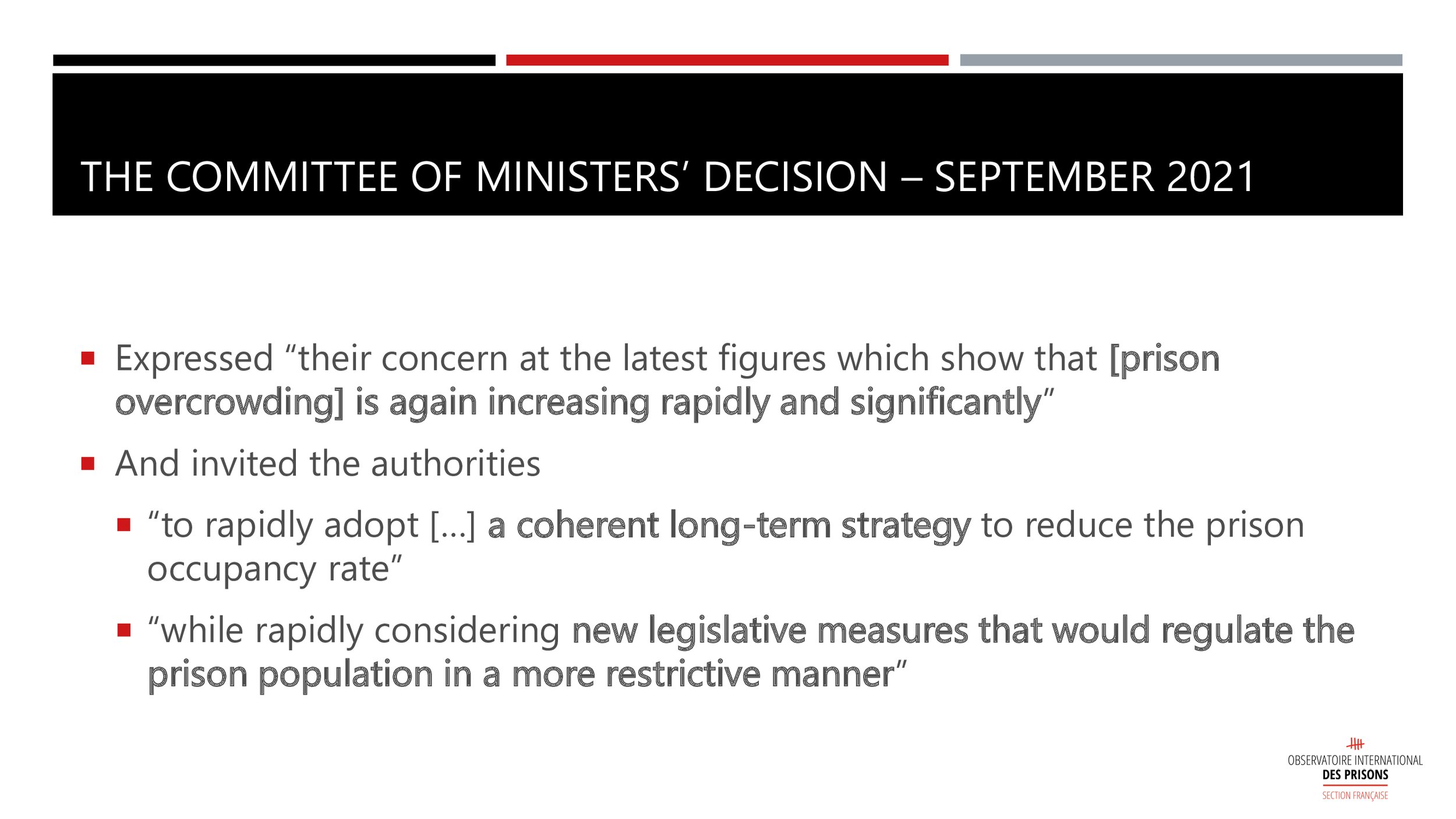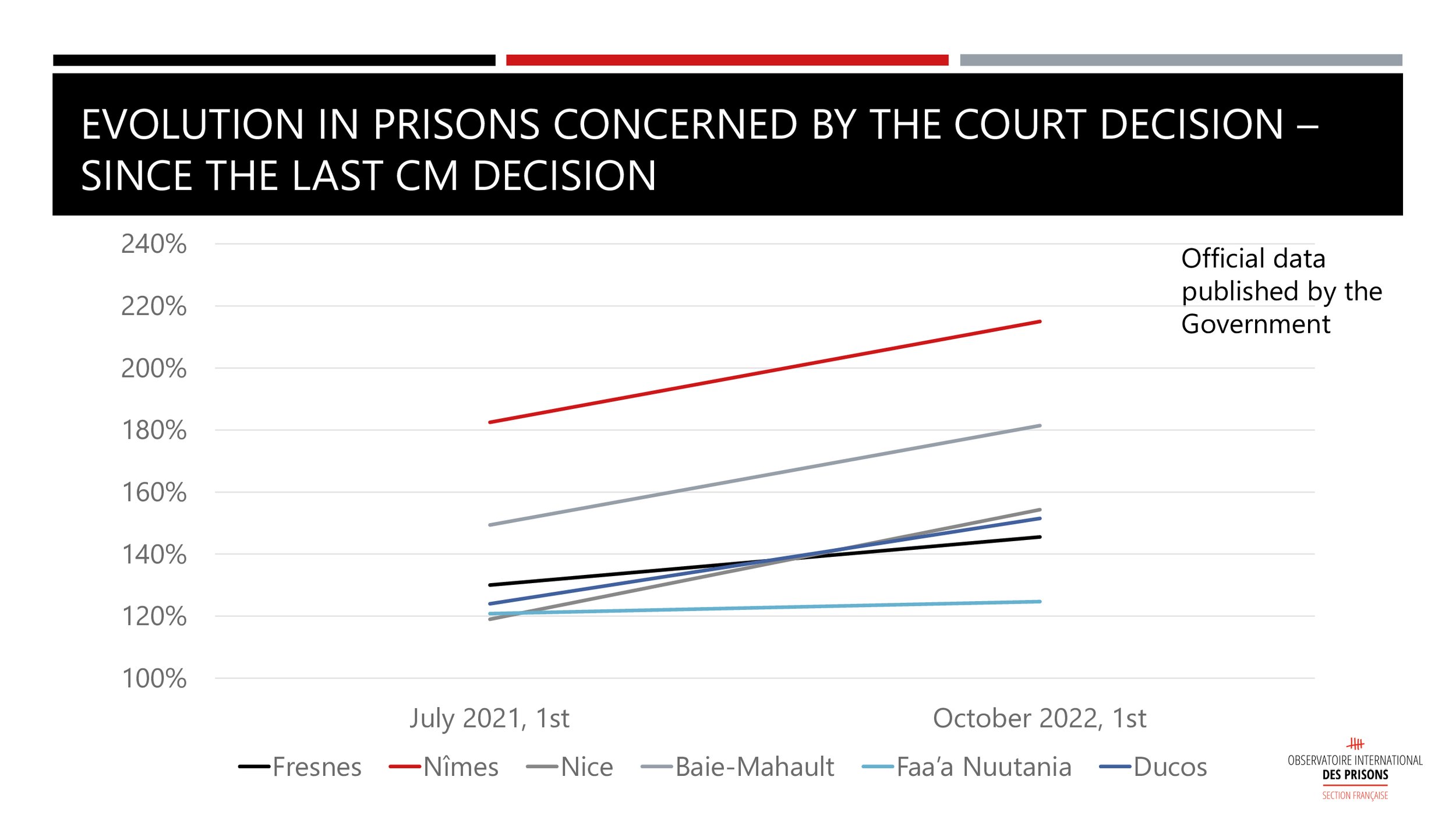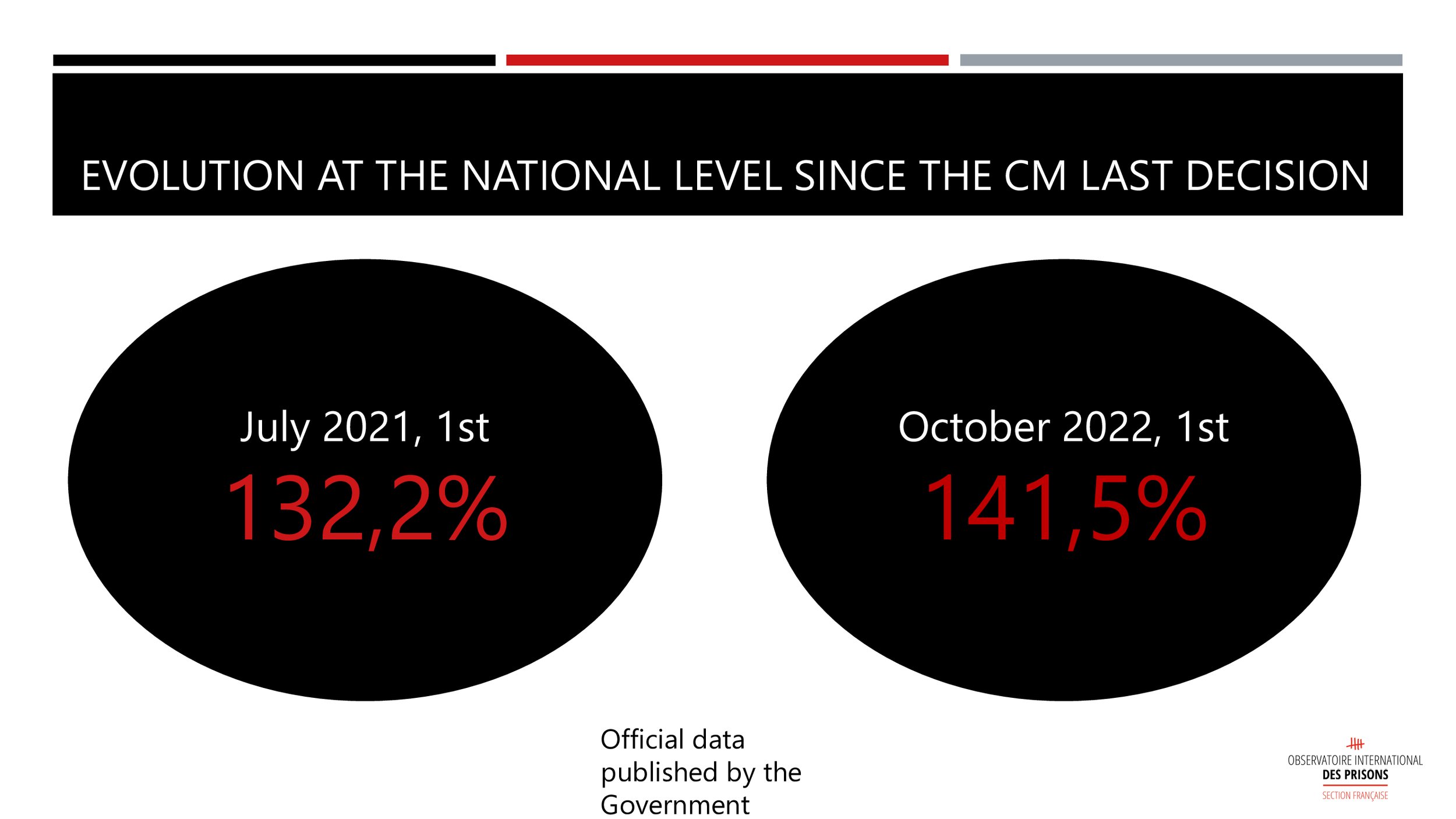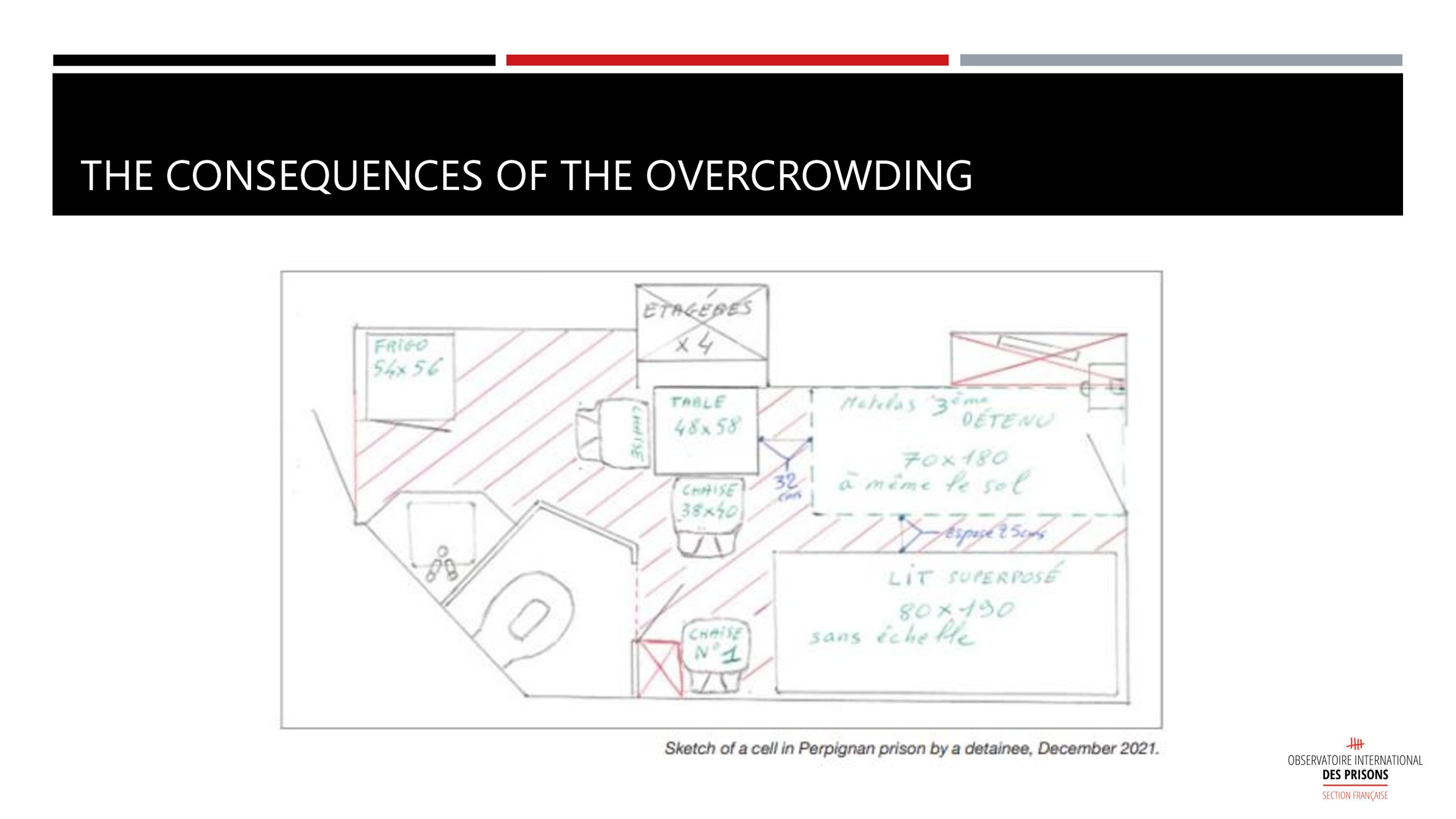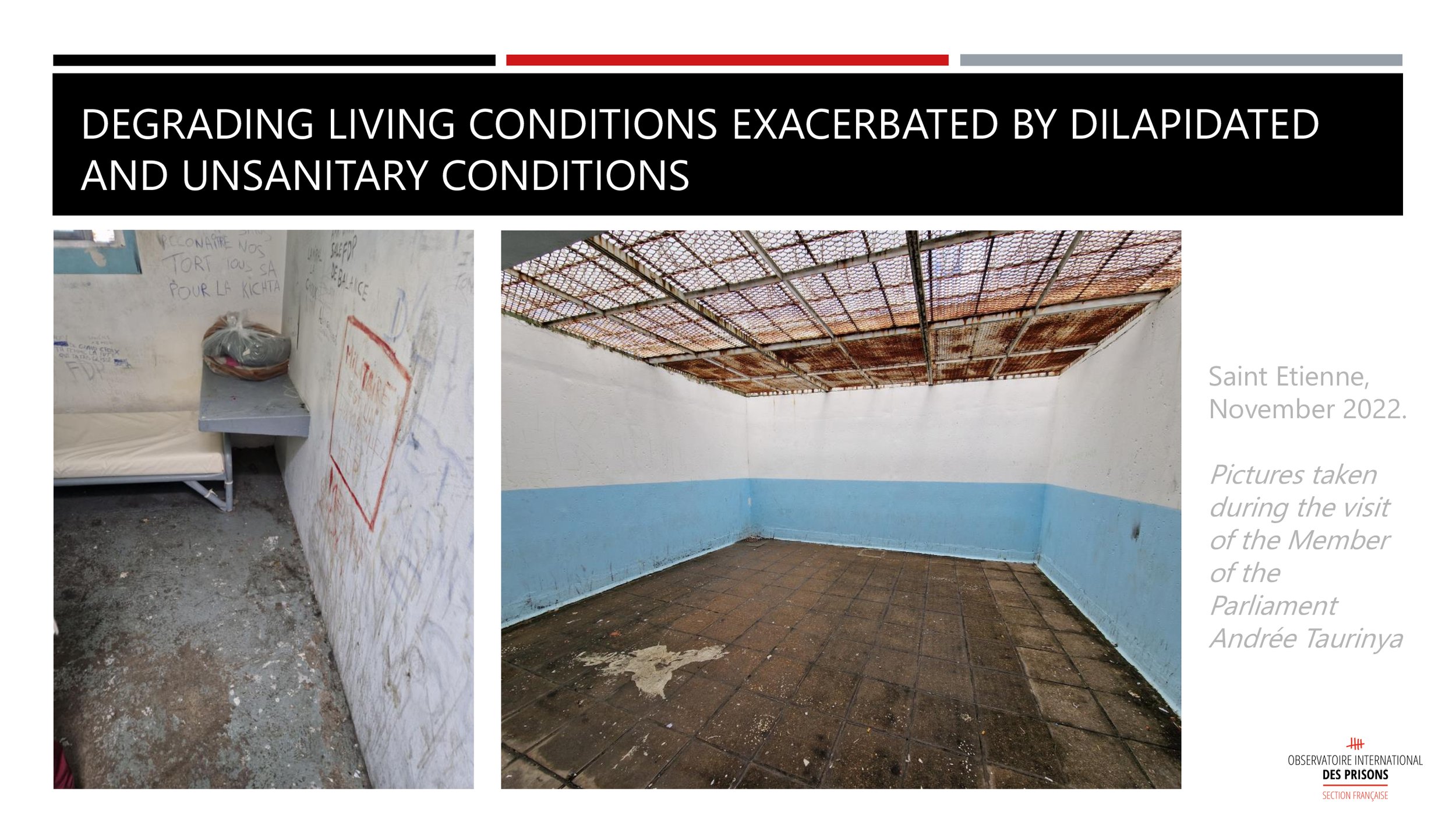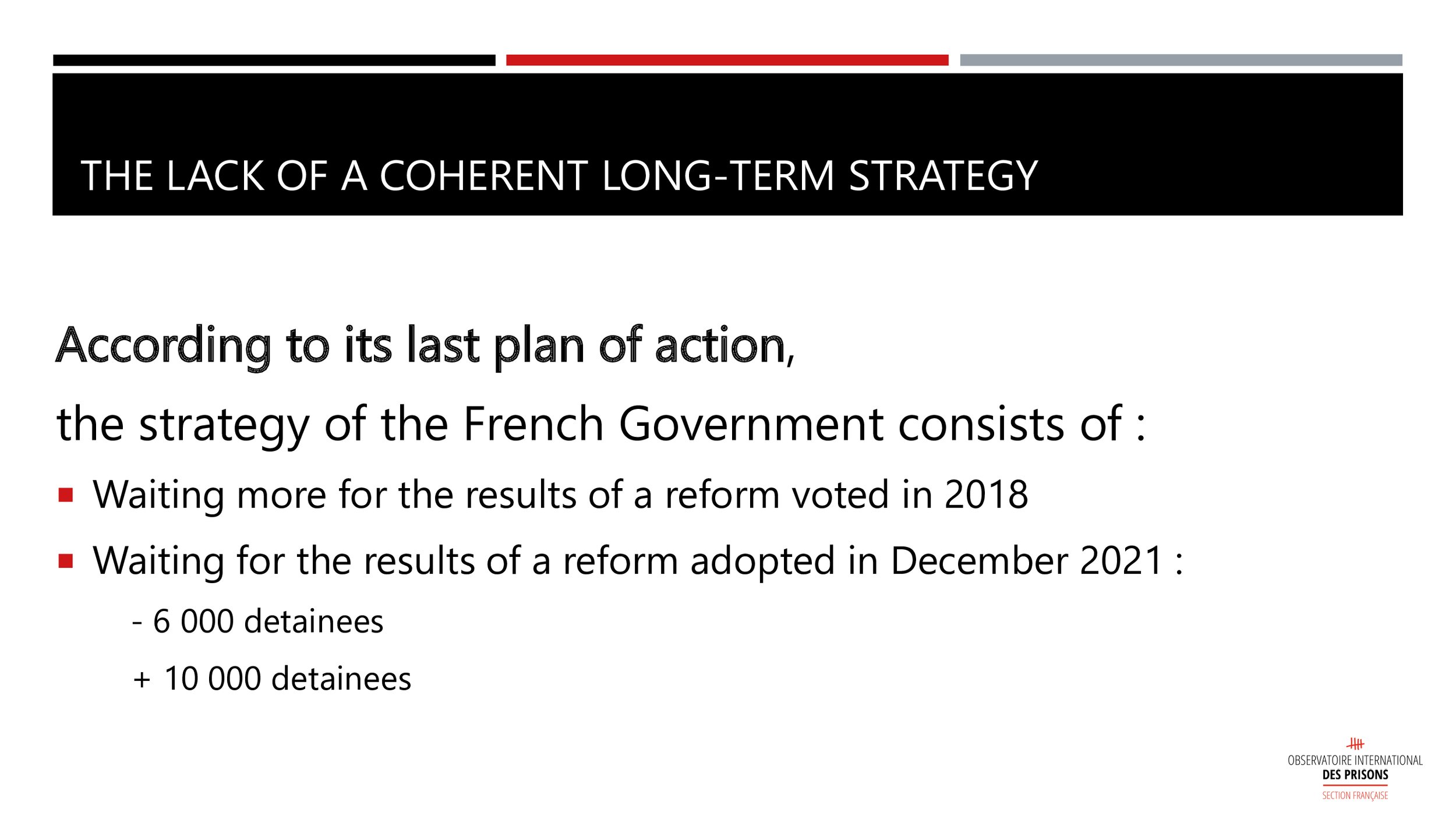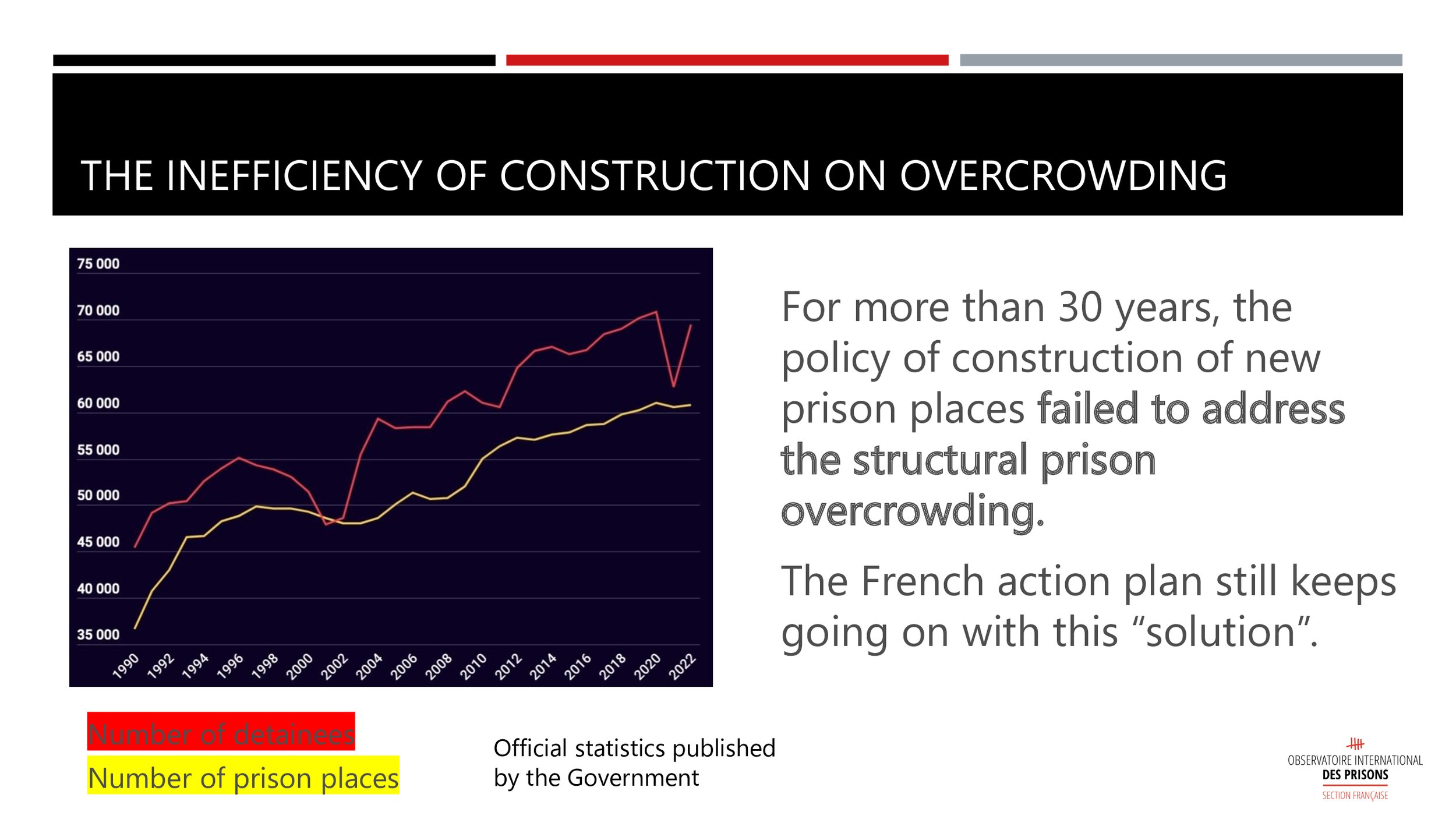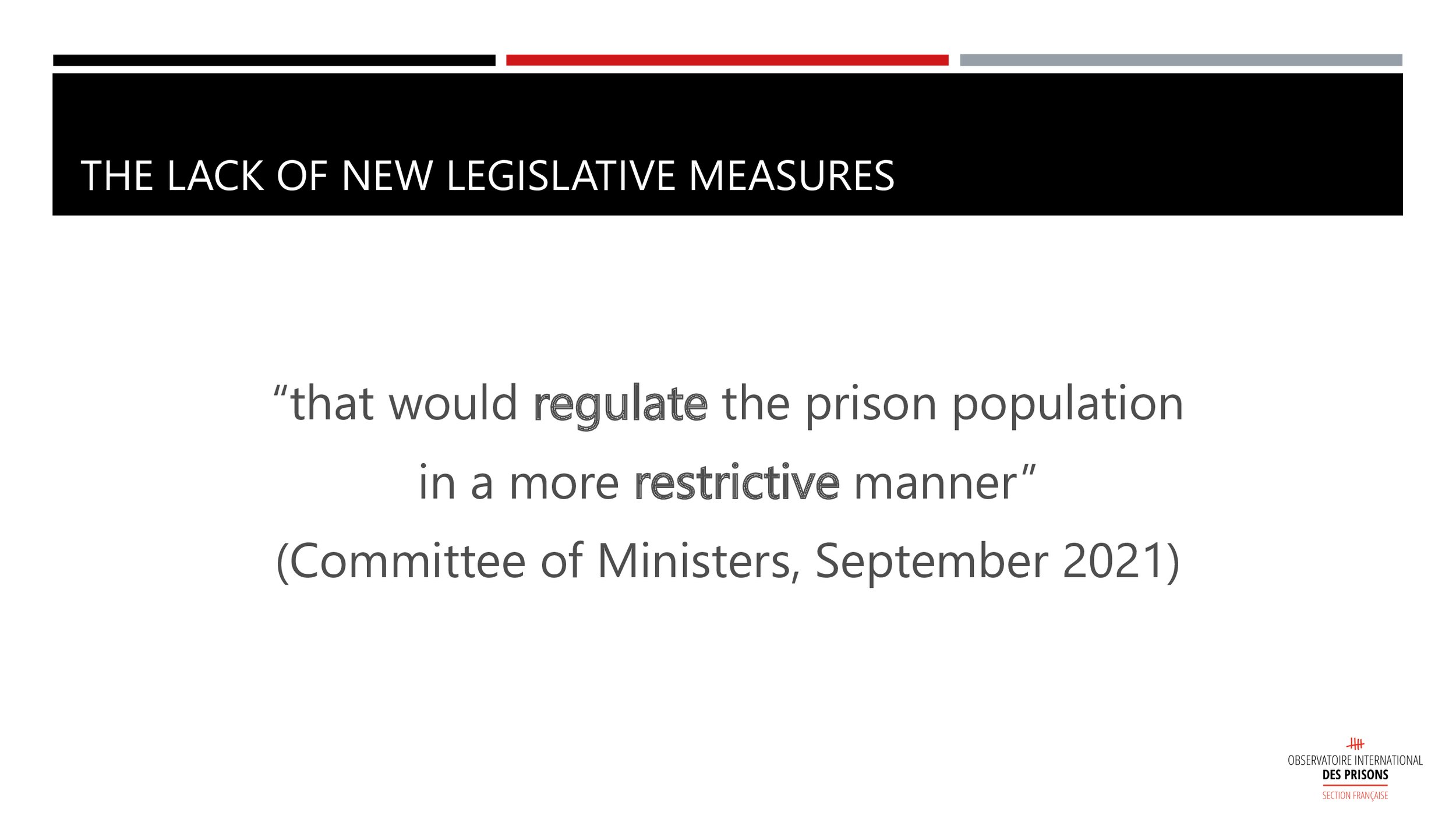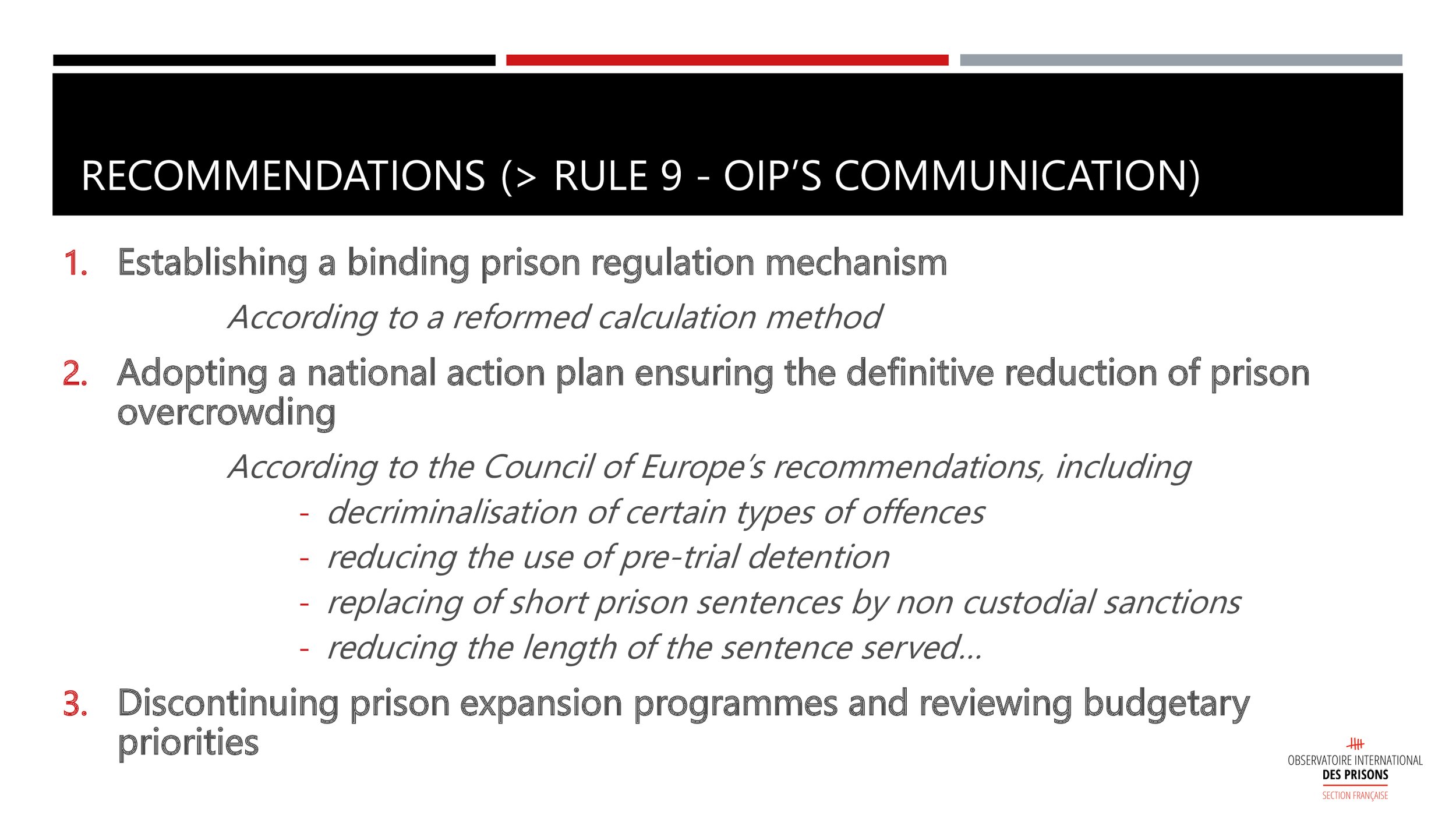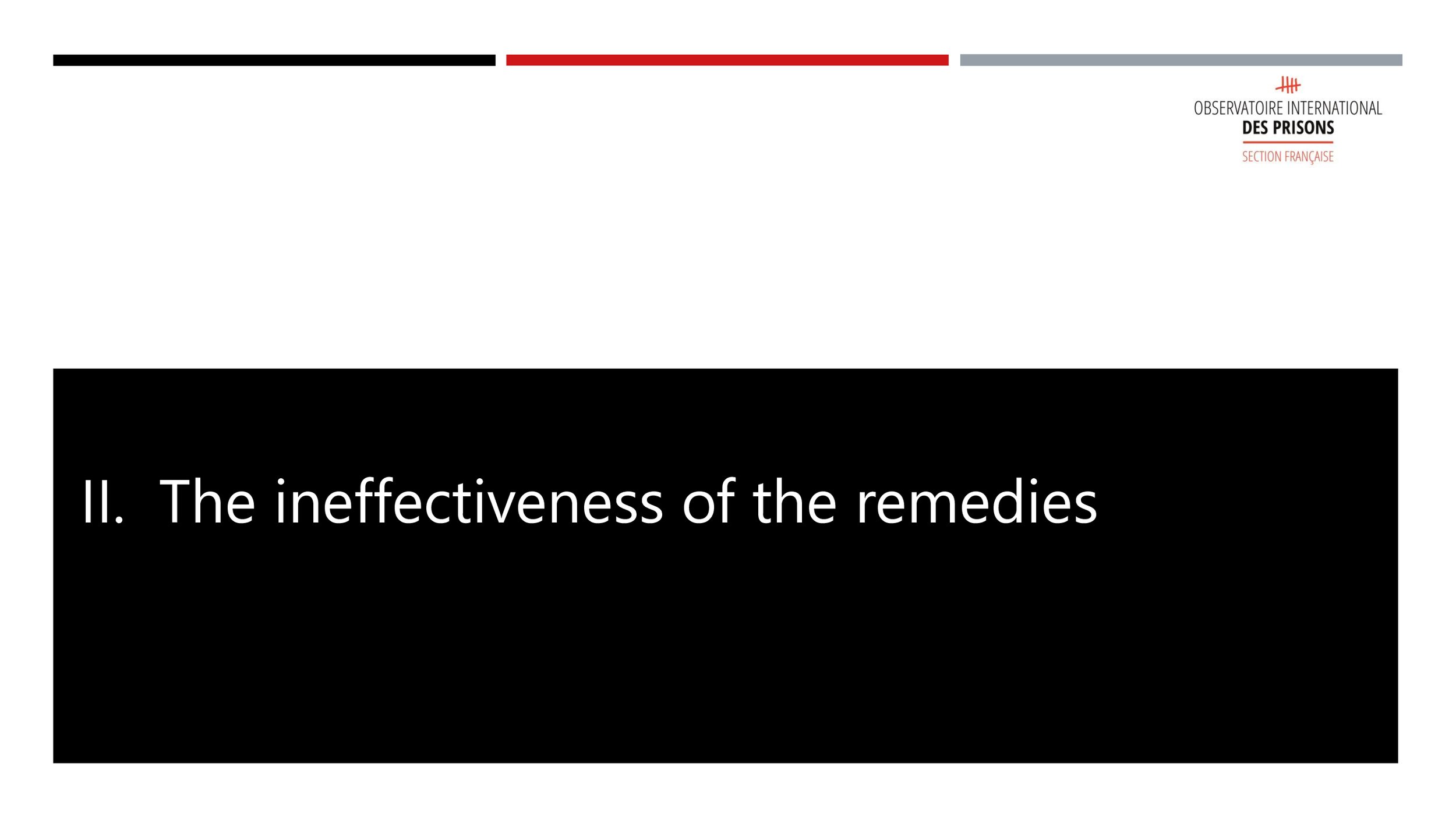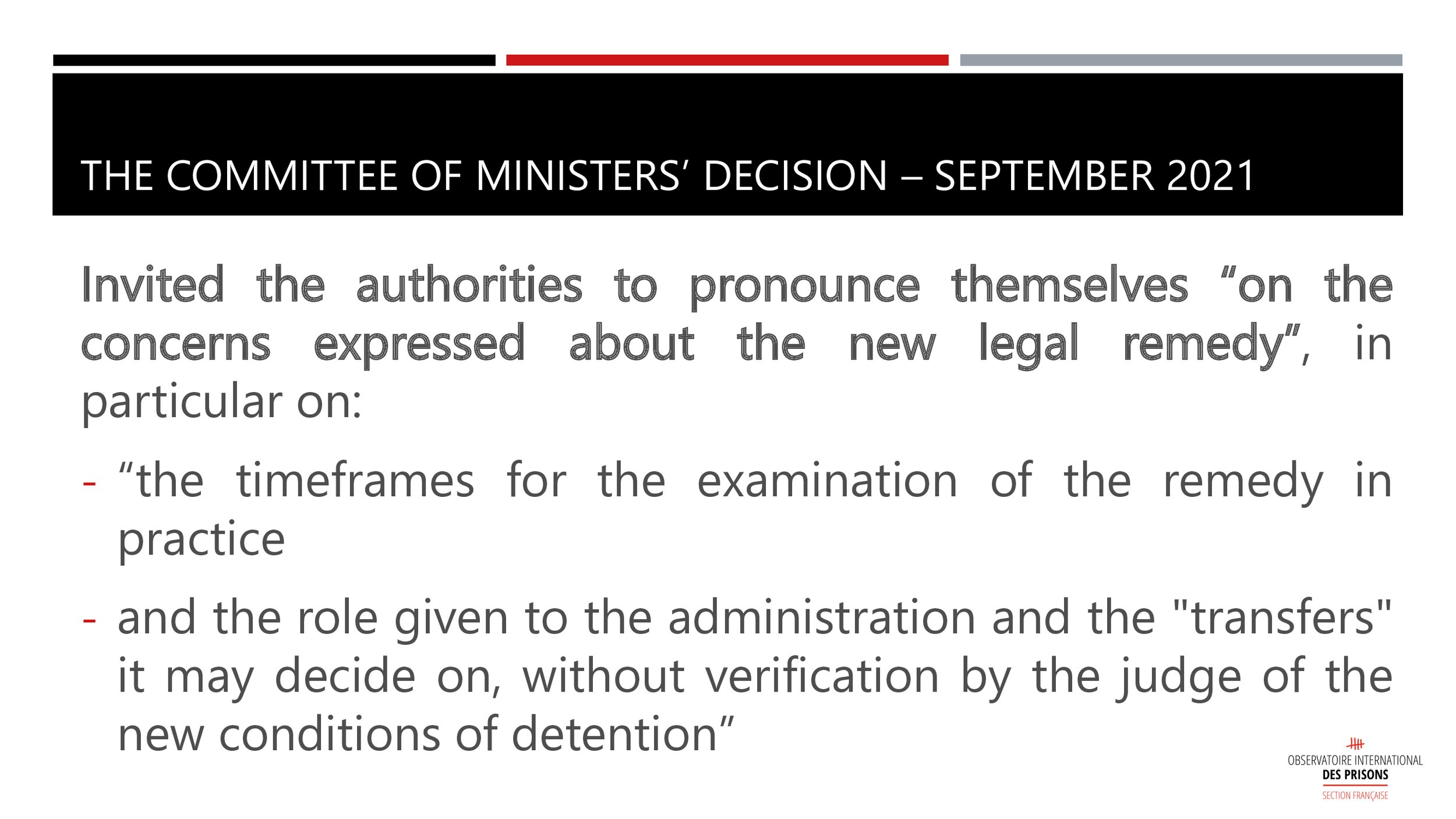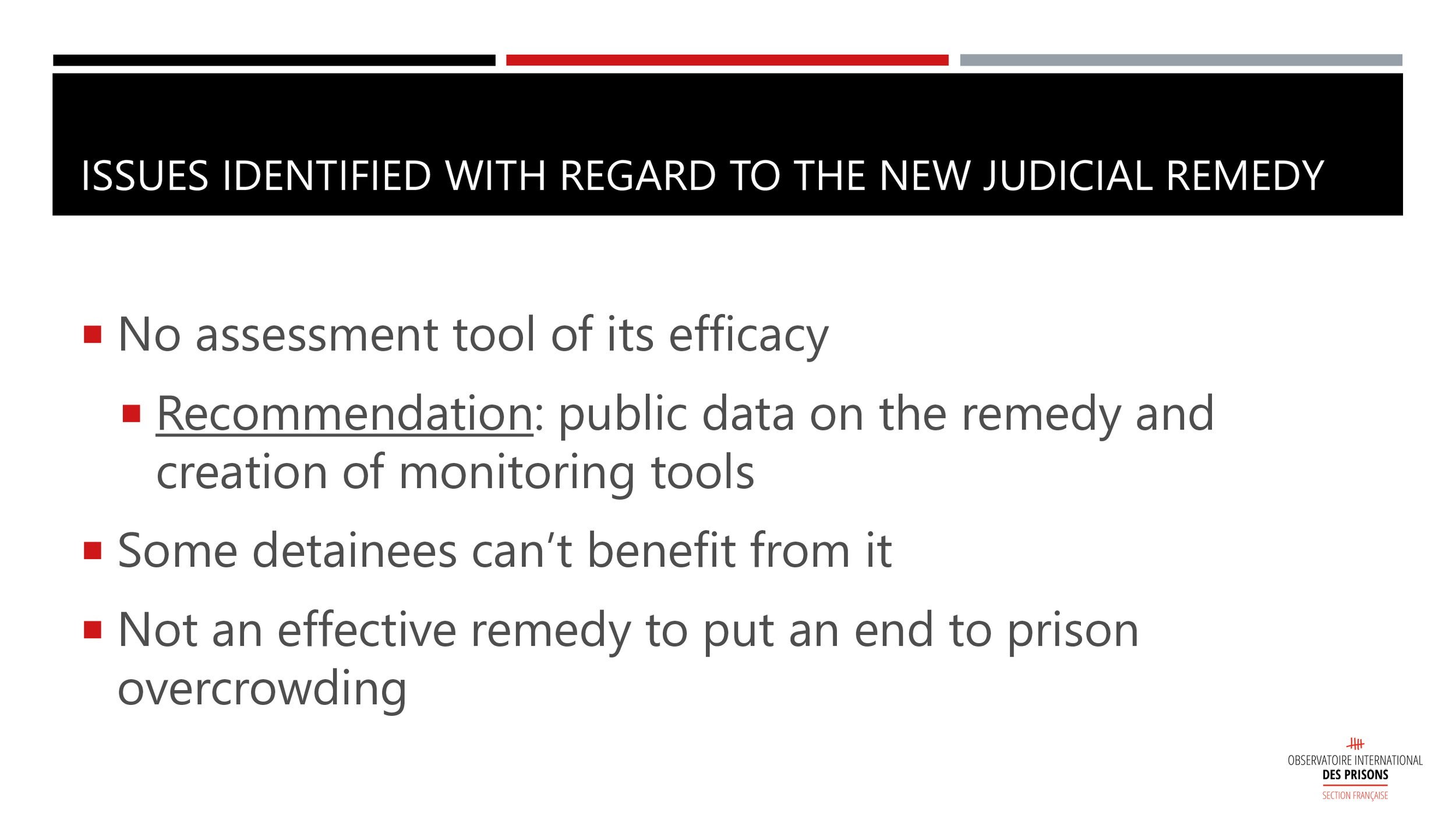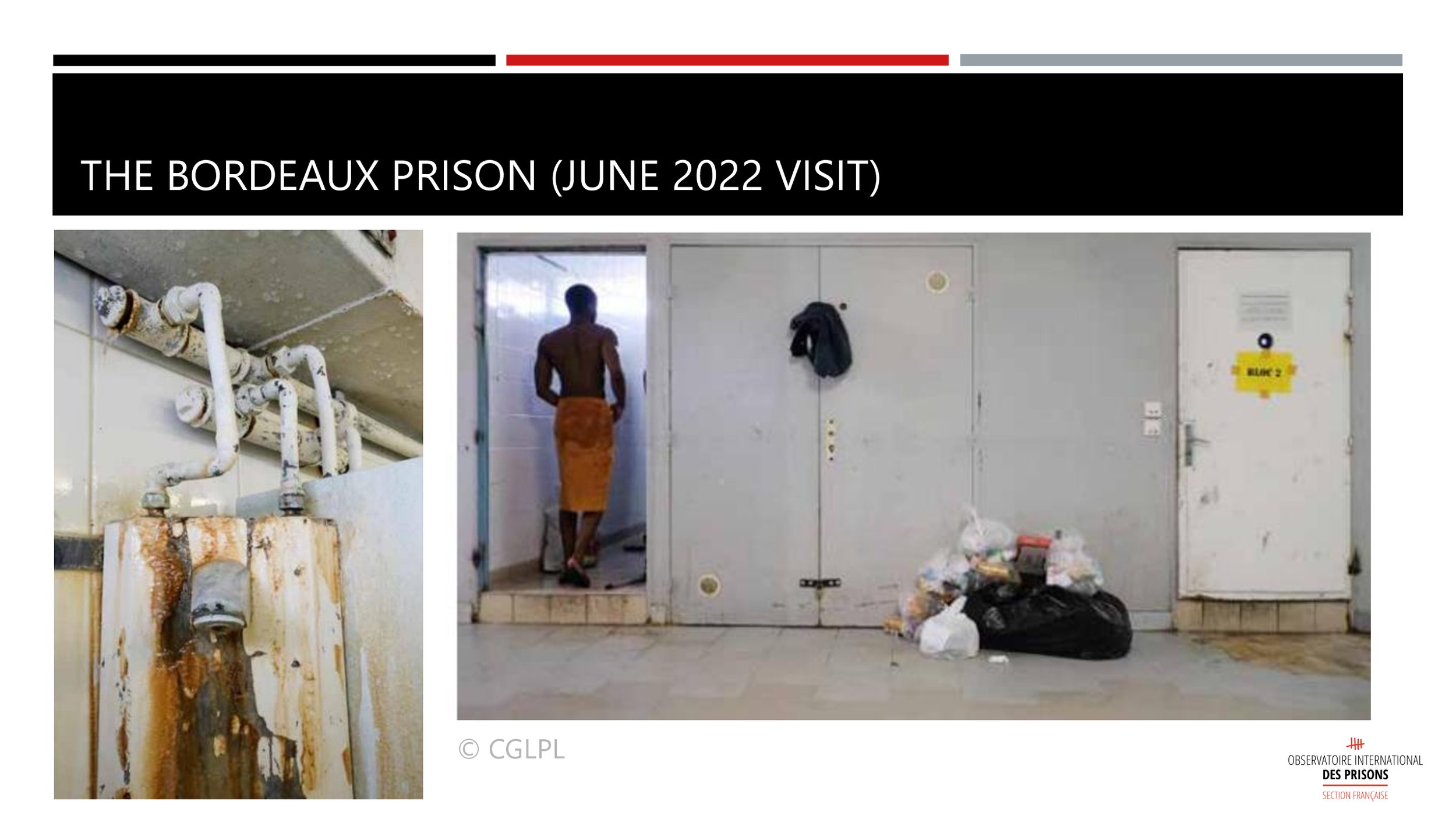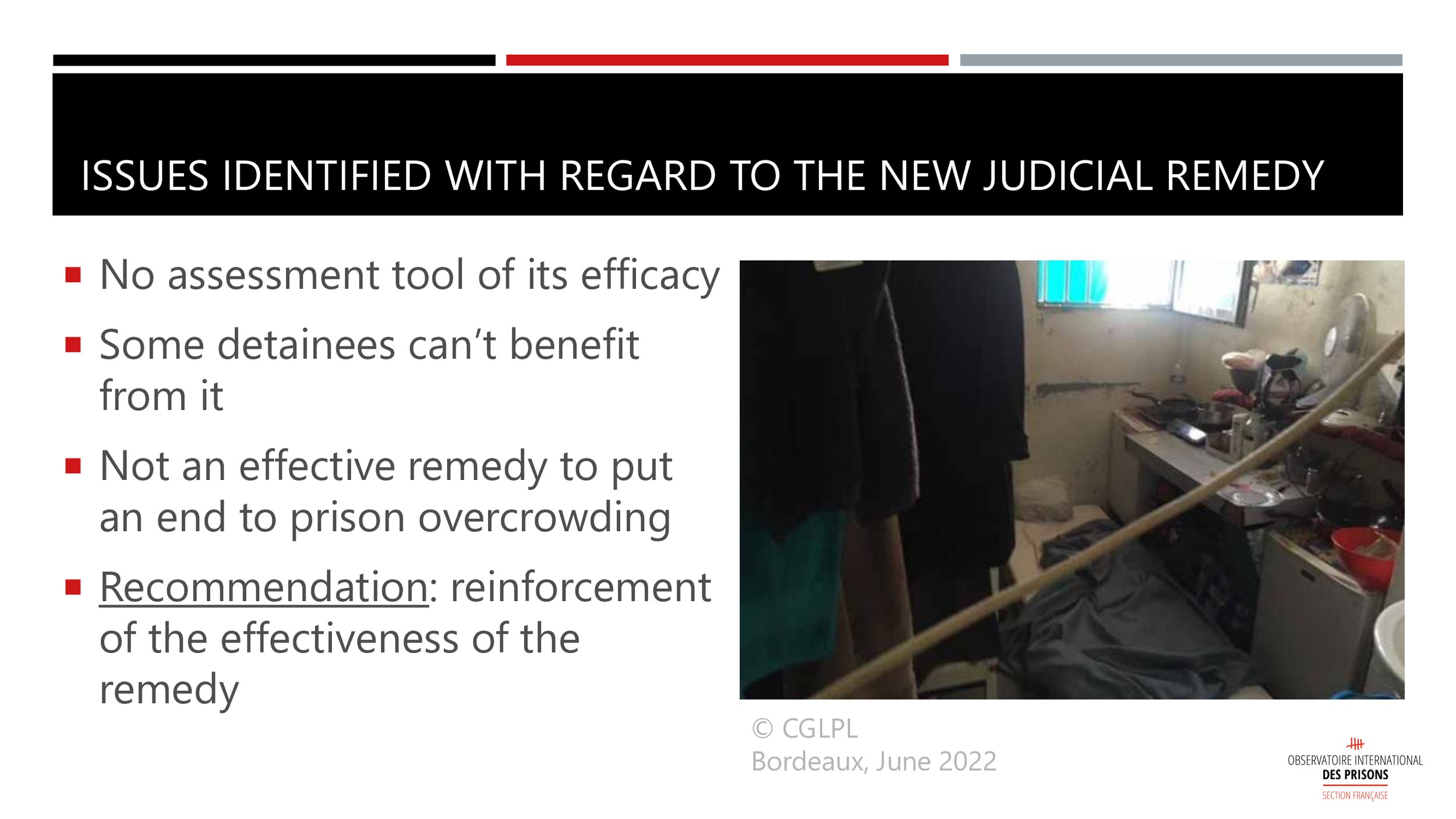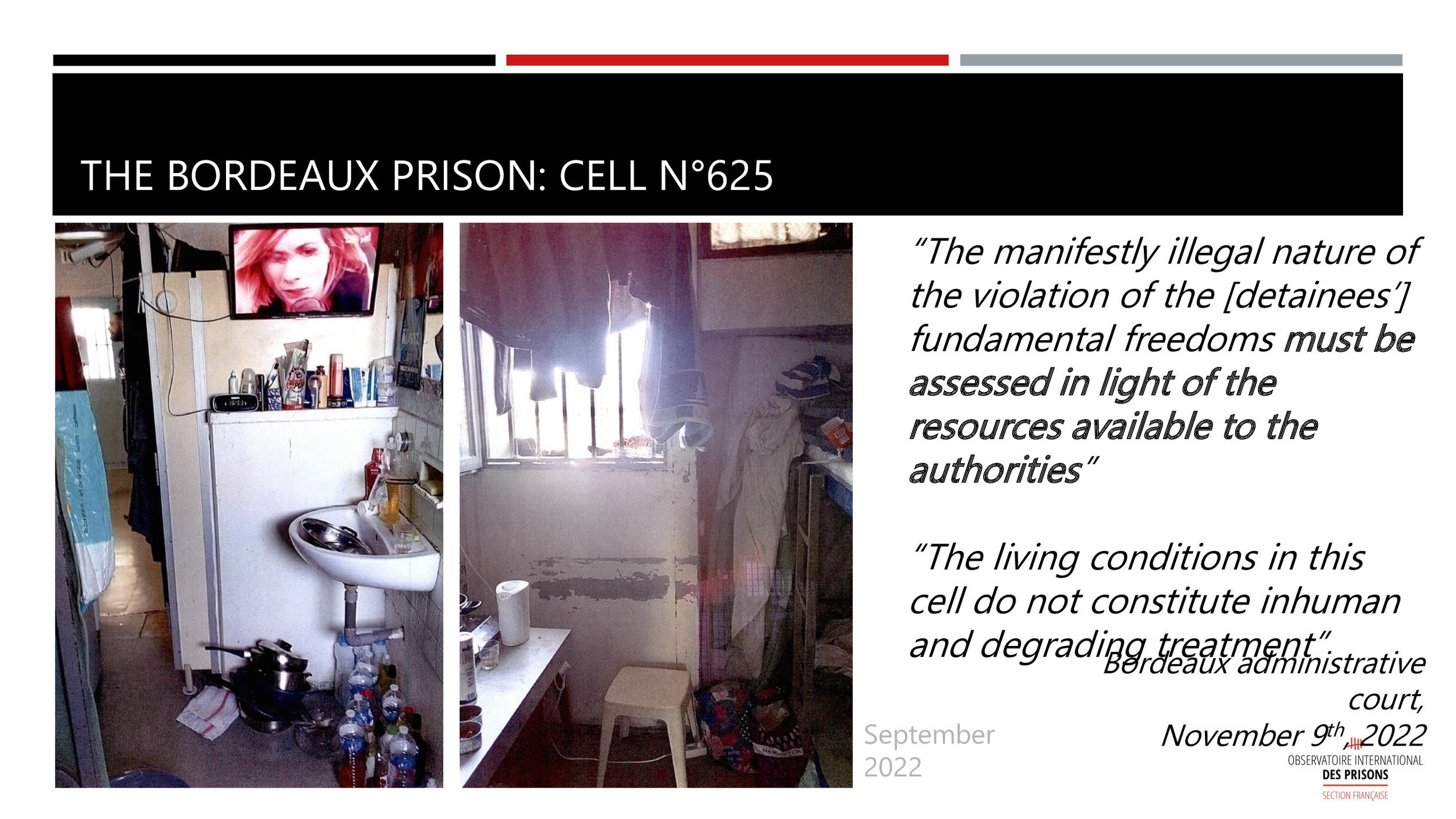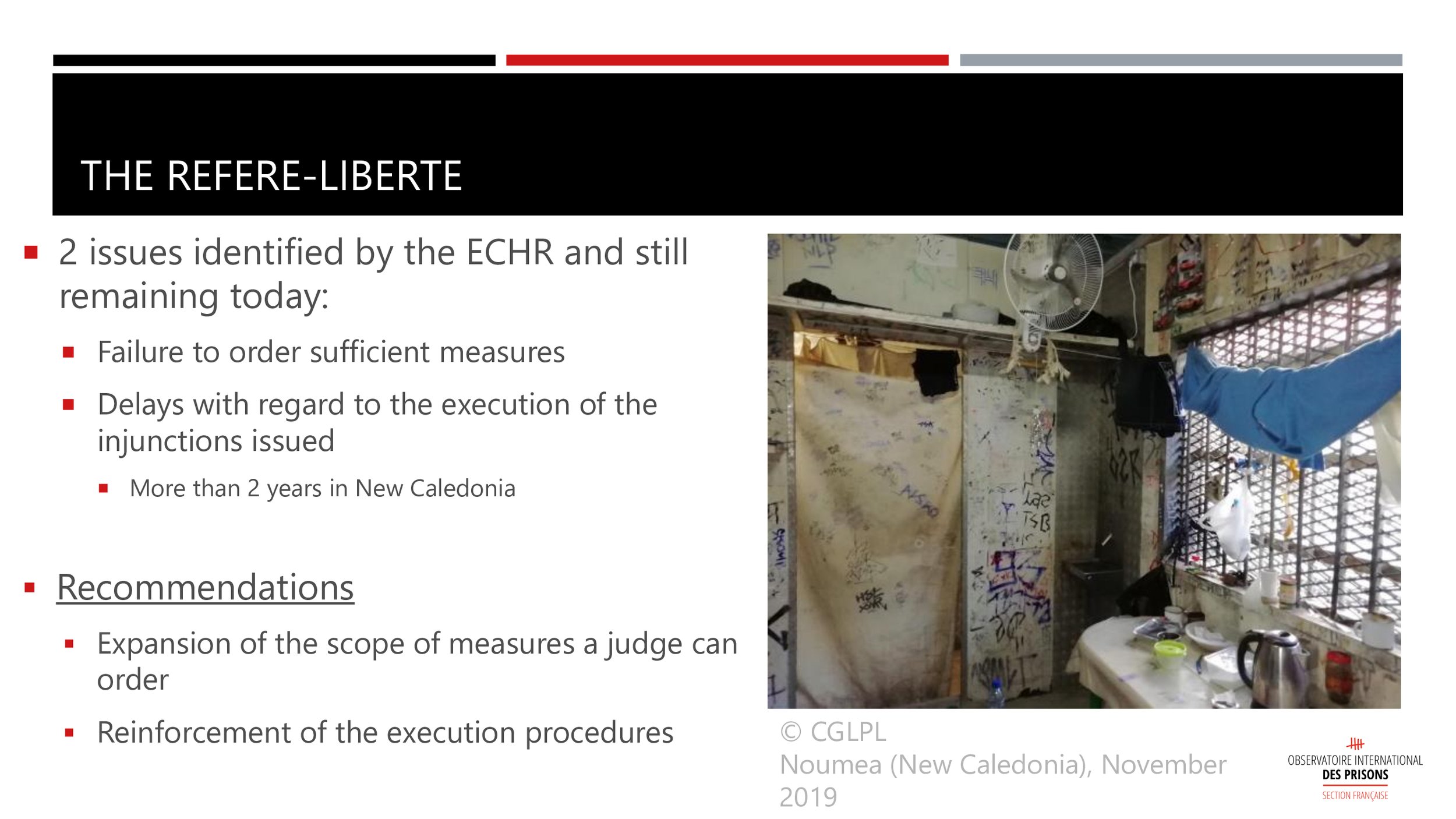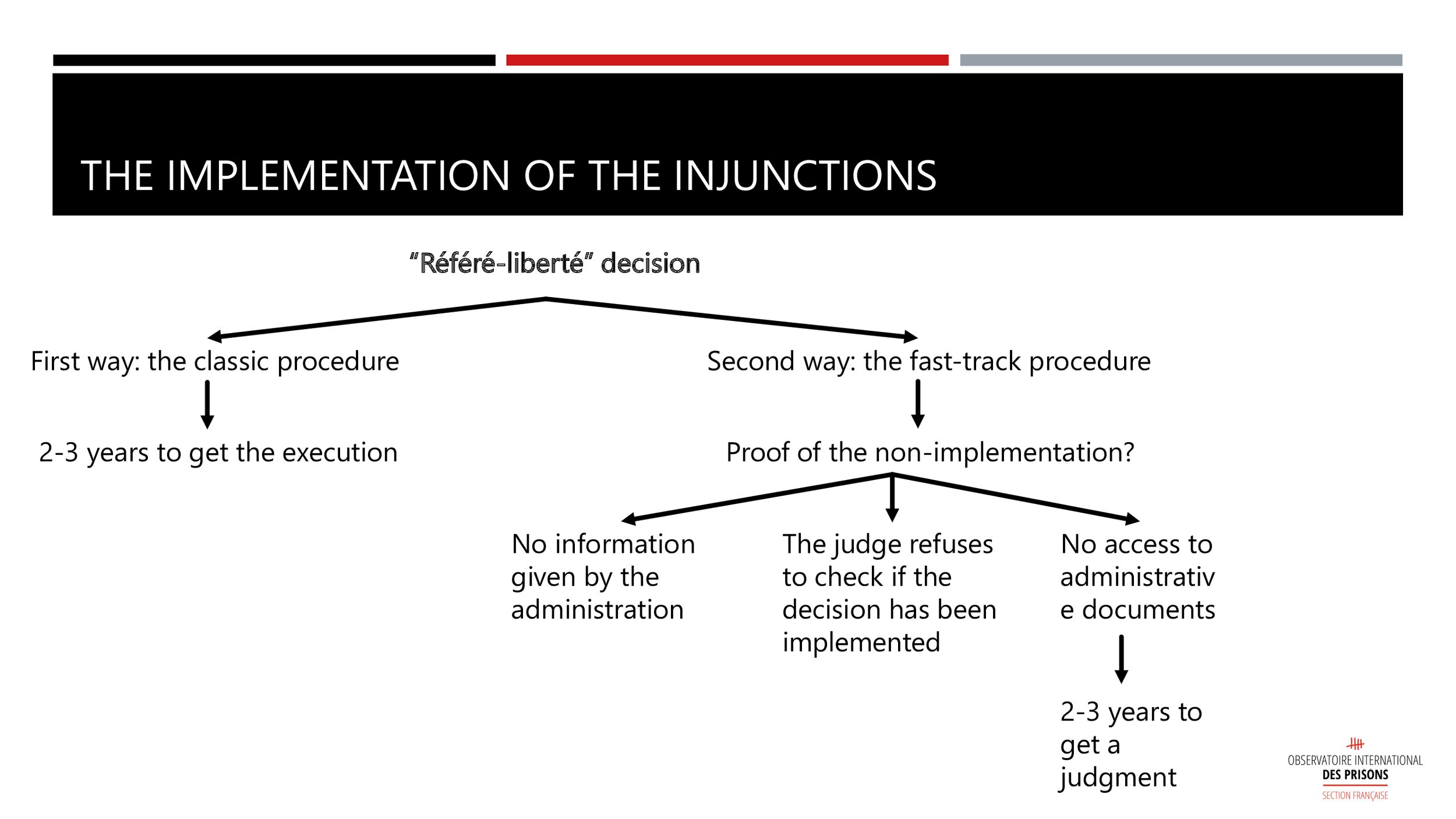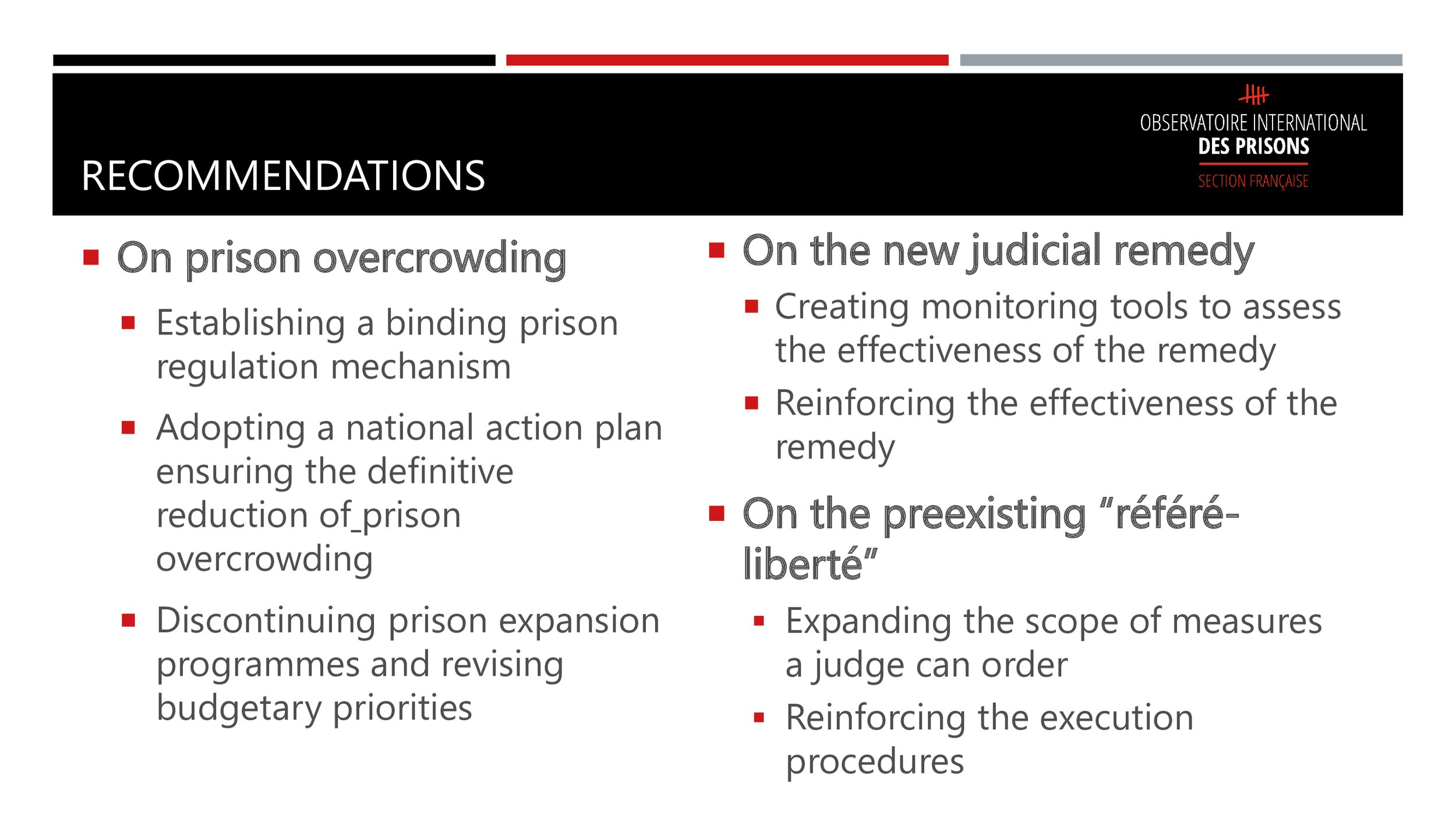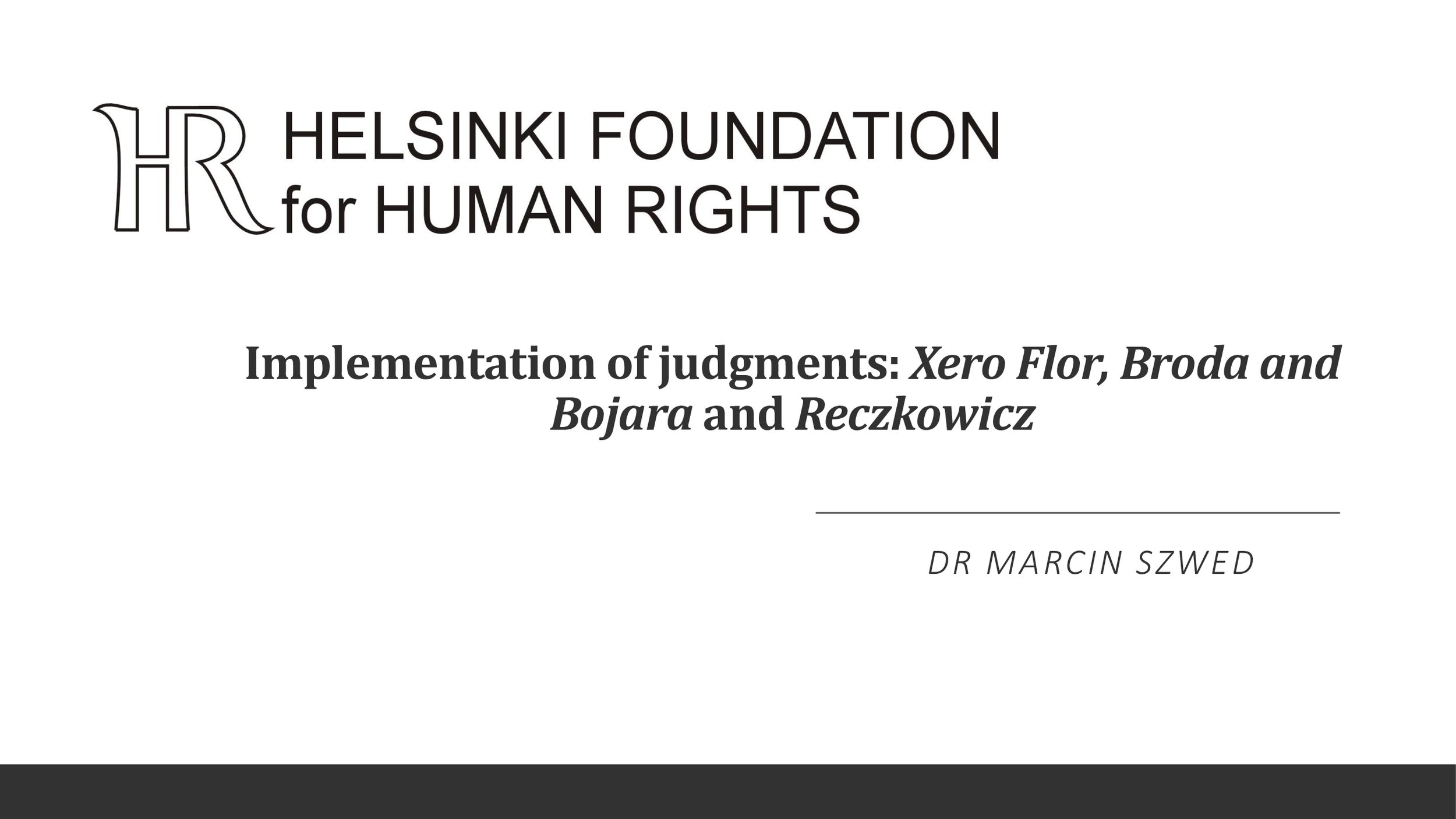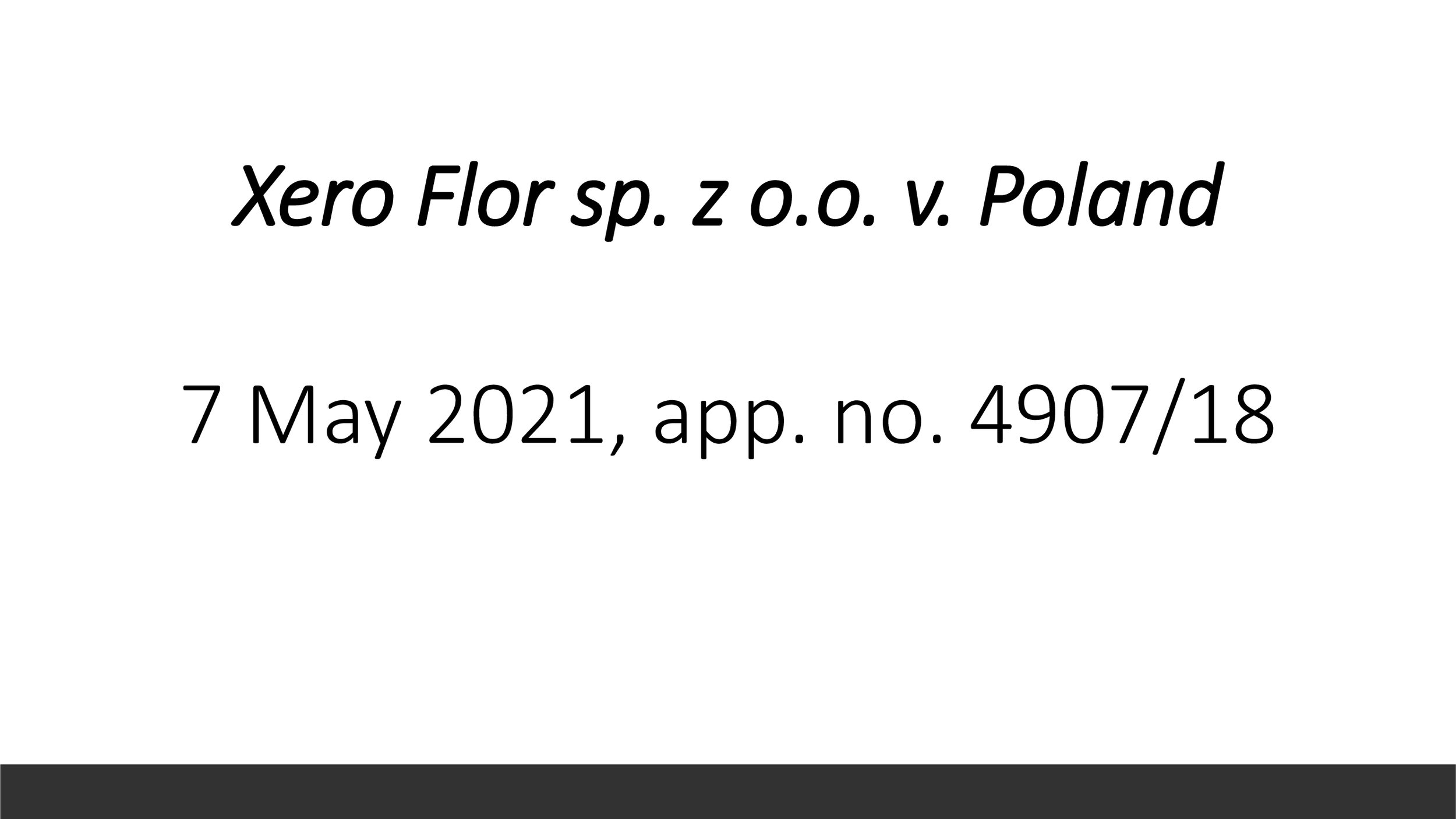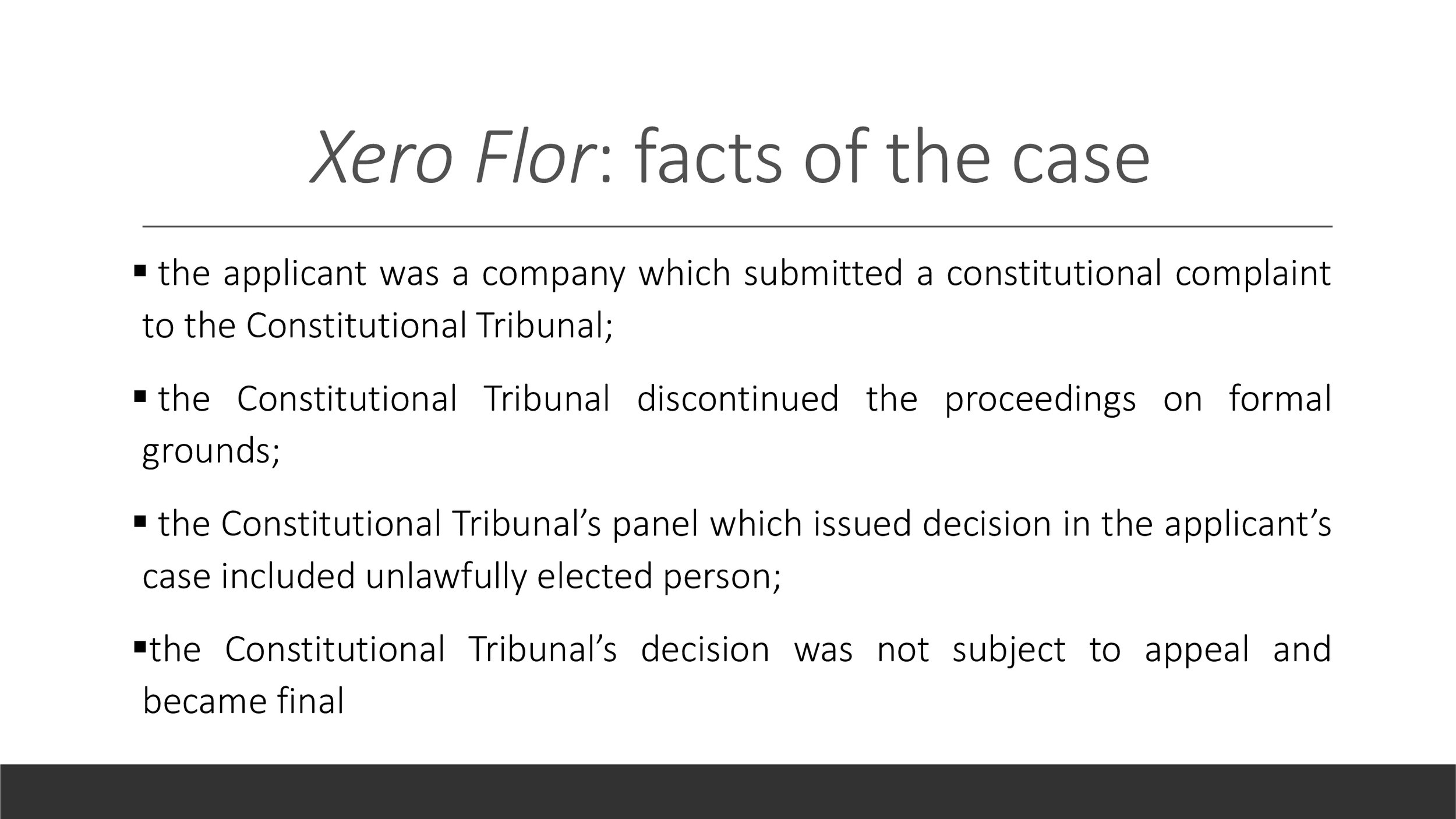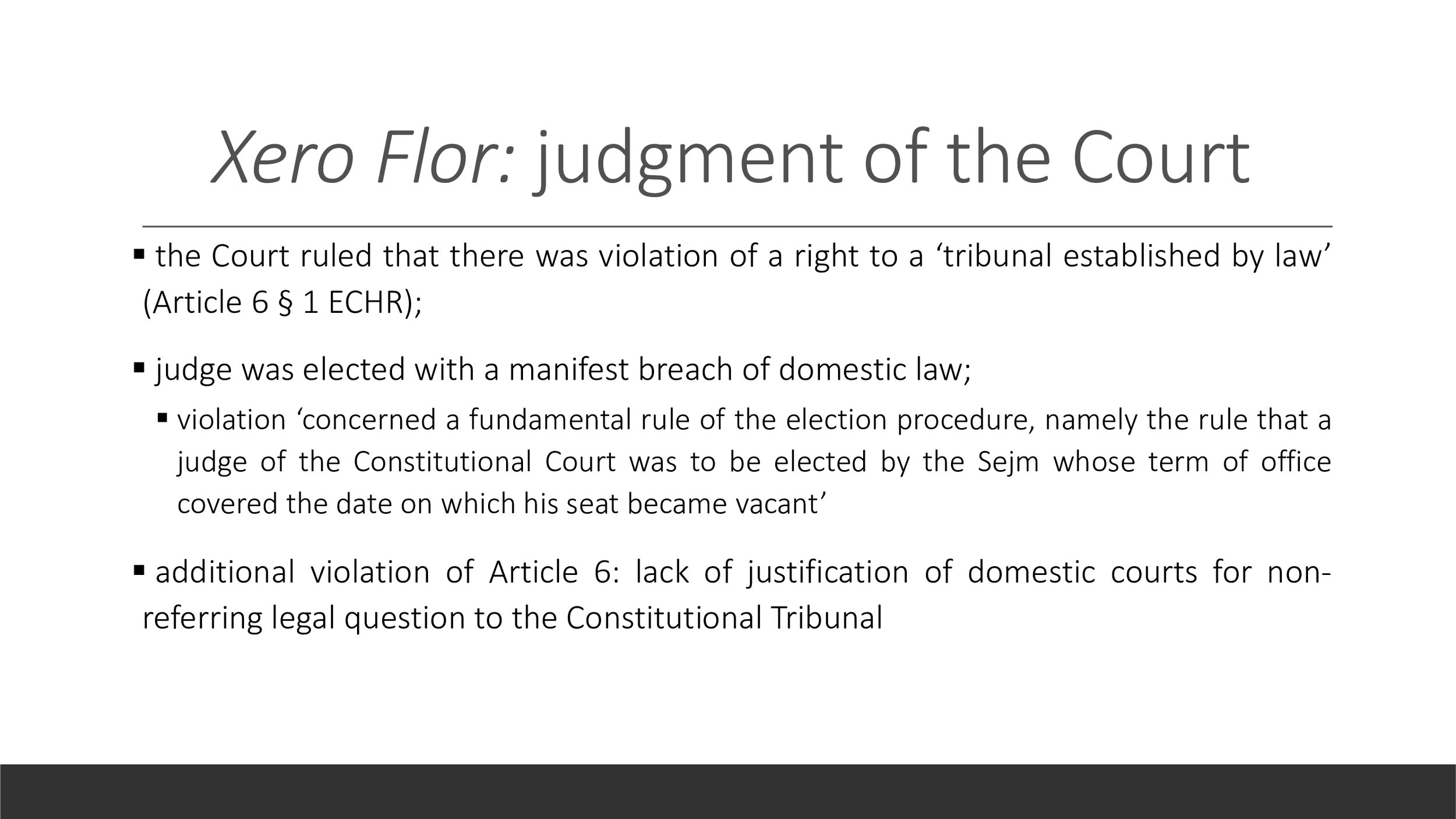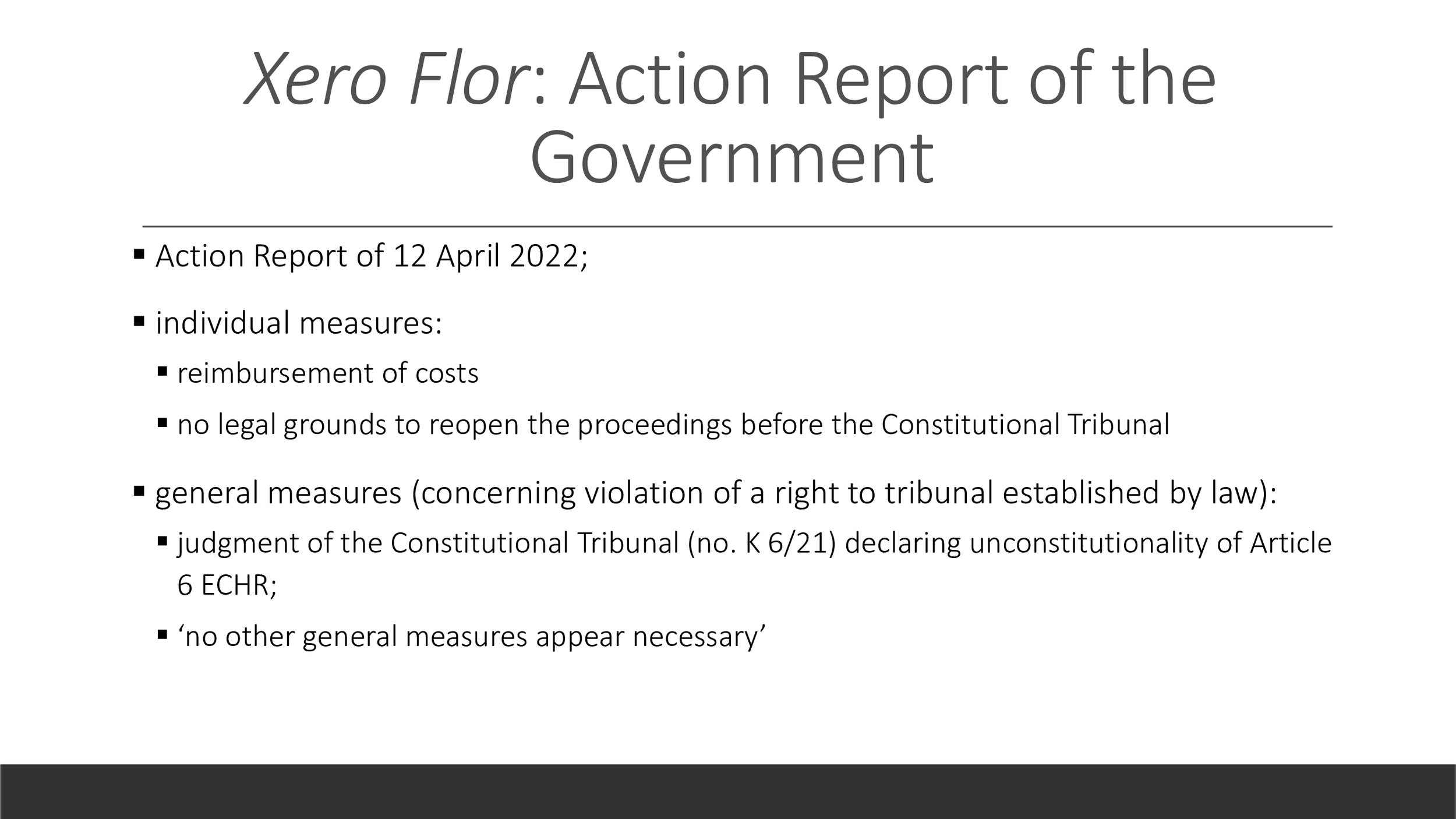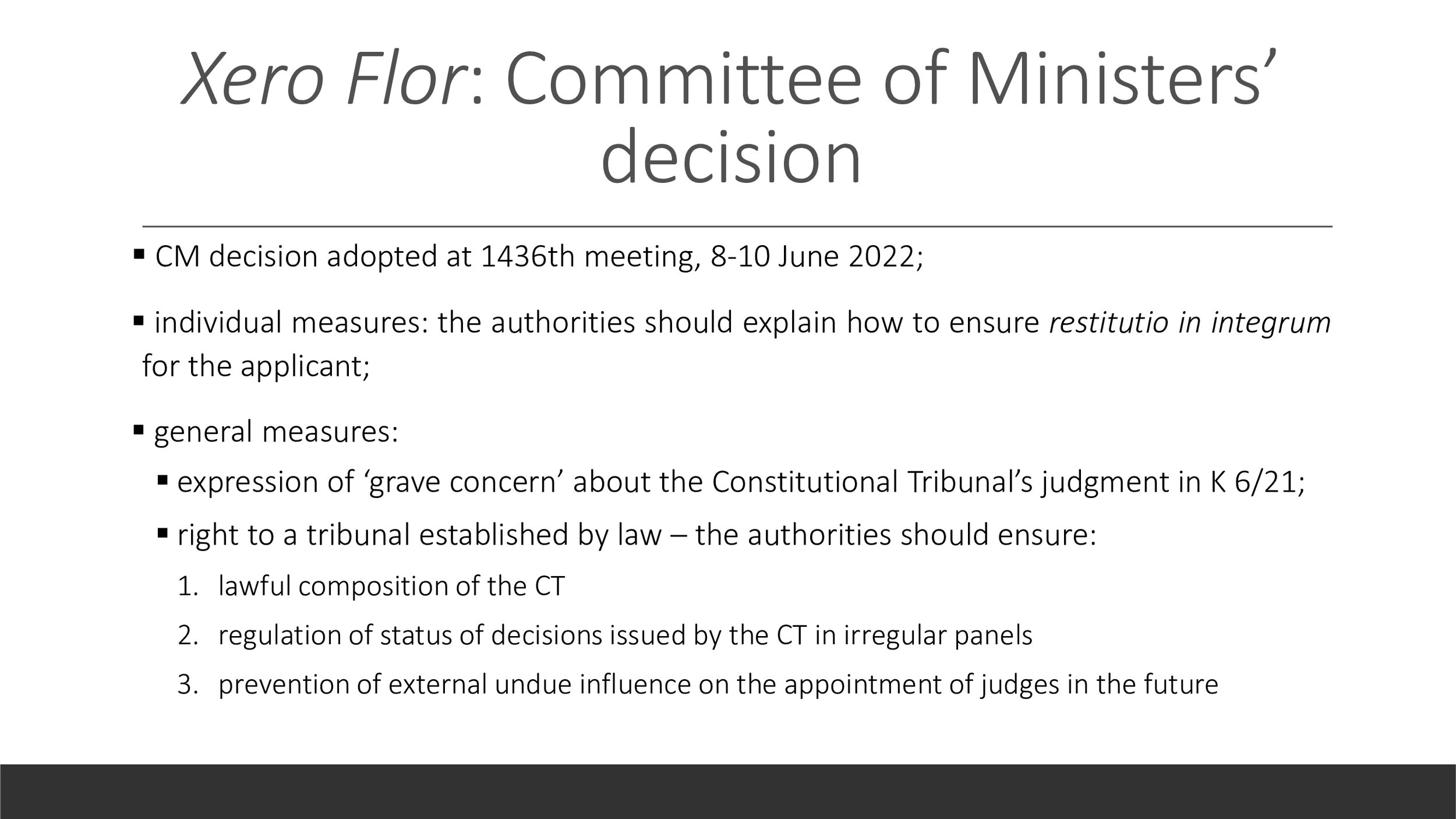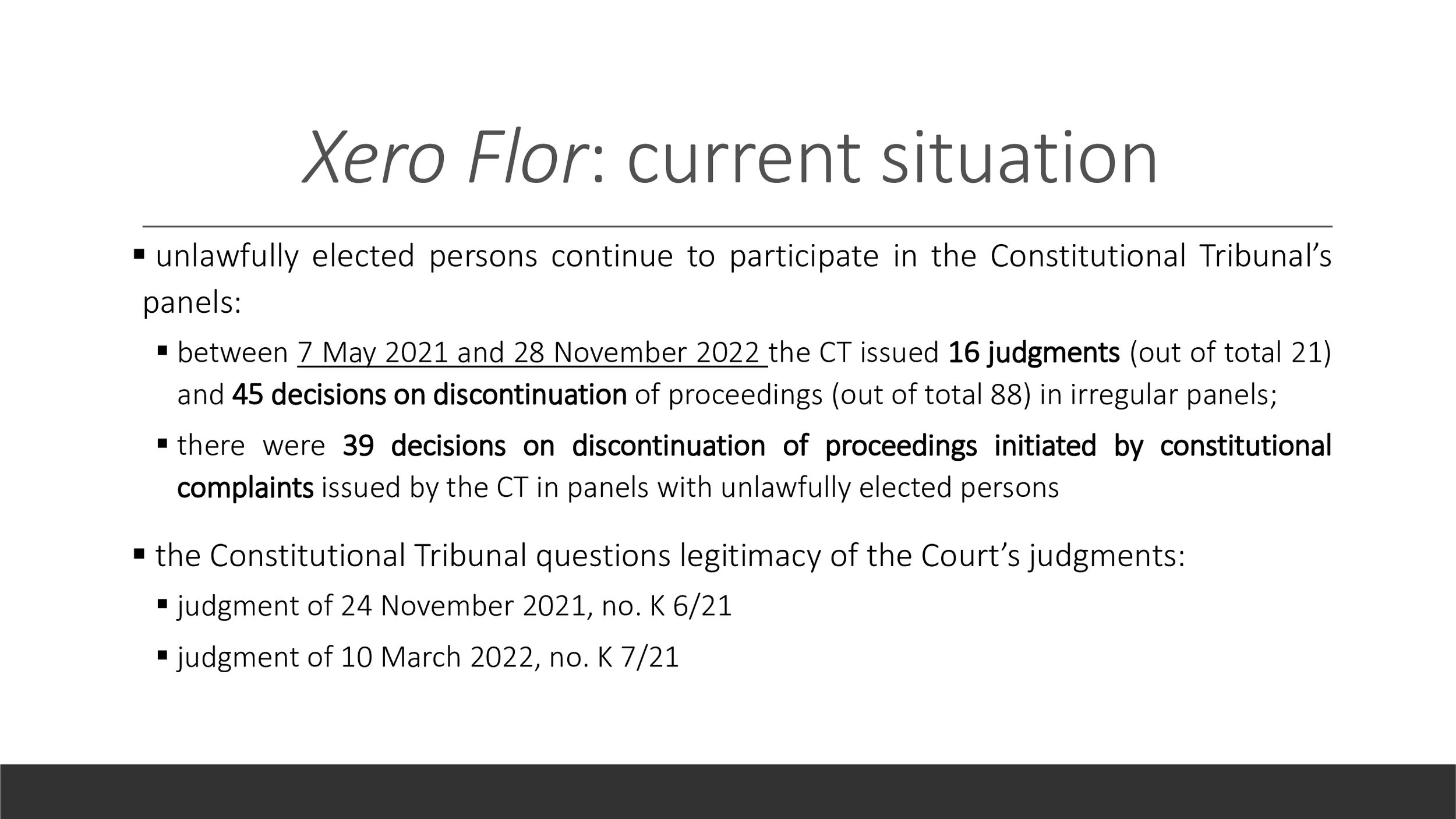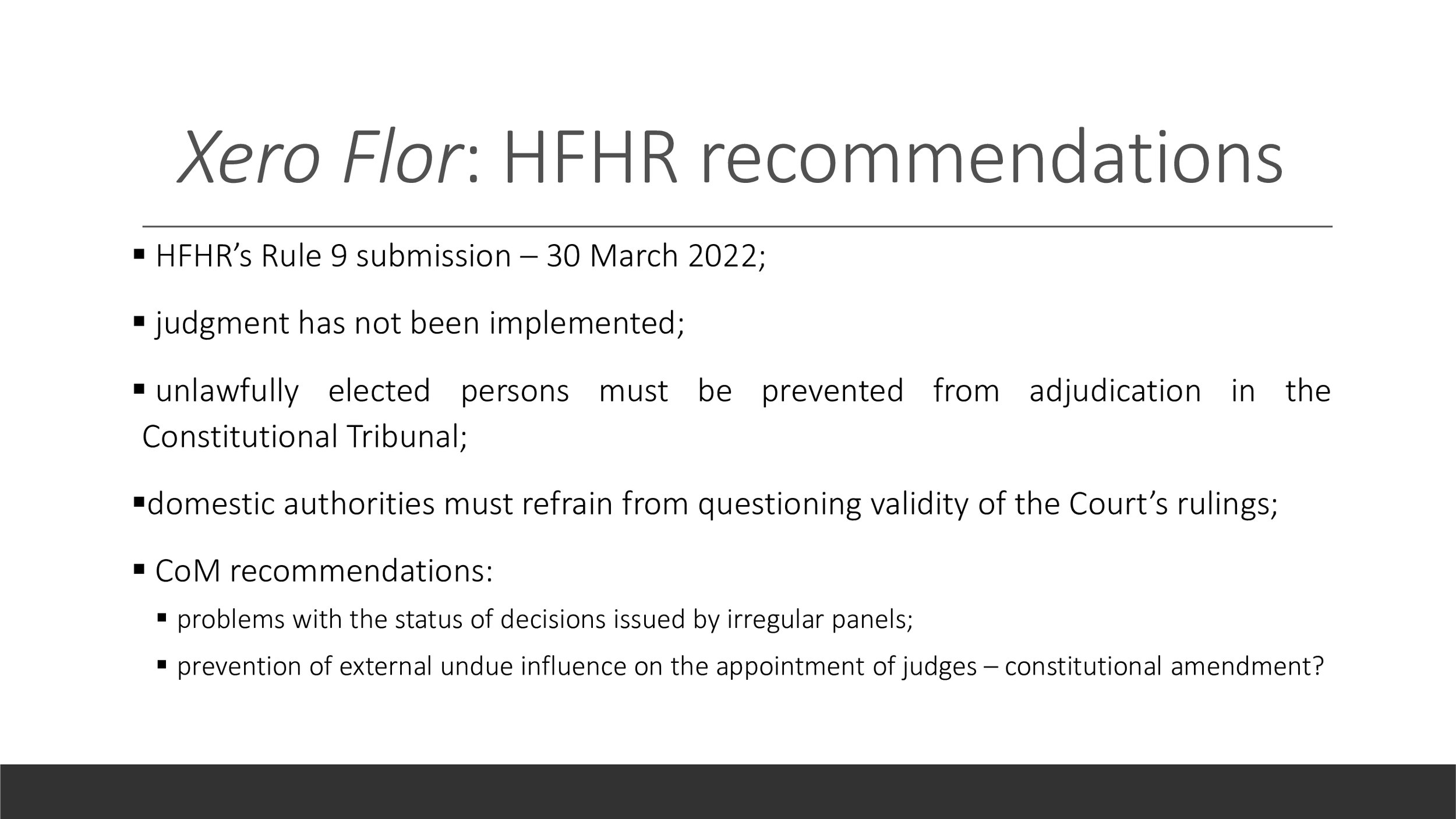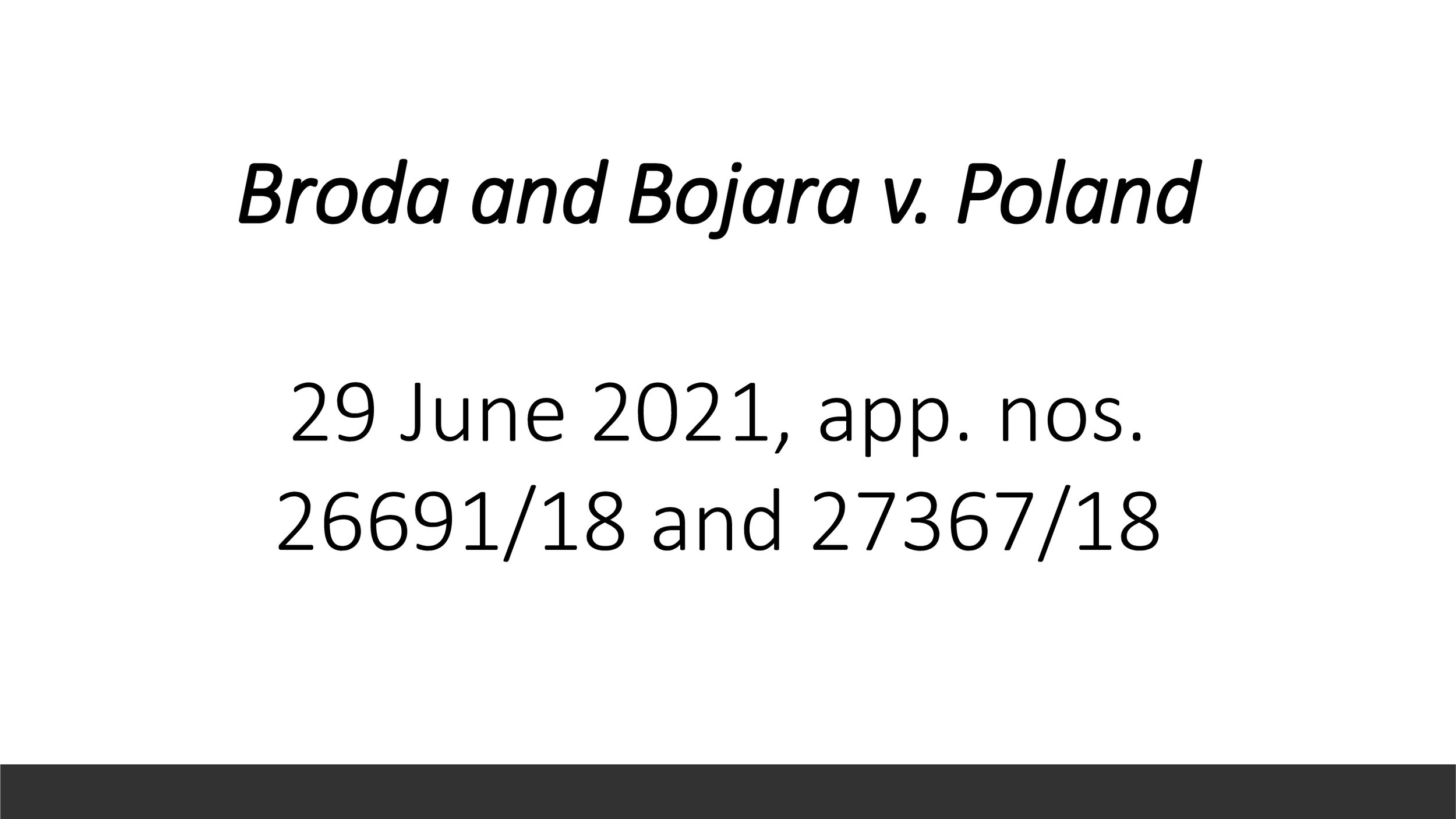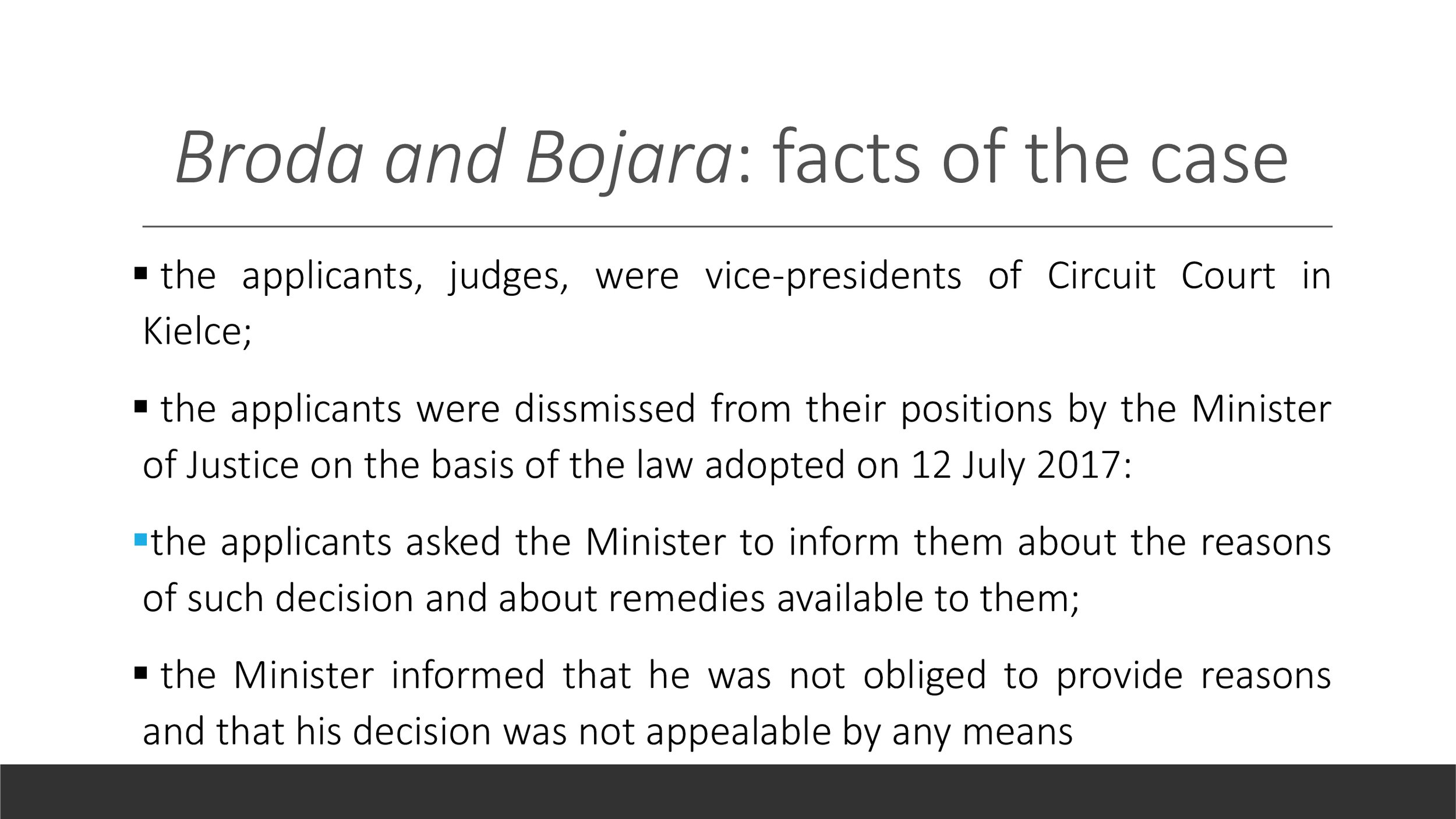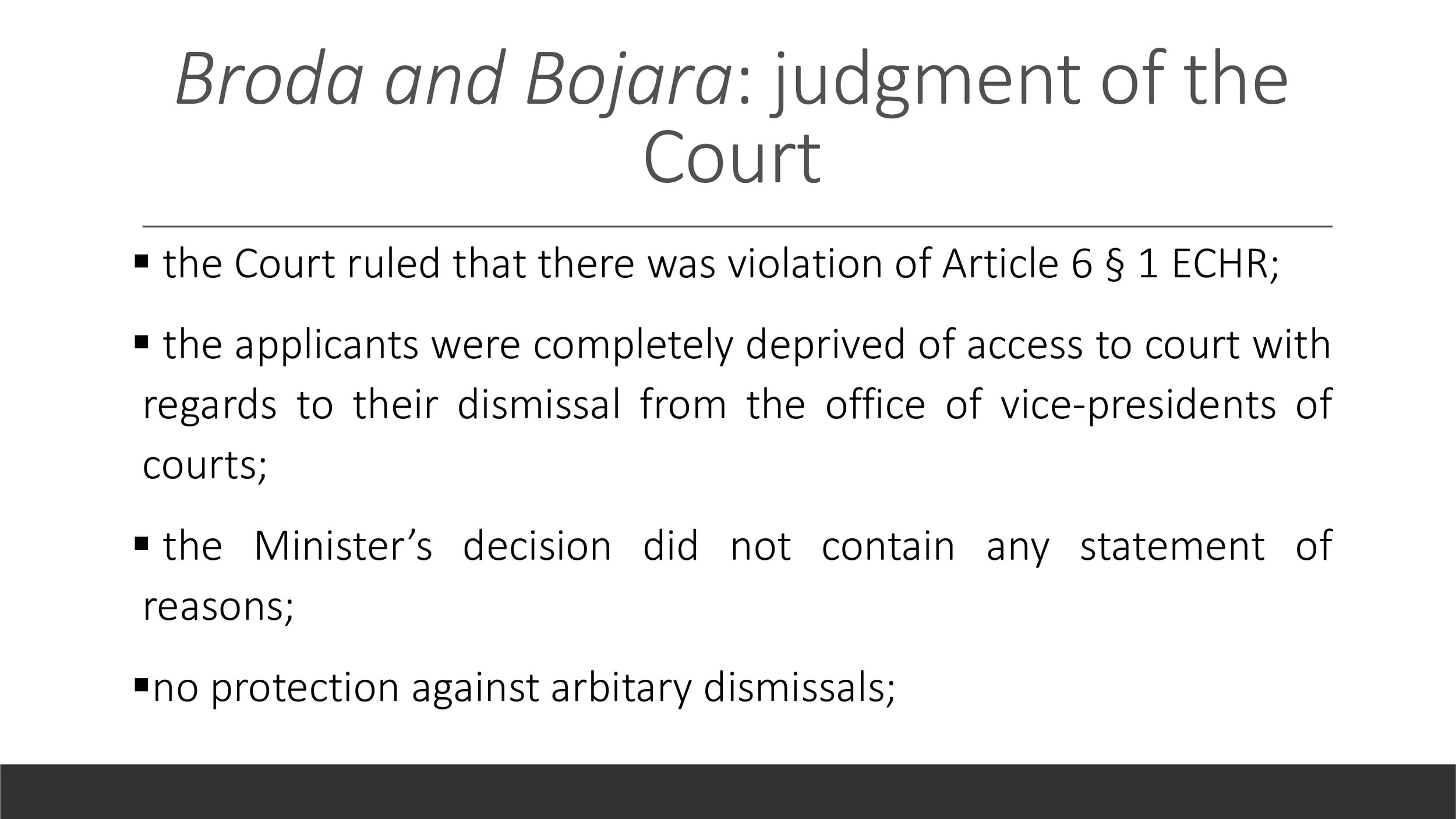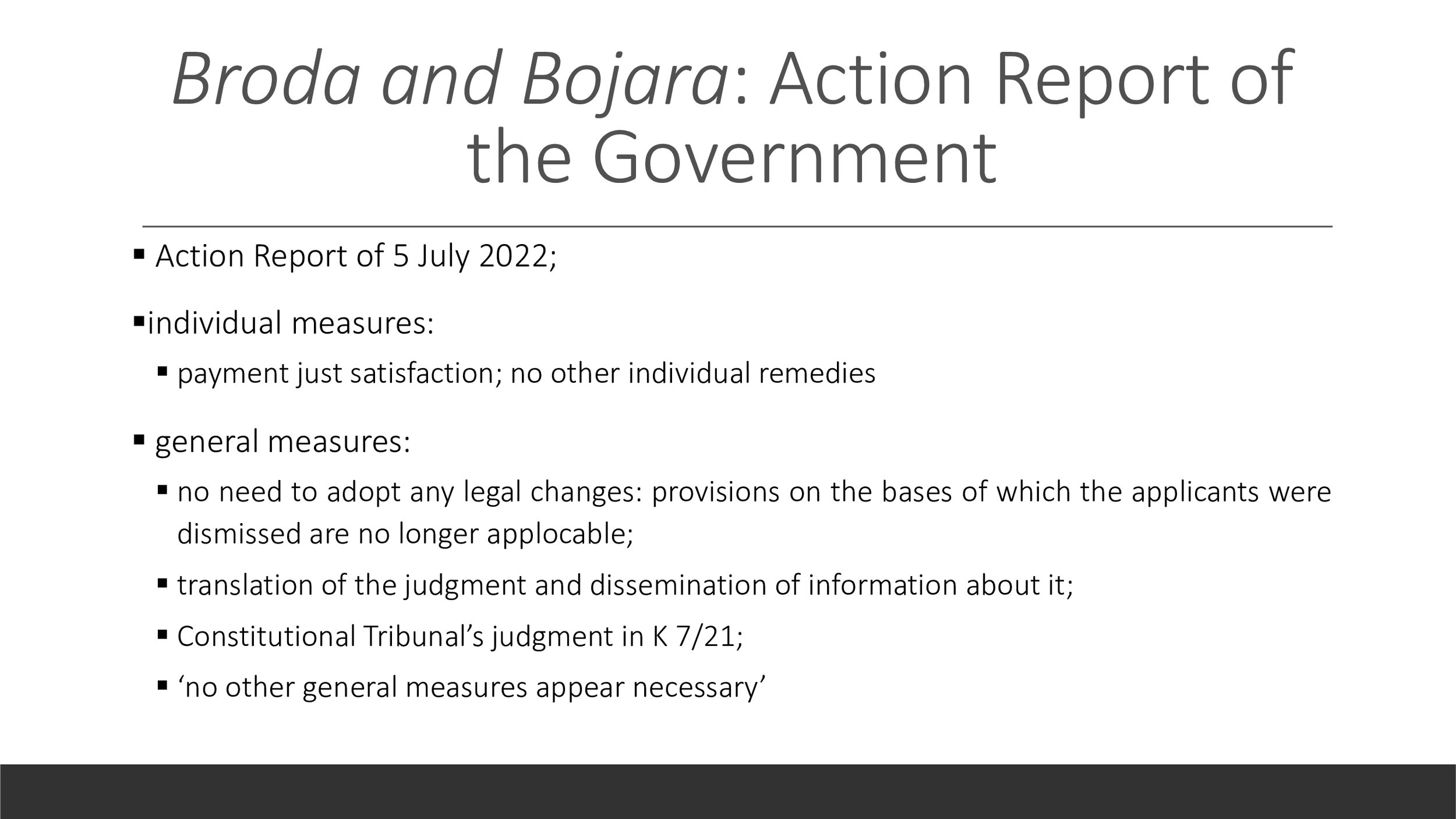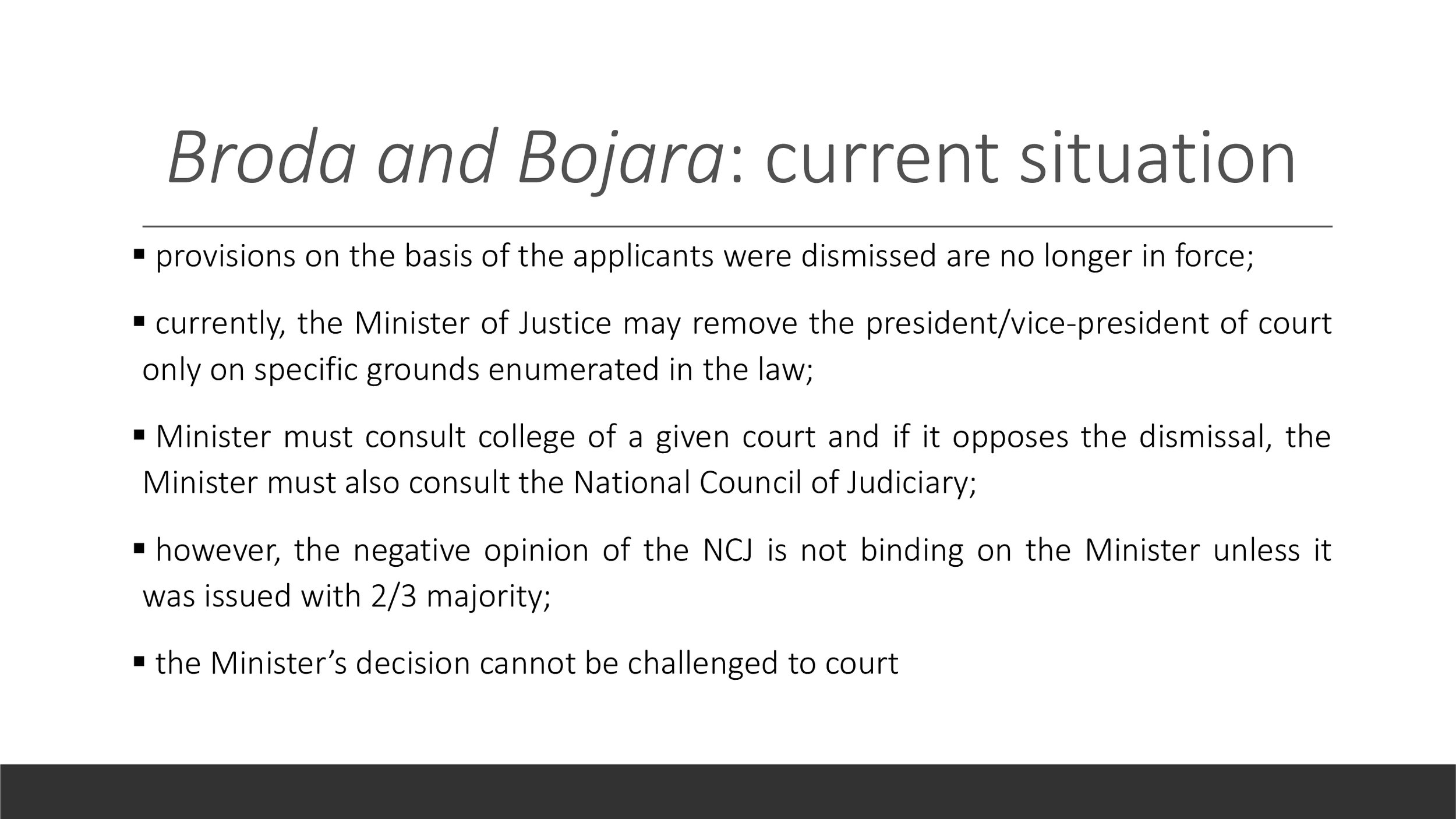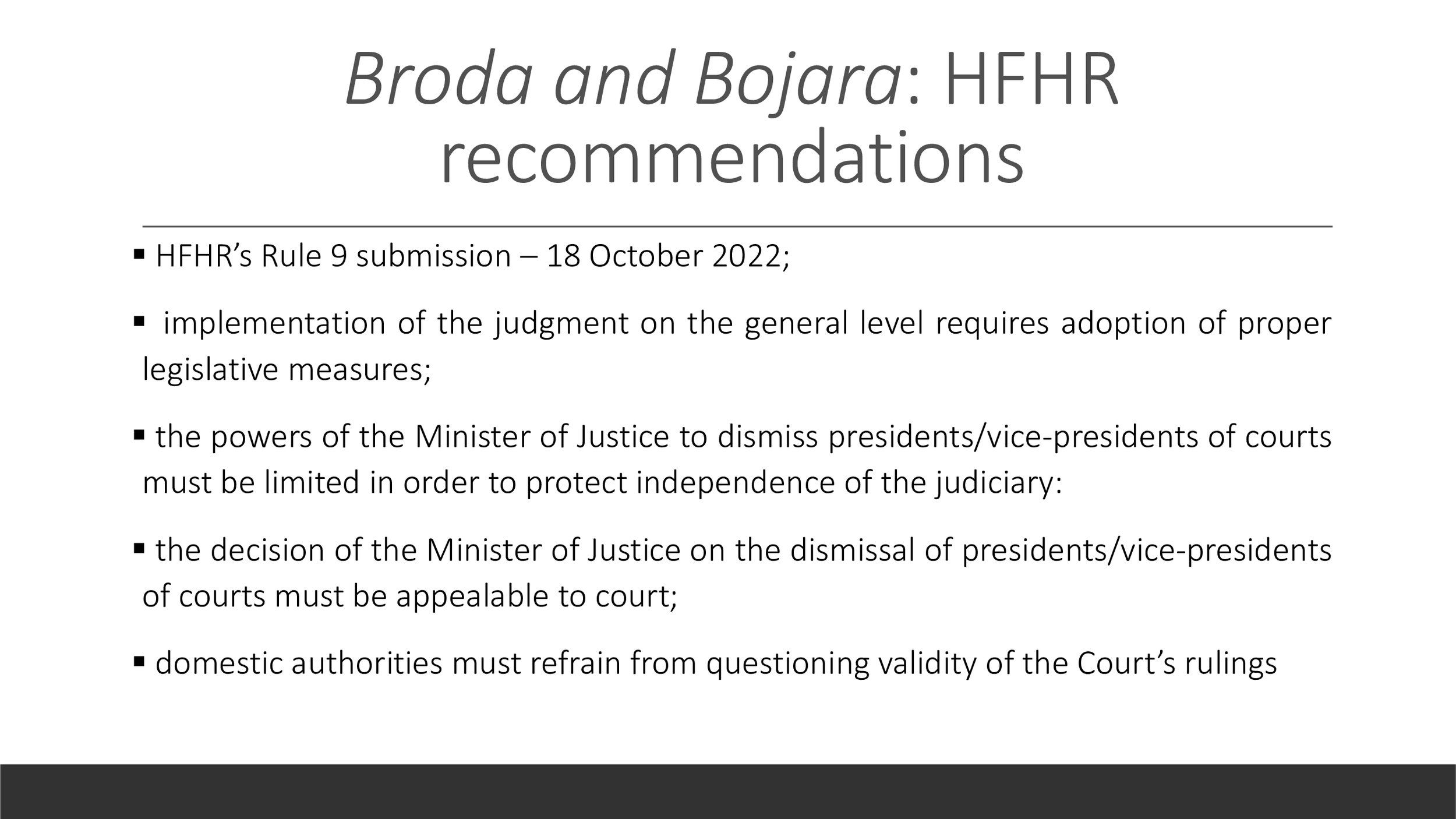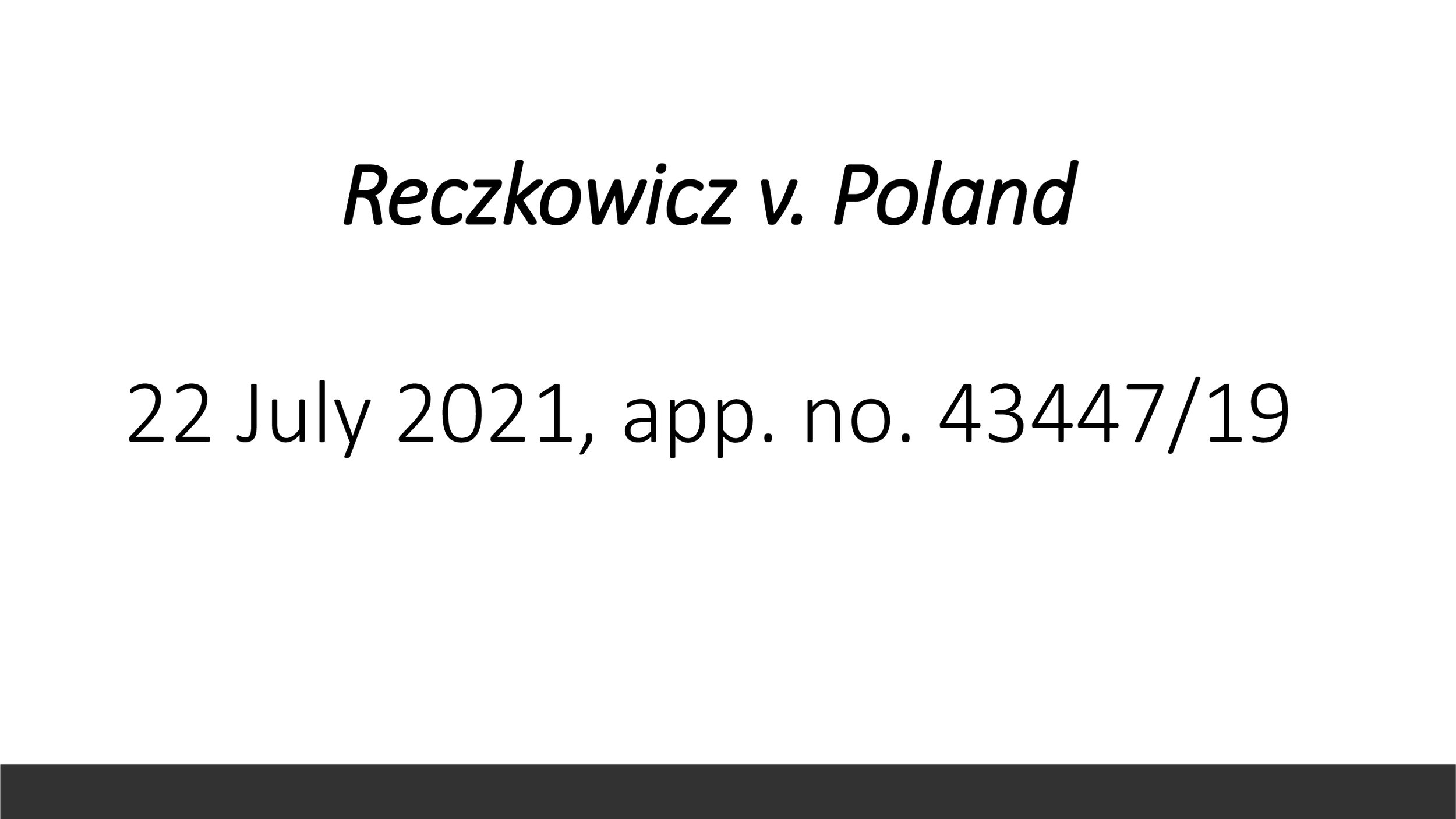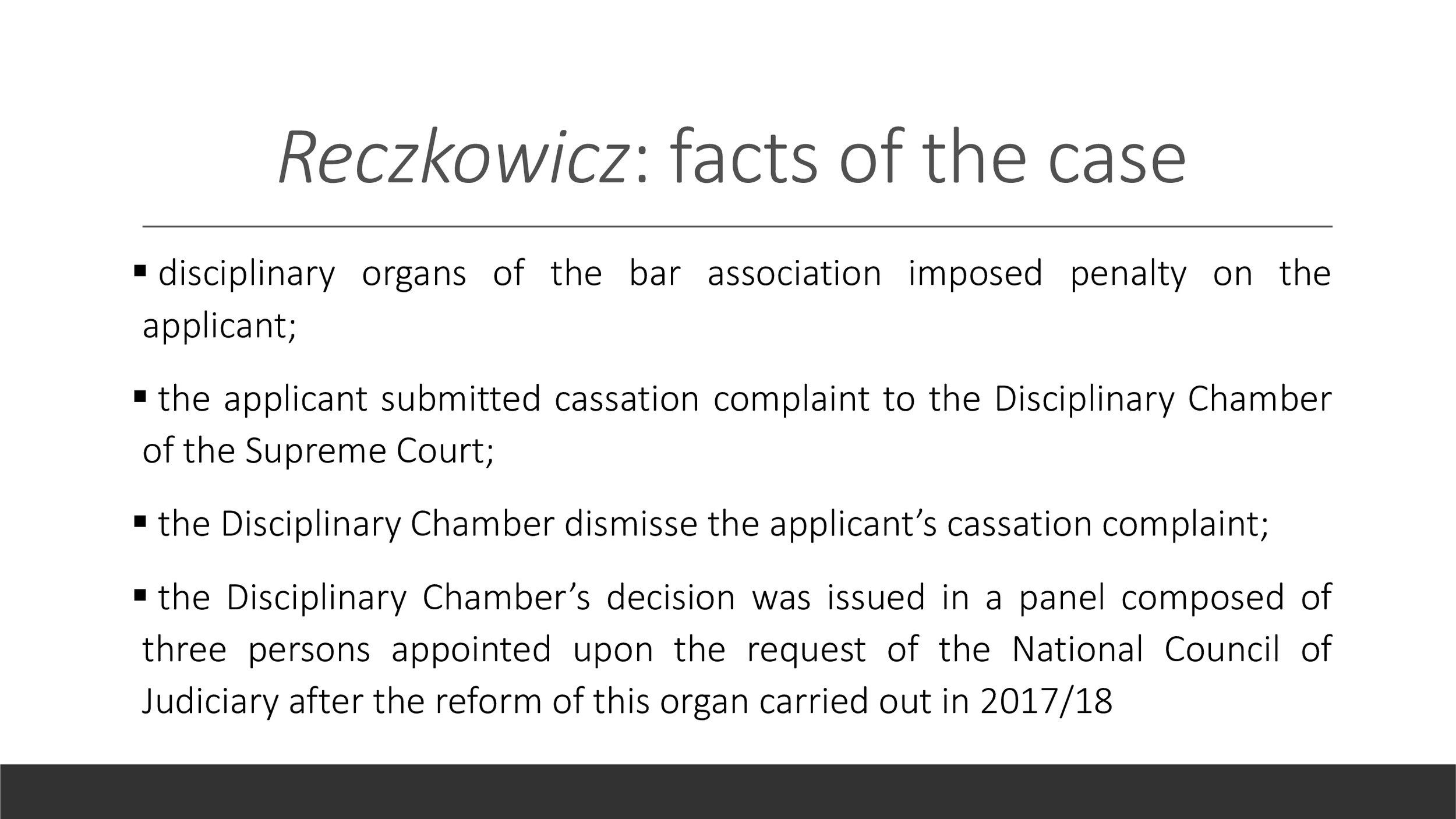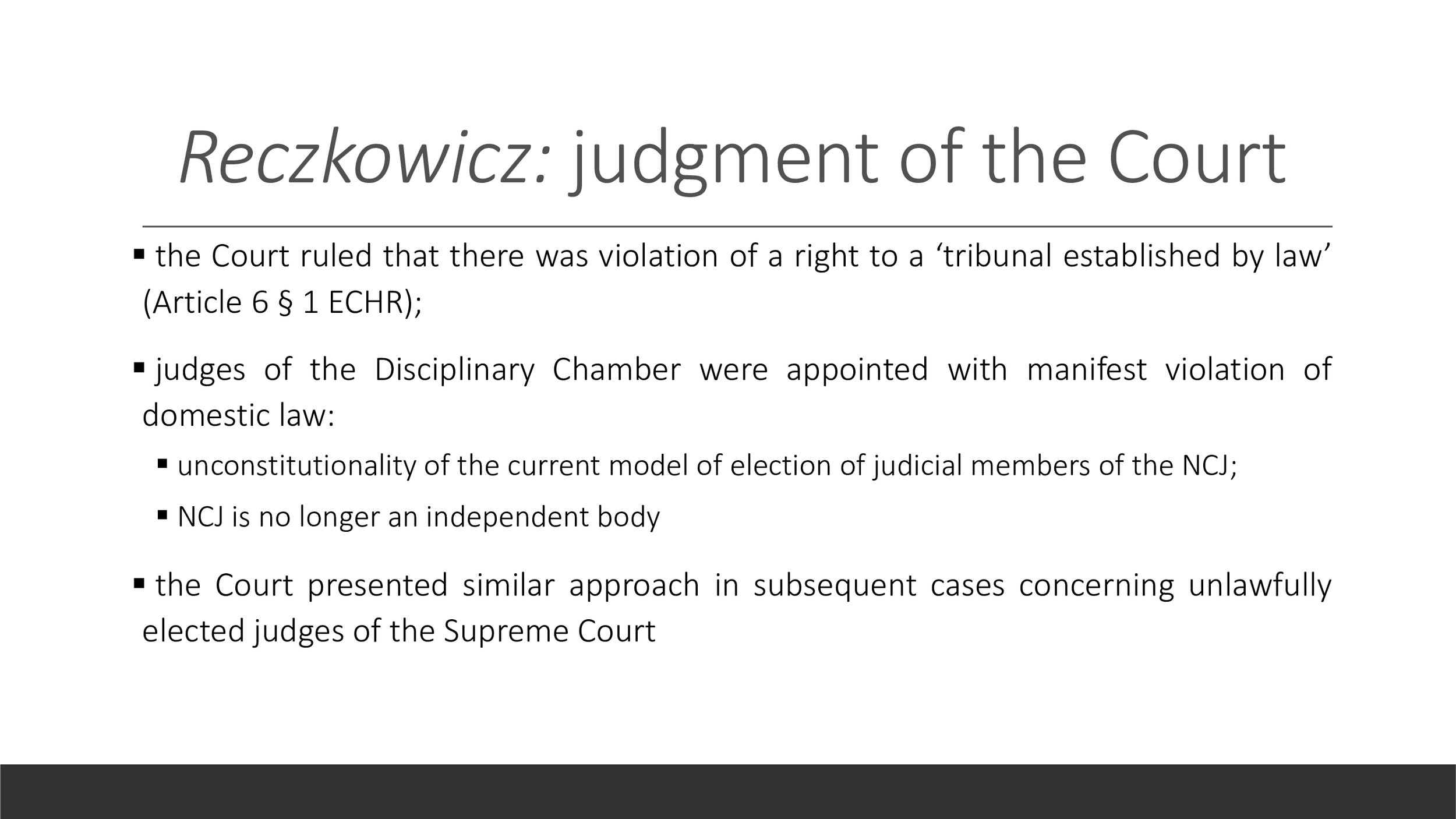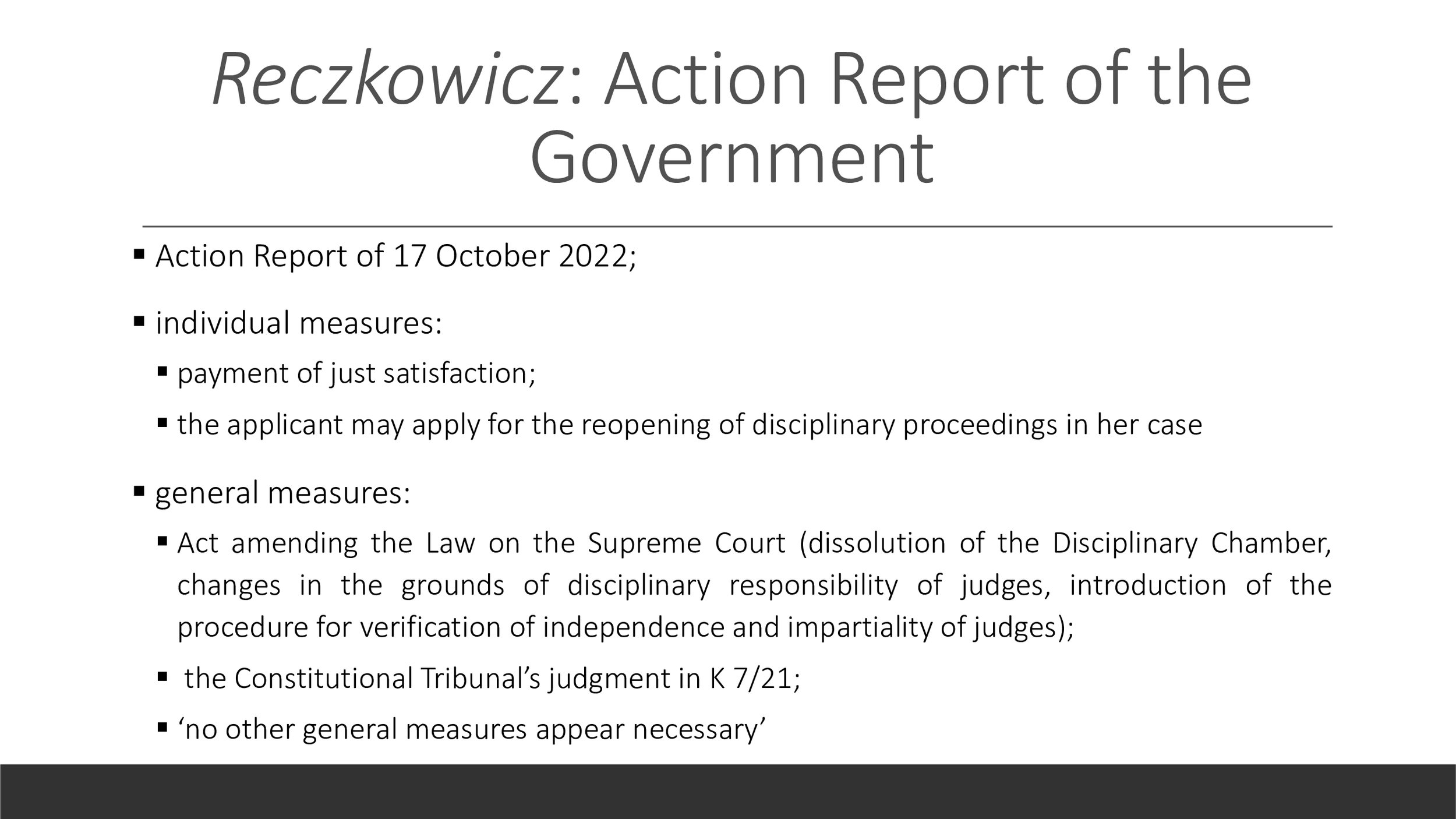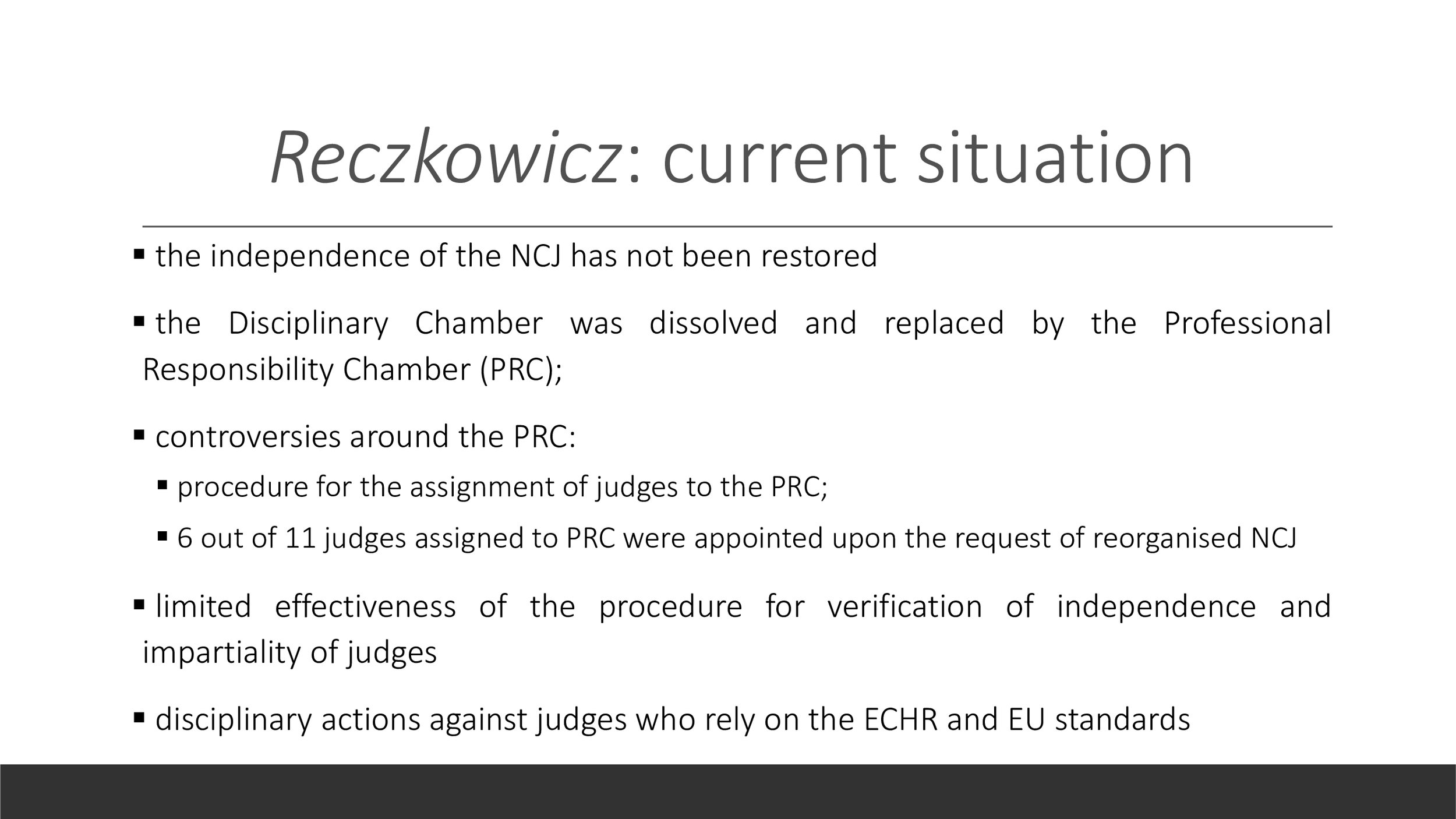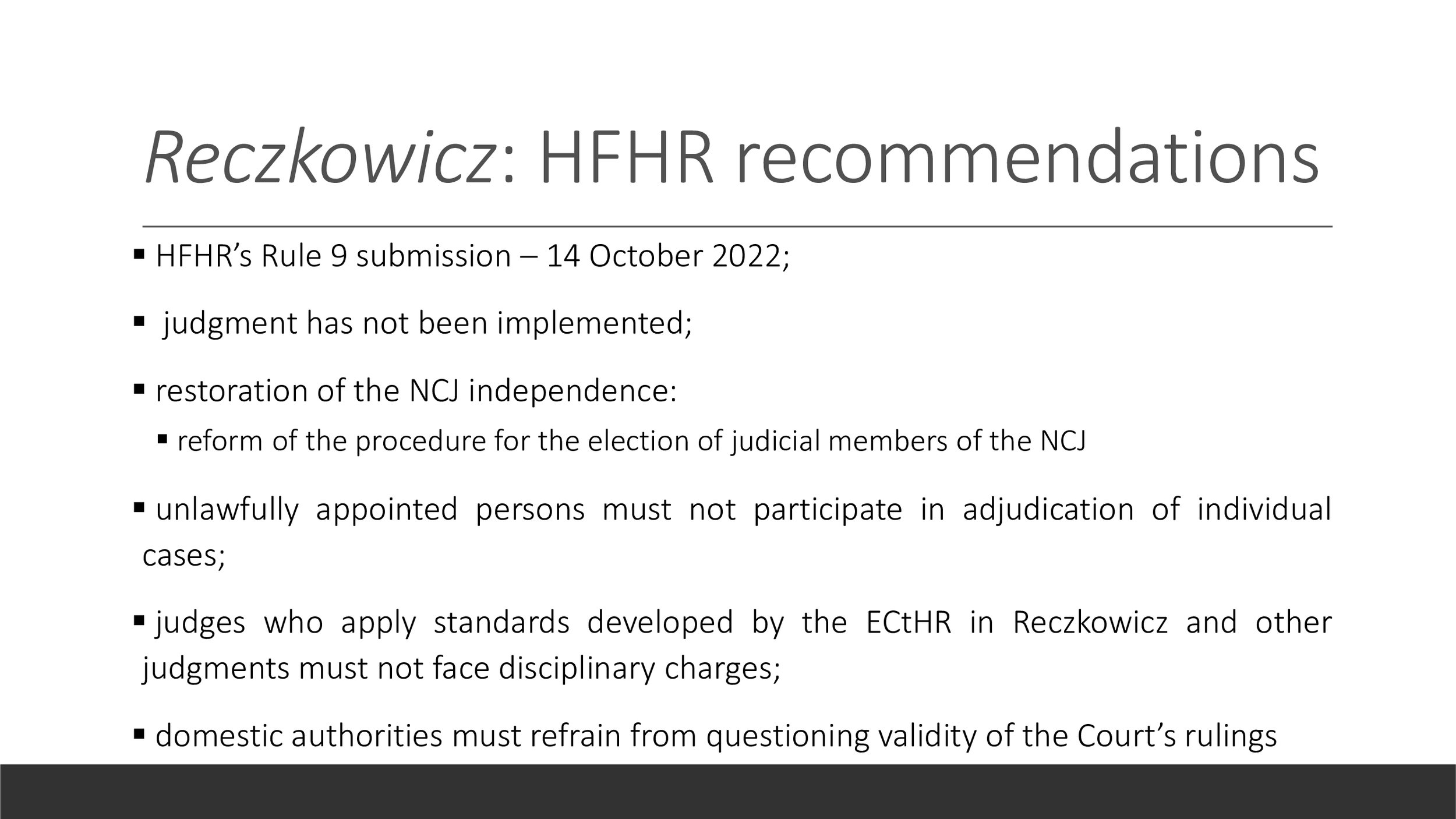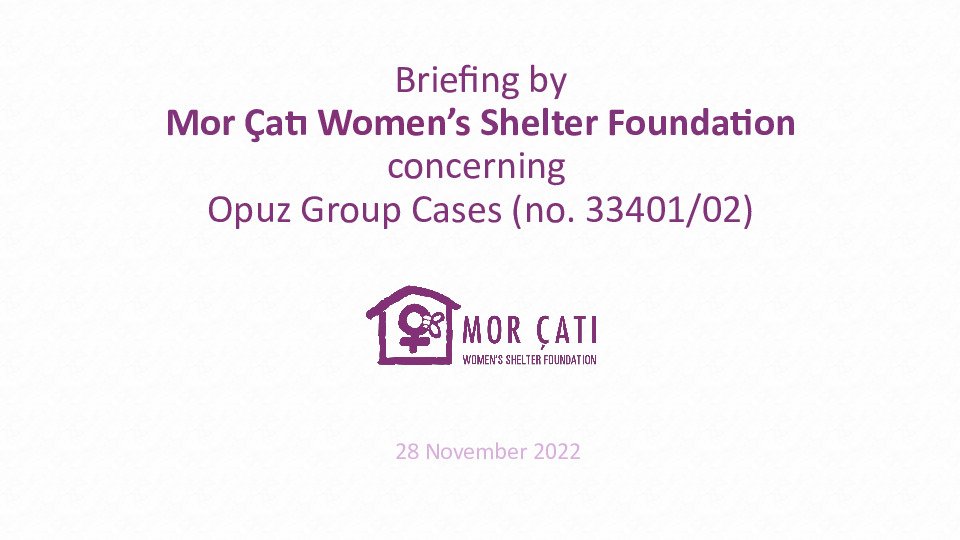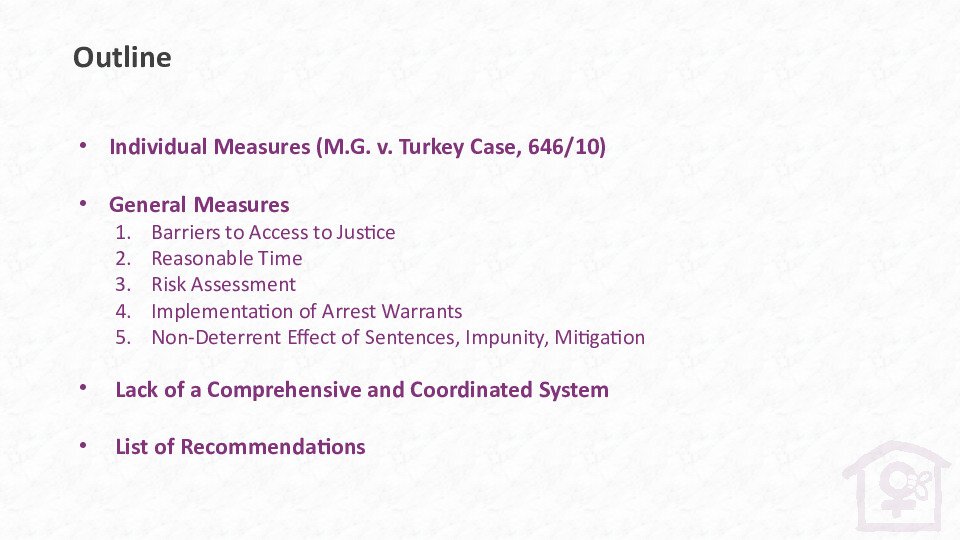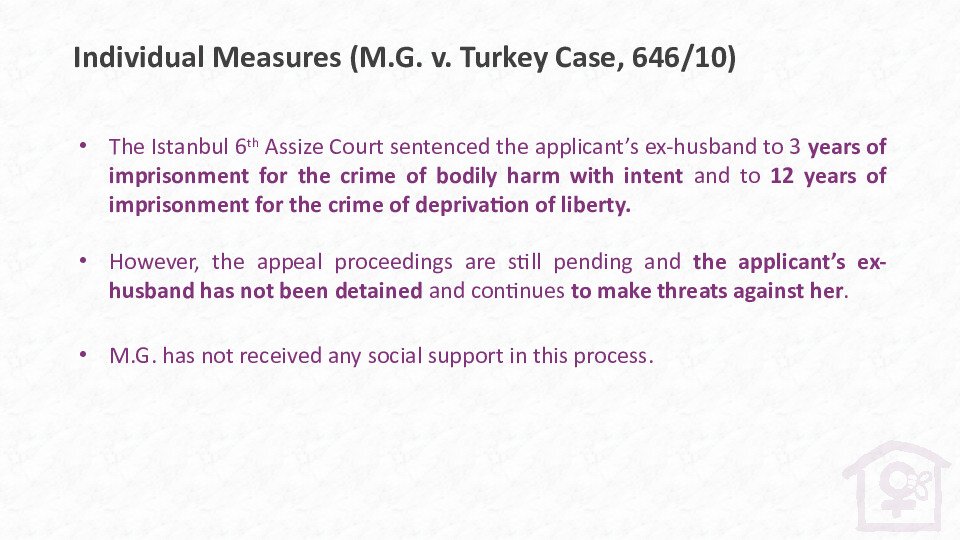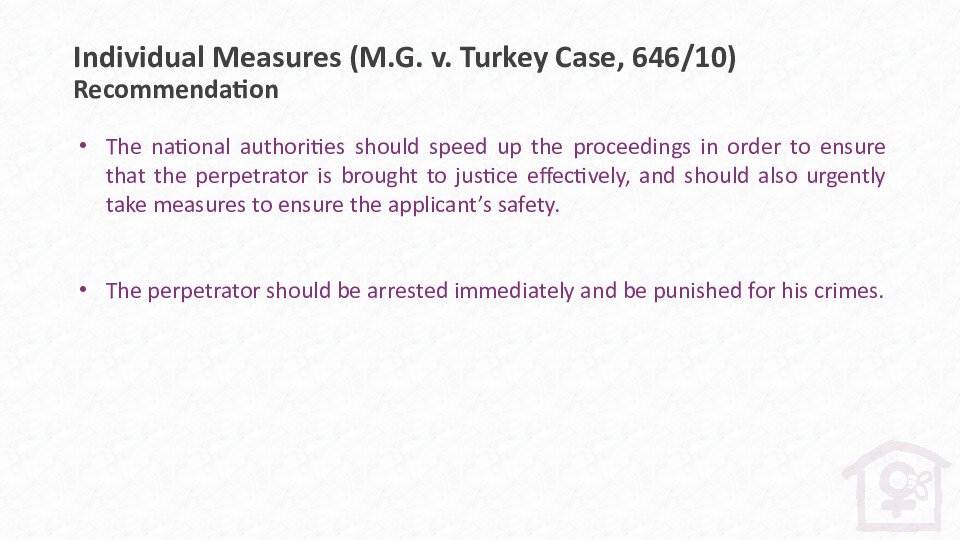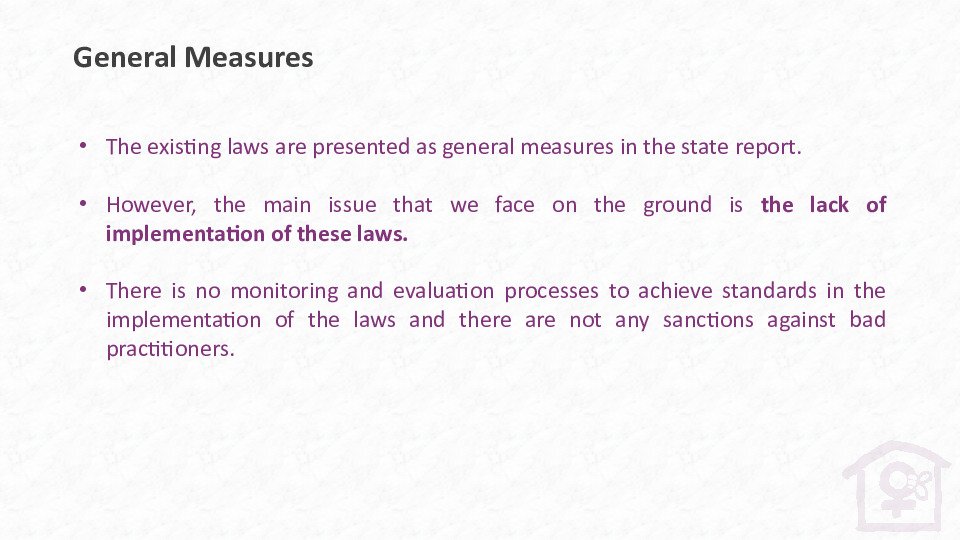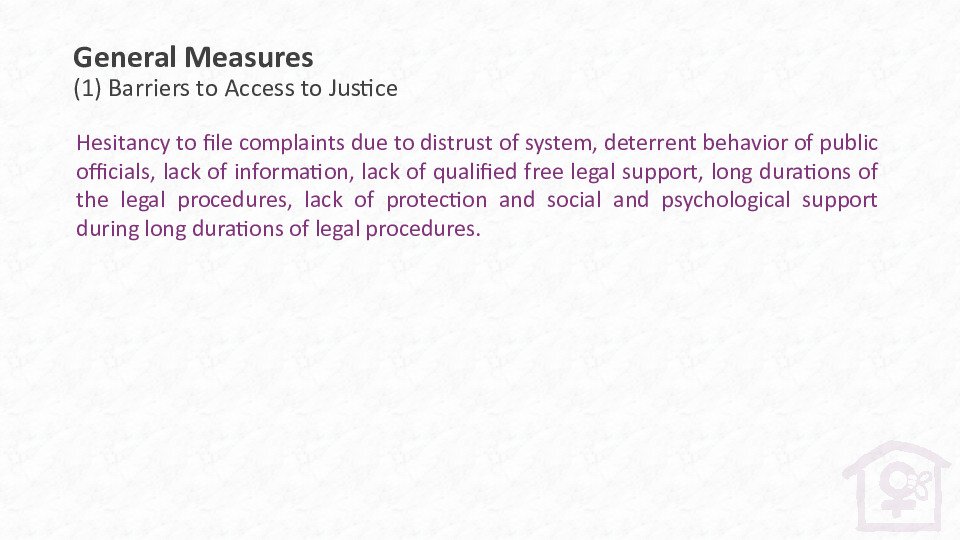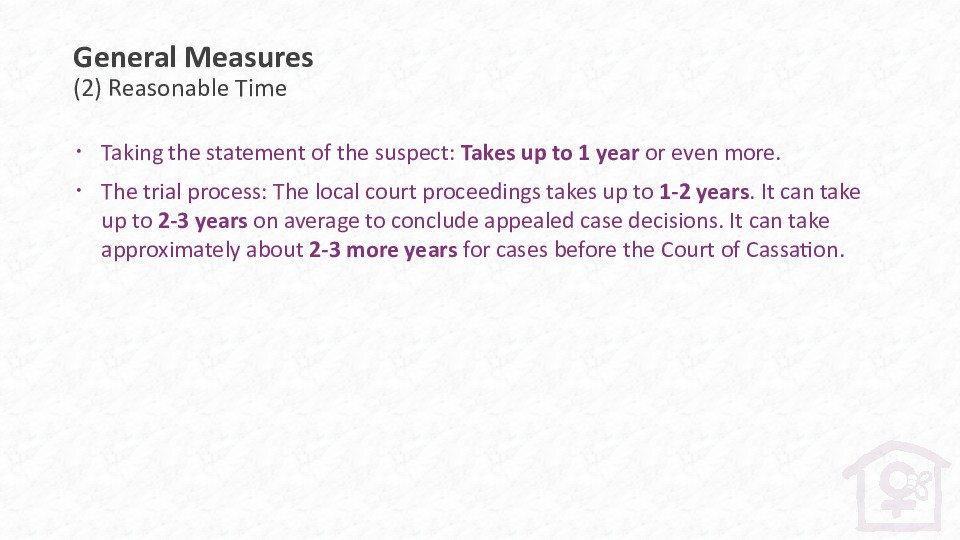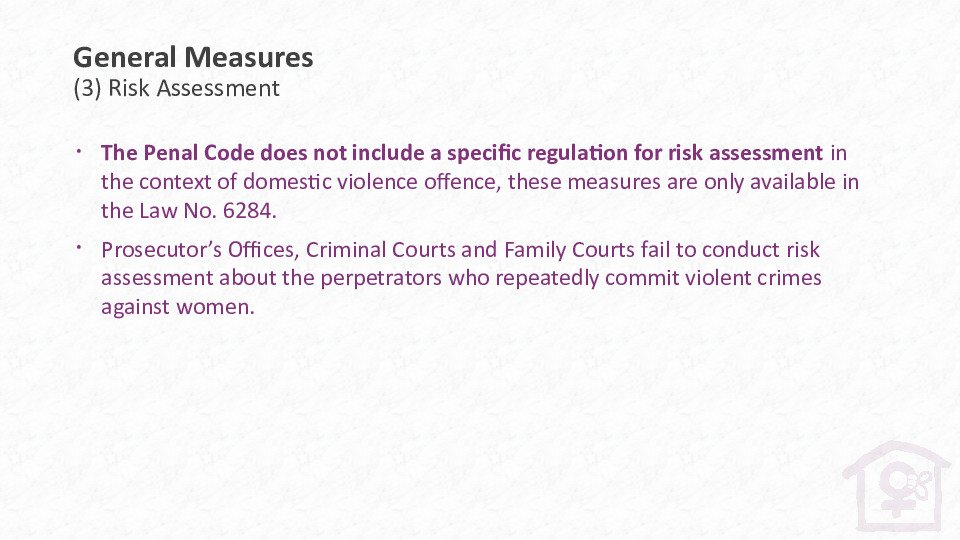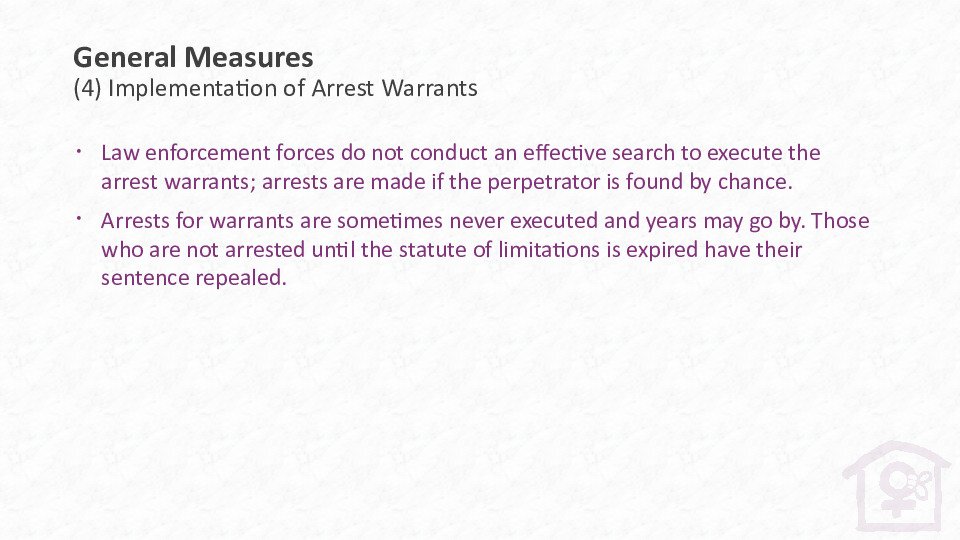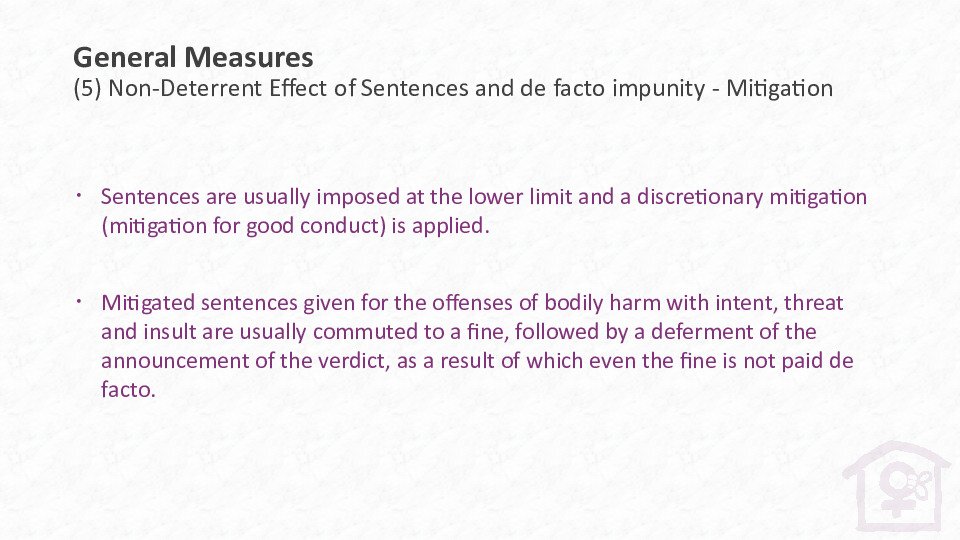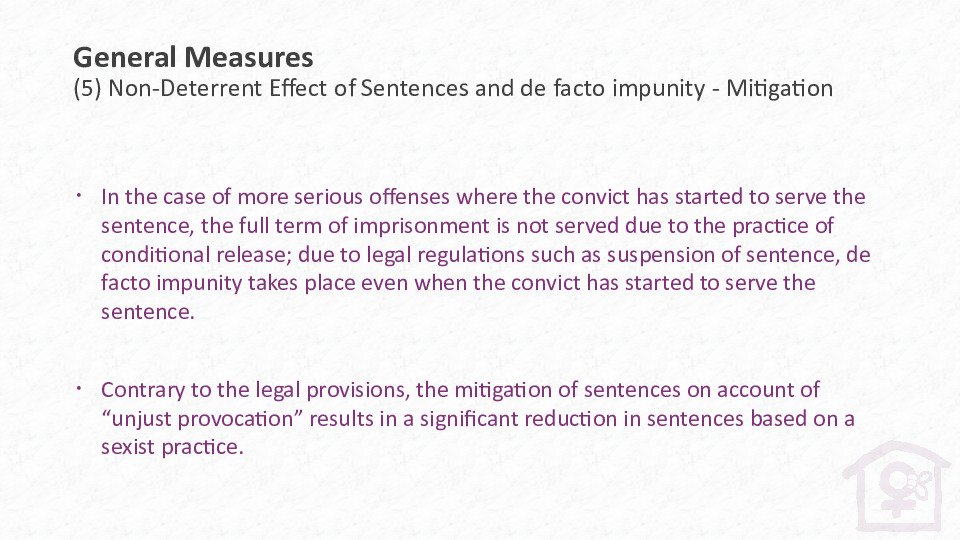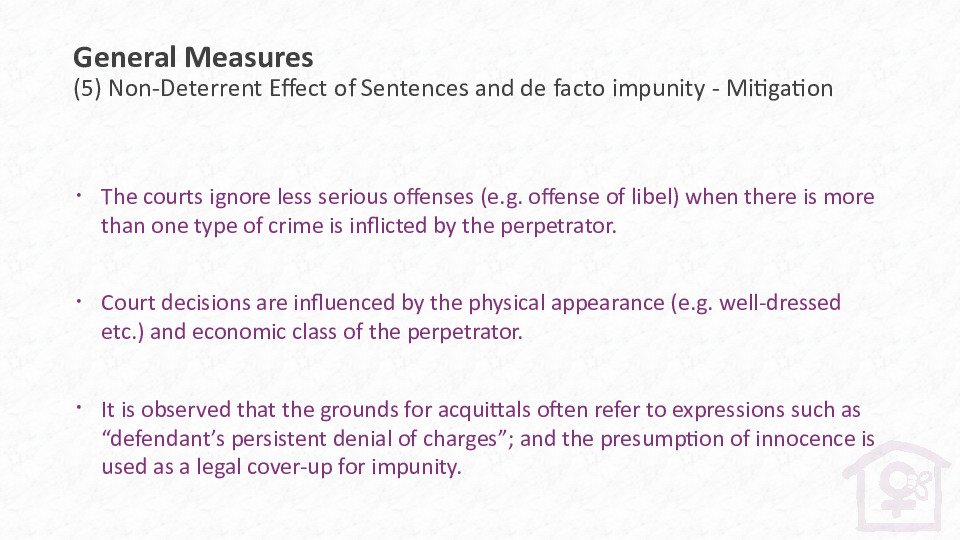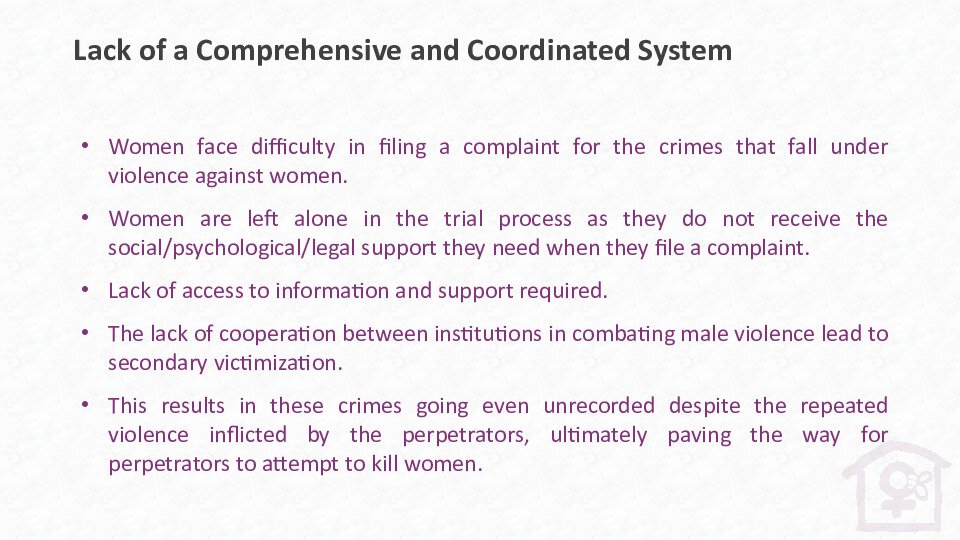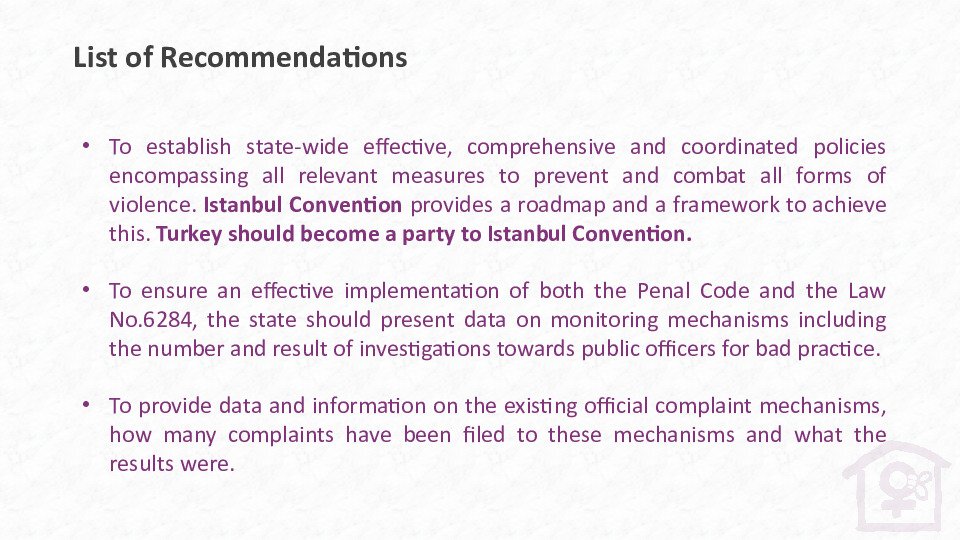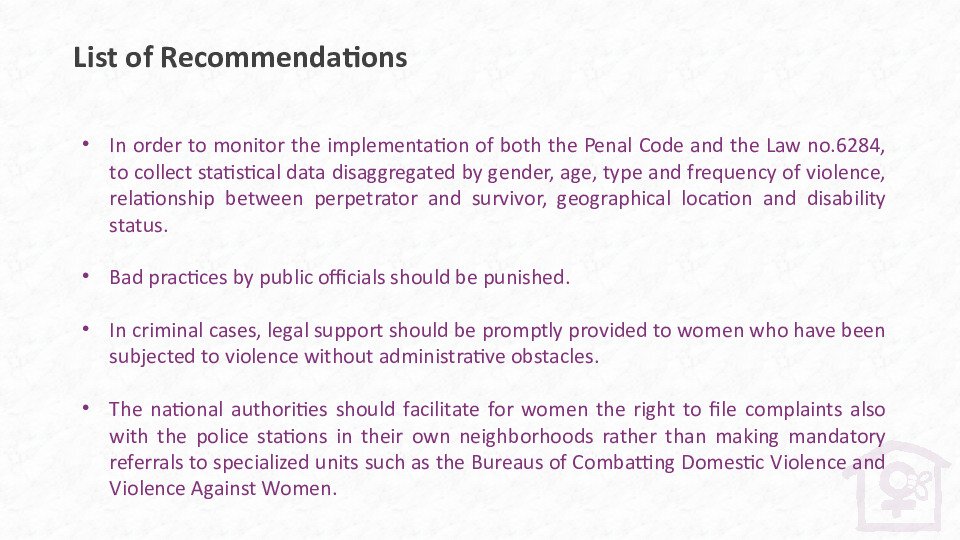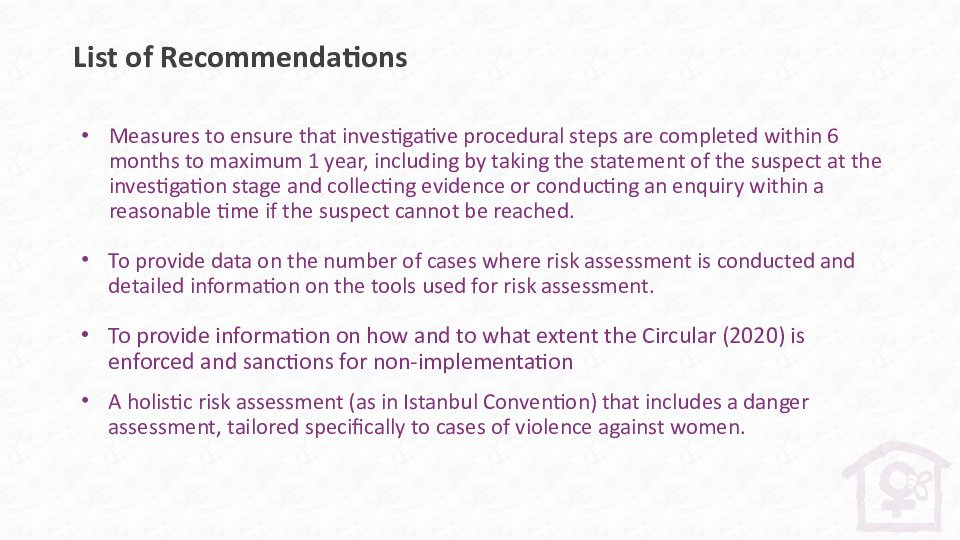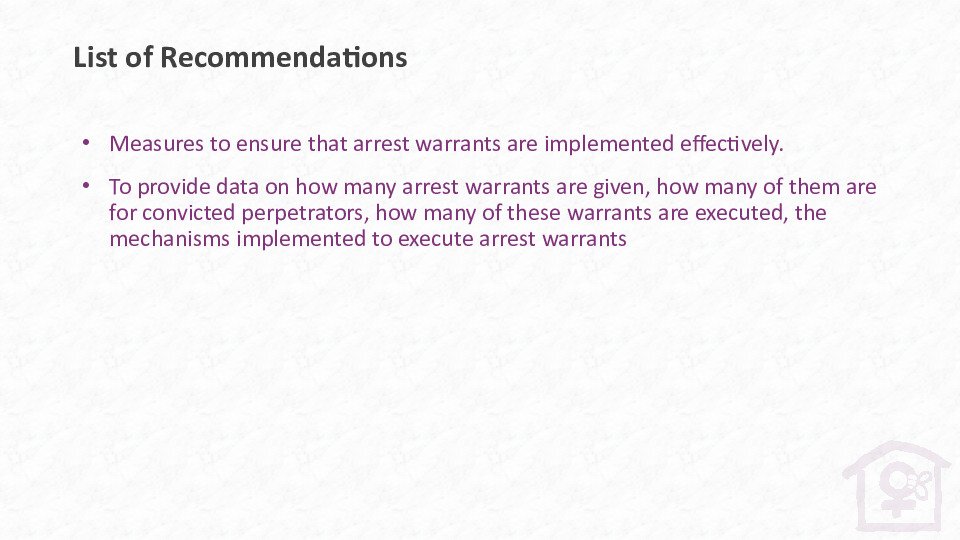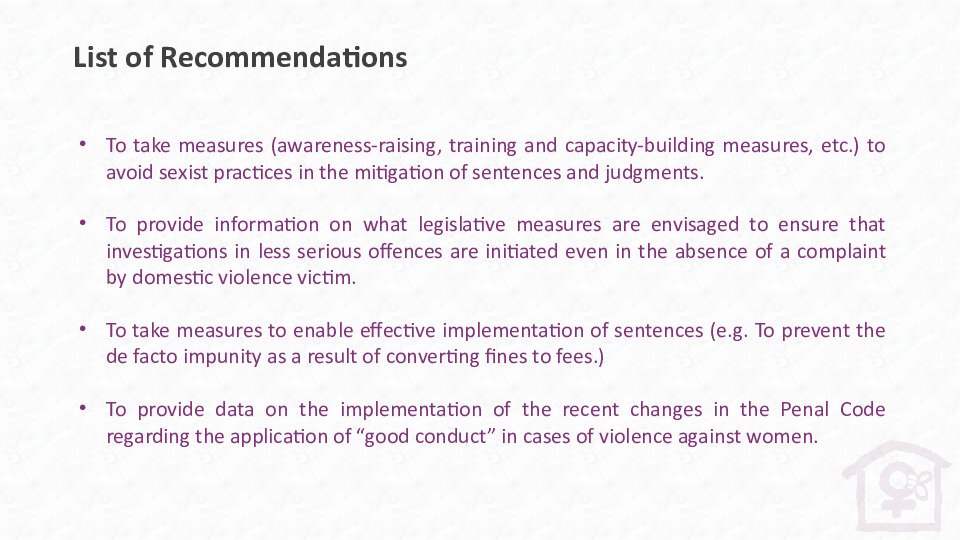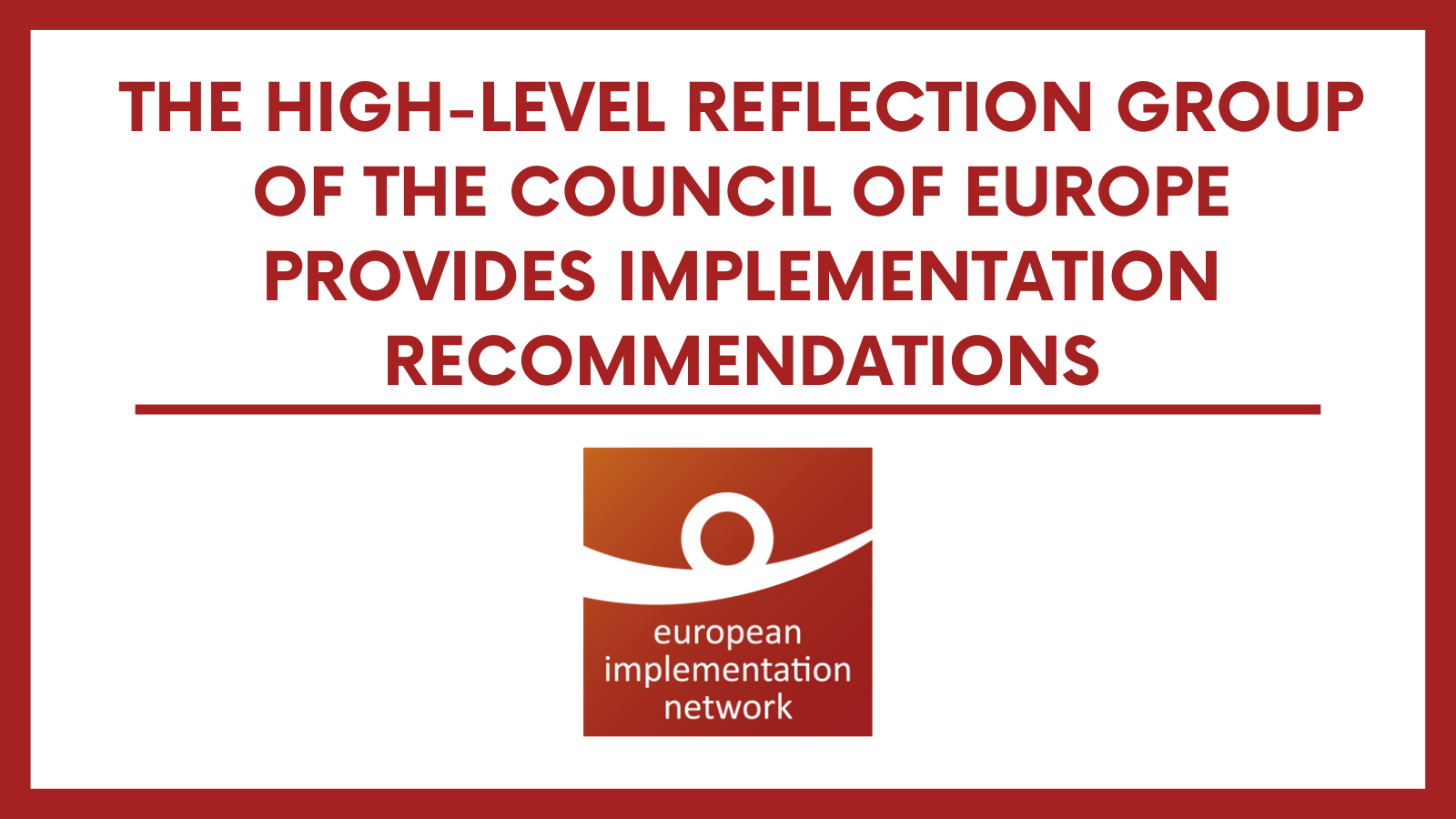Overview of Rule 9 Submissions in view of the Committee of Ministers' Deputies Human Rights Meeting in March 2024
/From the 12th to the 14th of March 2024, the Committee of Ministers will meet for their quarterly Human Rights Meeting. During this meeting, the Committee of Ministers will examine 39 leading judgments of the European Court of Human Rights that are pending implementation.
EIN members and partners, other civil society actors, lawyers and applicants have made 41 Rule 9 submissions for 28 cases under consideration. The list below sets out an overview of these submissions related to cases on the current agenda.
Overview of Submissions
Virabyan Group v. Armenia
Violation: Ill-treatment in police custody and ineffective investigations.
Last Examination: March 2022 - CM/Del/Dec(2022)1428/H46-3
Gafgaz Mammadov Group v. Azerbaijan
Violation: Dispersals of demonstrations and arrests of demonstrators.
Last Examination: June 2023 - CM/Del/Dec(2023)1468/A2
Stanev v. Bulgaria
Violation: Unlawfulness of the placement in social care home of the applicant with mental disorders; lack of judicial review and poor living conditions; impossibility for the applicant, partially incapacitated, to request the restoration of his legal capacity.
Last Examination: March 2023 - CM/Del/Dec(2023)1459/H46-6
United Macedonian Organisation Ilinden and Others Group v. Bulgaria
Violation: Unjustified refusals by the courts to register an association aiming at achieving “the recognition of the Macedonian minority in Bulgaria”.
Last Examination: September 2023 - CM/Del/Dec(2023)1475/H46-11
Statileo Group v. Croatia
Violation: Statutory limitations on use of property by landlords, including through the rent control scheme for flats subject to protected leases.
Last Examination: December 2023 - CM/Del/Dec(2023)1483/H46-12
D.H. and Others v. Czech Republic
Violation: Discrimination in the enjoyment of the applicants’ right to education due to their enrolment to special schools between 1996 and 1999, on account of their Roma origin.
Last Examination: September 2023 - CM/Del/Dec(2023)1475/A2b
H.F. and Others v. France
Violation: Violation of the right to enter the State of which a person is a national, due to the absence of appropriate safeguards against arbitrariness in the examination of requests to repatriate French children held since 2019 in the camps in north-eastern Syria.
First Examination
J.M.B. and Others v. France
Violation: Poor conditions of detention (overcrowding) and lack of an effective preventive remedy.
Last Examination: December 2022 - CM/Del/Dec(2022)1451/H46-11
Tsintsabadze Group v. Georgia
Violation: Lack of effective investigations into allegations of ill-treatment or violations of the right to life; excessive use of force by the police in the course of arrest and/or while detaining suspects.
Last Examination: June 2023 - CM/Del/Dec(2023)1468/H46-11
Nisiotis Group v. Greece
Violation: Prison overcrowding and other poor conditions in prison. Lack of effective remedy.
Last Examination: March 2022 - CM/Del/Dec(2022)1428/H46-13
Bakirdzi and E.C. v. Hungary
Violation: Discriminatory restriction of voting rights of the applicants belonging to recognised national minorities.
First Examination
Horváth and Kiss v. Hungary and Szolcsán v. Hungary
Violation: Discriminatory assignment of Roma children to special primary schools for children with mental disabilities (Horváth and Kiss).
Discrimination of a Roma pupil on account of segregation in a State-run primary school attended almost exclusively by Roma children (Szolcsán)
Last Examination: June 2022 - CM/Del/Dec(2022)1436/H46-9 (Horváth and Kiss).
First examination (Szolcsán)
Varga and Others + v. Hungary and István Gábor Kovács Group v. Hungary
Violation: Overcrowding and poor material conditions of detention, lack of effective remedies and other deficiencies in the protection of prisoners' rights.
Last Examination: March 2021 - CM/Del/Dec(2021)1398/H46-12
Darboe and Camara v. Italy
Violation: Placement of unaccompanied minor in adult reception centre in inadequate conditions and without being provided with minimum procedural guarantees in age-assessment procedure.
First Examination
L. v. Lithuania
Violation: Lack of legislation governing the conditions and procedures relating to gender reassignment.
Last Examination: September 2023 - CM/Del/Dec(2023)1475/H46-21
Manole and Others v. Republic of Moldova
Violation: Censorship and political control by State authorities at State Television Company, Teleradio-Moldova.
Last Examination: March 2023 - CM/Del/Dec(2023)1459/H46-14
M.K. and Others Group v. Poland
Violation: Refusal of border guards to receive asylum application and summary removal to a third country with a risk of refoulement to and ill-treatment in the country of origin. Collective expulsion of aliens in a wider state policy of refusing entry to foreigners coming from Belarus. Lack of effective remedy with a suspensive effect. Non-compliance with interim measures under Rule 39 of the Rules of the Court.
Last Examination: March 2023 - CM/Del/Dec(2023)1459/H46-15
Tysiąc, R.R., & P. and S. v. Poland
Violation: Absence of an adequate legal framework for the exercise of the right to therapeutic abortion in the event of disagreement between the patient and the specialist doctor (Tysiac) and lack of access to prenatal test enabling to take an informed decision on whether to seek an abortion (R.R.).
Failure to provide effective access to reliable information on the conditions and procedures to be followed to access lawful abortion lawful abortion (P. and S.).
Last Examination: June 2023 - CM/Del/Dec(2023)1468/H46-19
E.B. and M.G.C. Group v. Romania
Violation: Breaches of the State’s positive obligation effectively to apply a criminal-law system punishing any non-consensual sexual acts, in particular when the victims are children and persons with psychosocial disabilities.
Last Examination: December 2023 - CM/Del/Dec(2023)A1
S.C. Polyinvest S.R.L. and others (Applications Concerning S.C. Polyinvest S.R.L. (No. 20752/07) and Omegatech Enterprises Ltd. (No. 24612/07)) & Seven other Similar Applications v. Romania
Violation: Non-implementation of courts or arbitral awards ordering State-controlled companies to pay various sums to the applicants/applicant companies.
Last Examination: December 2023 - CM/Del/Dec(2023)/1483/H46-29
Ecodefence and Others v. Russian Federation
Violation: Restrictions resulting in persecution and dissolution of some NGOs based on the domestic law, incompatible with the right to freedom of assembly.
First Examination
Latest Submissions: 1492nd meeting (March 2024) (DH) - Rule 9.1 - Communication from the applicant (08/02/2024) concerning the case of Ecodefence and Others v. Russia (Application No. 9988/13)
Zoltán Varga v. Slovak Republic
Violation: Surveillance operation, without adequate legal safeguards against abuse due to the practically unfettered power exercised by the Slovak Intelligence Service
First Examination
Cyprus v. Türkiye
Violation: 14 violations in relation to the situation in the northern part of Cyprus (missing persons).
Last Examination: March 2023 - CM/Del/Dec(2023)1459/H46-25
Selahattin Demirtaş (No. 2) Group v. Türkiye
Violation: Unjustified detention of the applicants without reasonable suspicion that they had committed an offence, with the ulterior purpose of stifling pluralism and limiting freedom of political debate. Unforeseeable lifting of the parliamentary immunity and subsequent criminal proceedings to penalise the applicants for their political speeches.
Last Examination: December 2023 - M/Del/Dec(2023)1483/H46-36
Latest Submissions: 1492nd meeting (March 2024) (DH) - Rule 9.1 - Communication from the applicant (17/01/2024) concerning the case of Selahattin Demirtas v. Turkey (No. 2) (Application No. 14305/17)
Kavala v. Türkiye
Violation: Unjustified and extended detention of the applicant without reasonable suspicion and with the ulterior purpose of reducing him to silence.
Last Examination: December 2023 - CM/Del/Dec(2023)1483/H46-37
Latest Submissions: 1492nd meeting (March 2024) (DH) - Rule 9.1 - Communication from the applicant (08/02/2024) concerning the case of Kavala v. Türkiye (Application No. 28749/18)
Öner And Türk Group, Nedim Şener Group, Altuğ Taner Akçam Group, Artun and Guvener Group, and Işikirik Group v. Türkiye
Violation: Unjustified interferences with freedom of expression, in particular through criminal proceedings, including defamation, and the consequent chilling effect. Unforeseeable conviction of membership of an illegal organisation for the mere fact of attending a public meeting and expressing views there.
Last Examination: March 2023 - CM/Del/Dec(2023)1459/H46-28
Varnava and Others v. Türkiye
Violation: Lack of effective investigation into the fate of nine Greek Cypriots who disappeared during the military operations undertaken by Turkey in Cyprus in 1974.
Last Examination: March 2023 - CM/Del/Dec(2023)1459/H46-30
Latest Submission: 1492nd meeting (March 2024) (DH) - Rule 9.1 - Communication from the applicant (17/01/2024) concerning the case of VARNAVA AND OTHERS v. Turkey (Application No. 16064/90)
Shmorgunov and Others Group v. Ukraine
Violation: Multiple violations to stop Maidan protests in 2013-2014 and lack of effective and independent investigations.
First Examination







